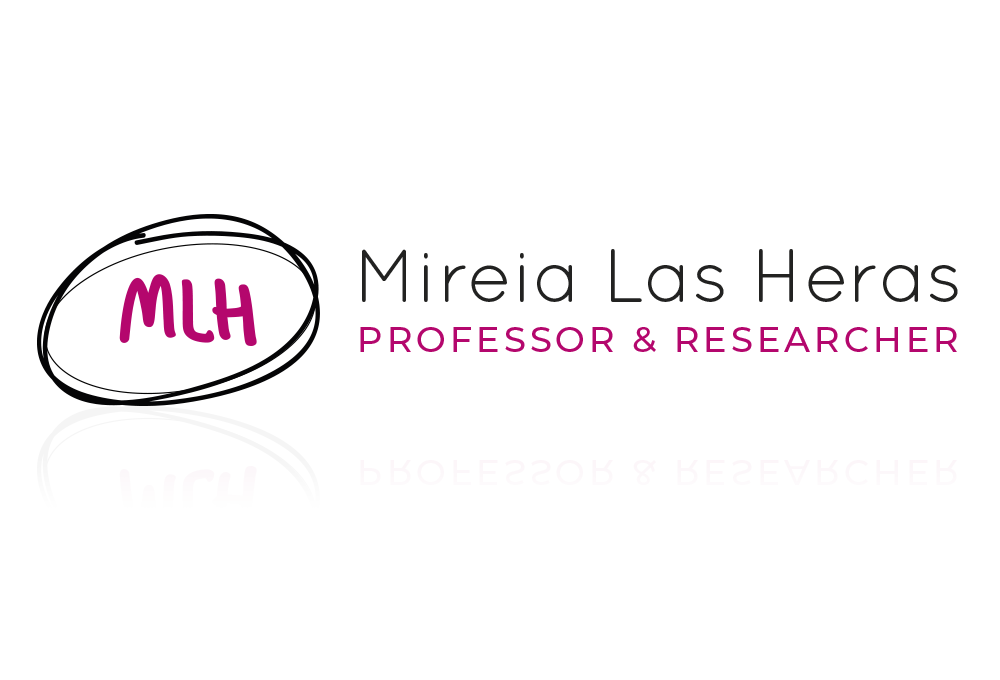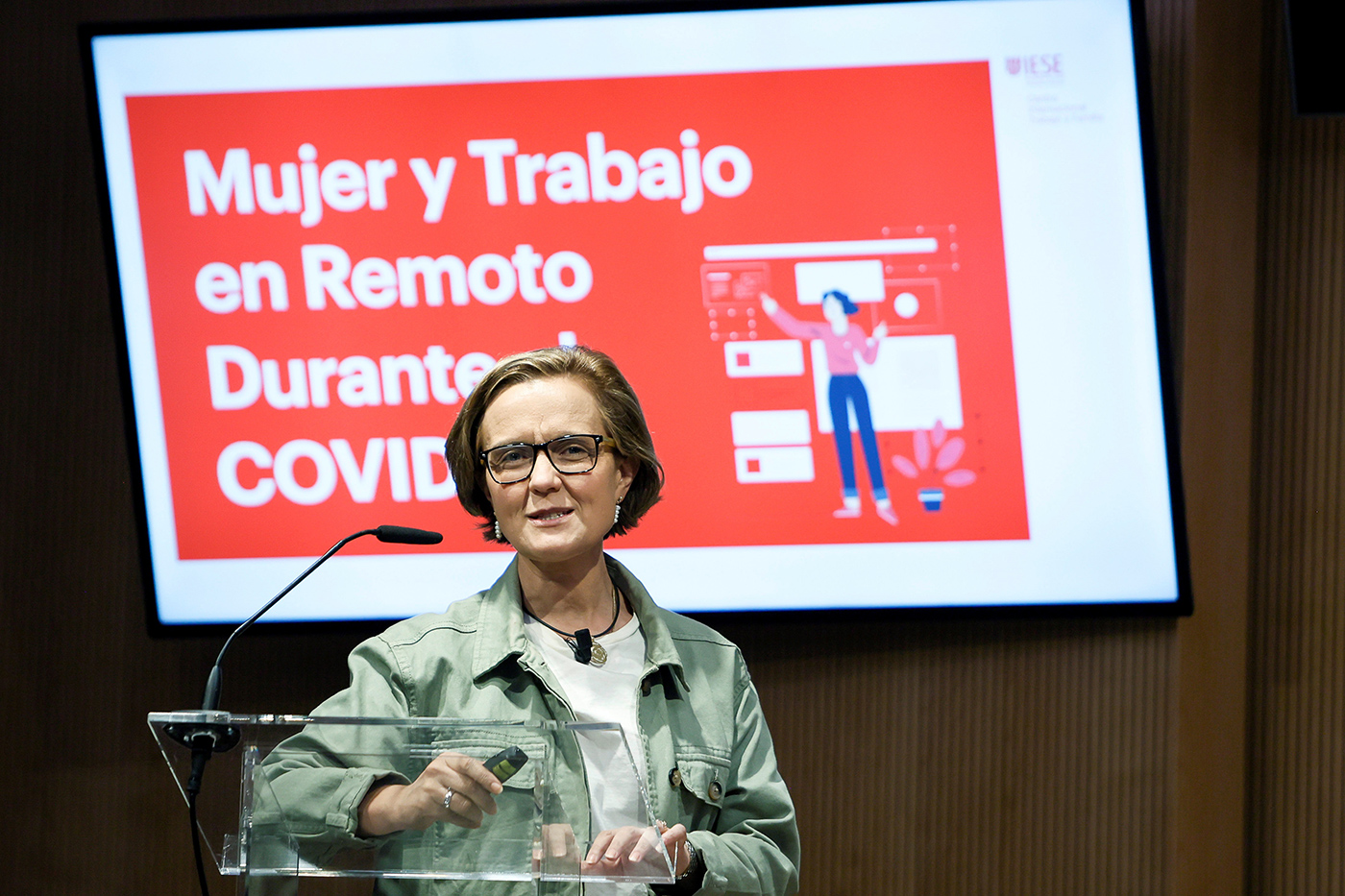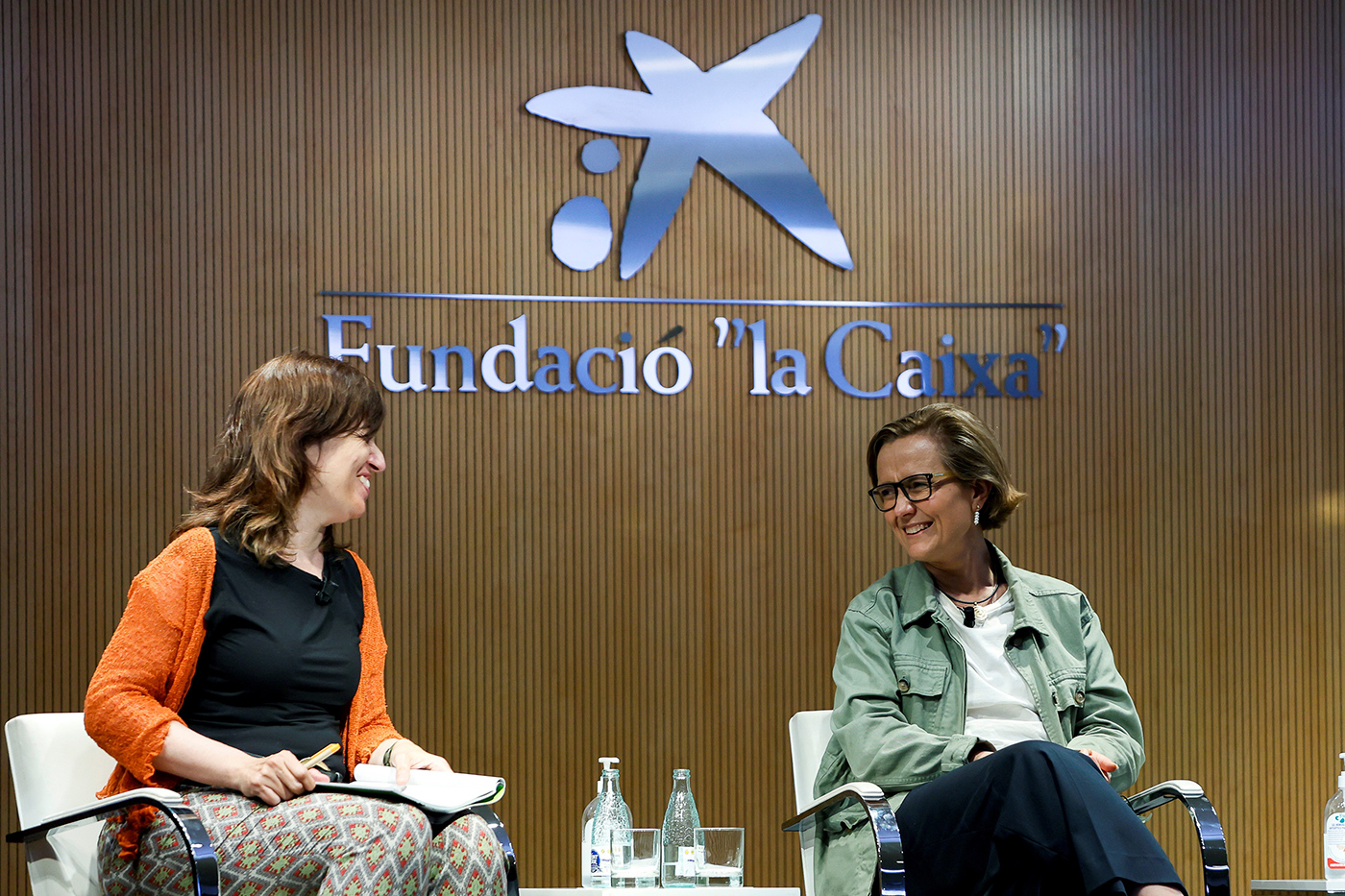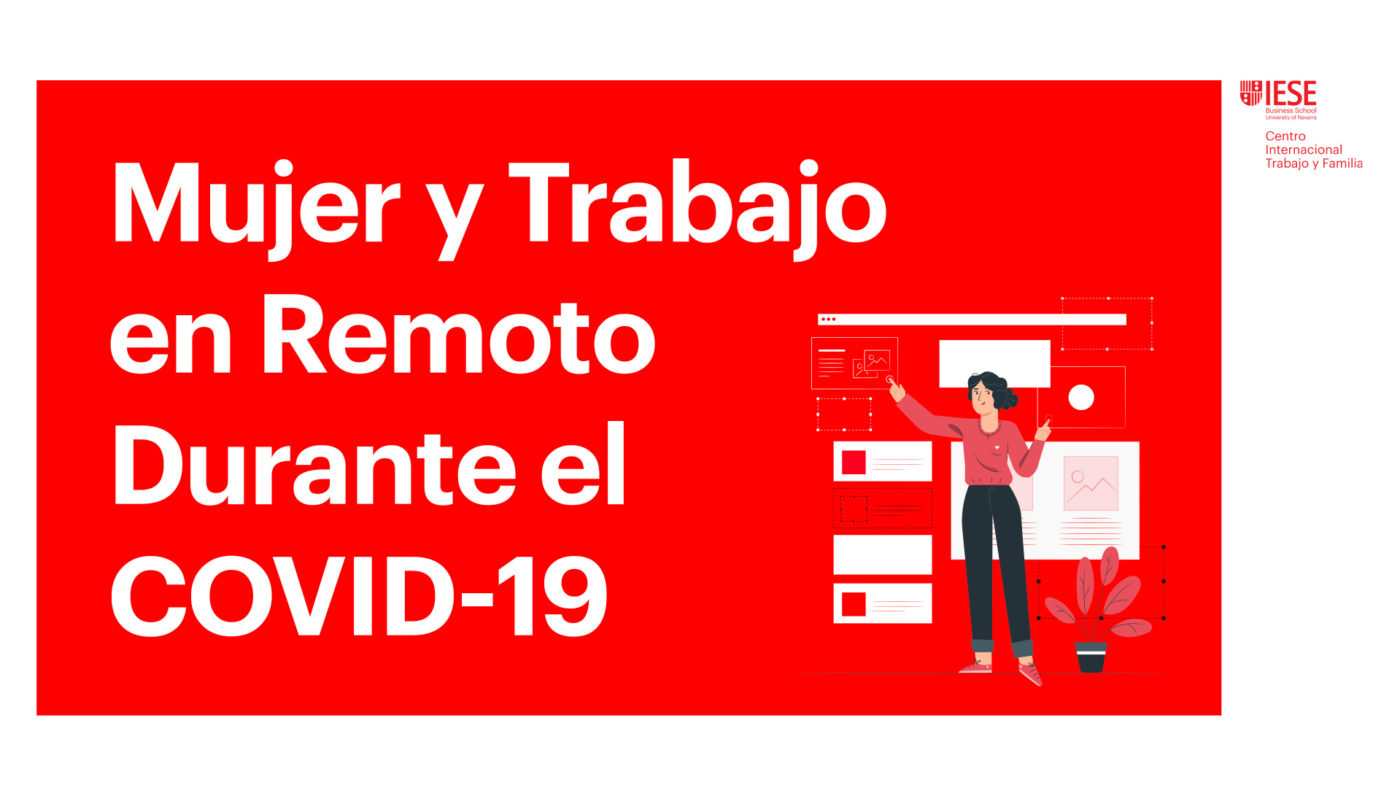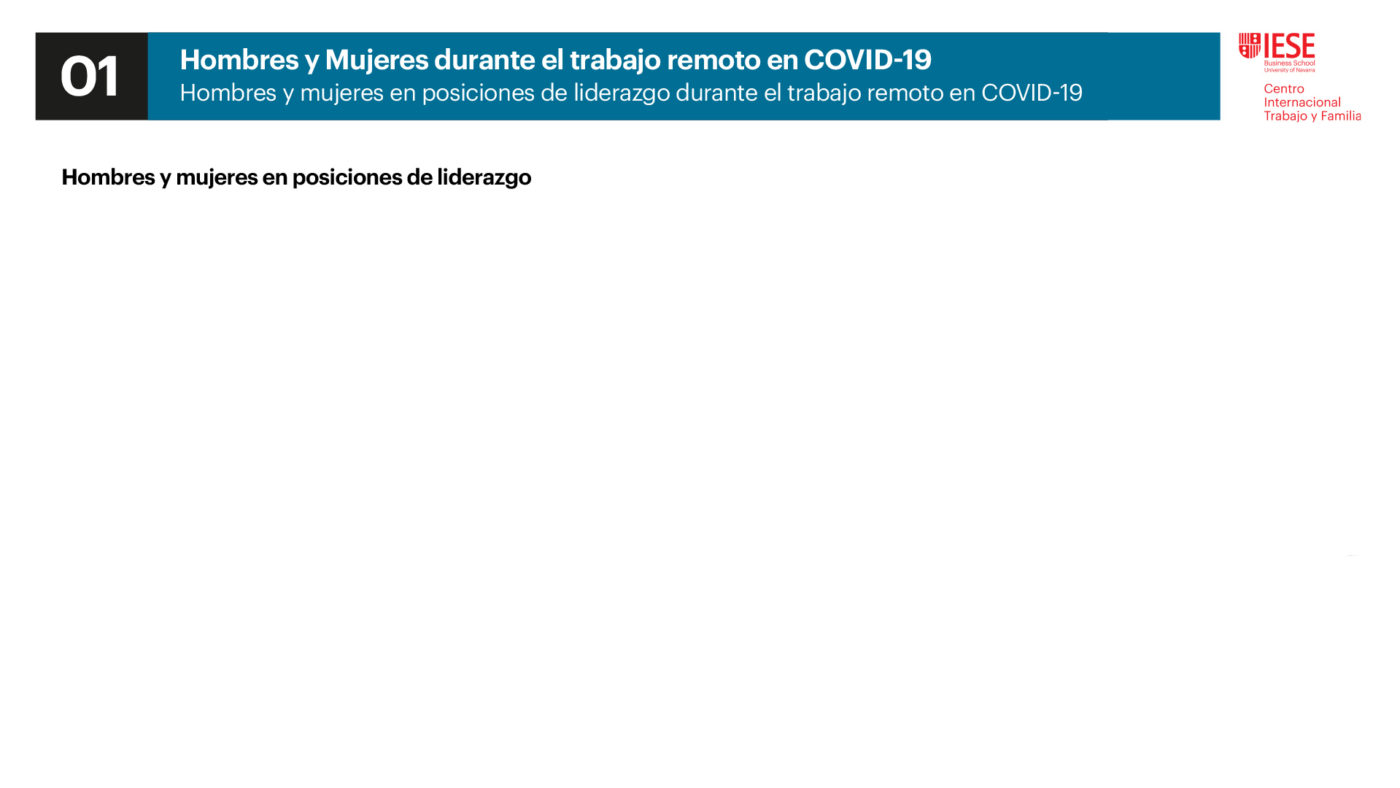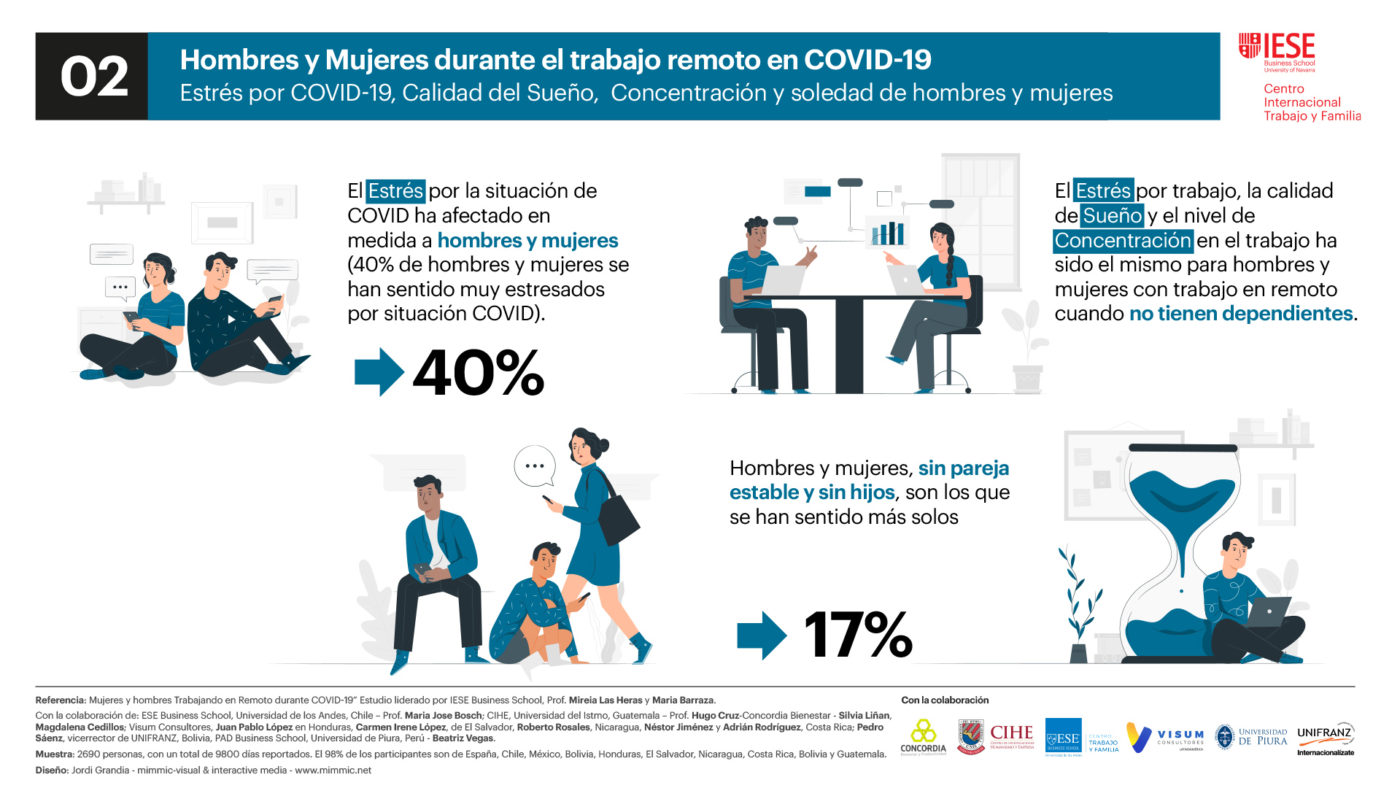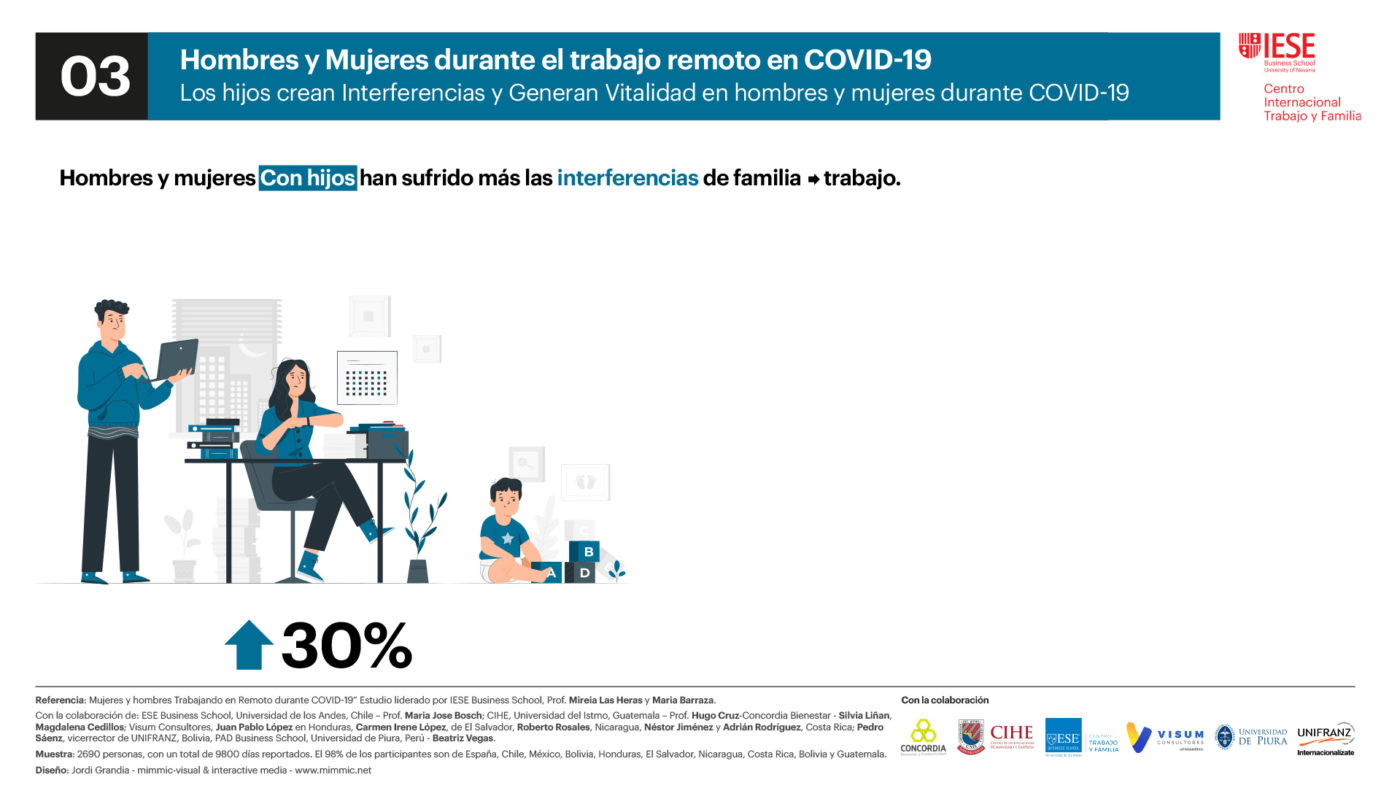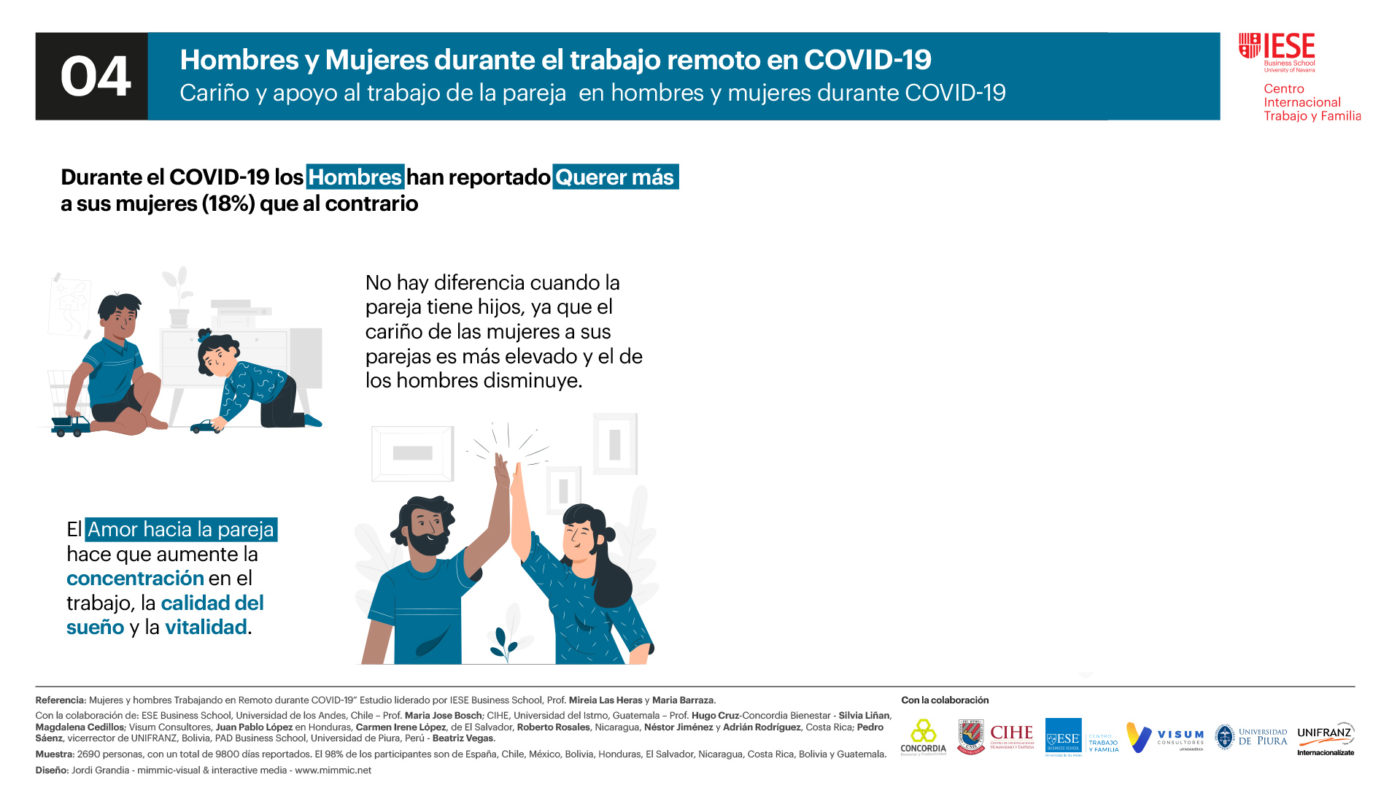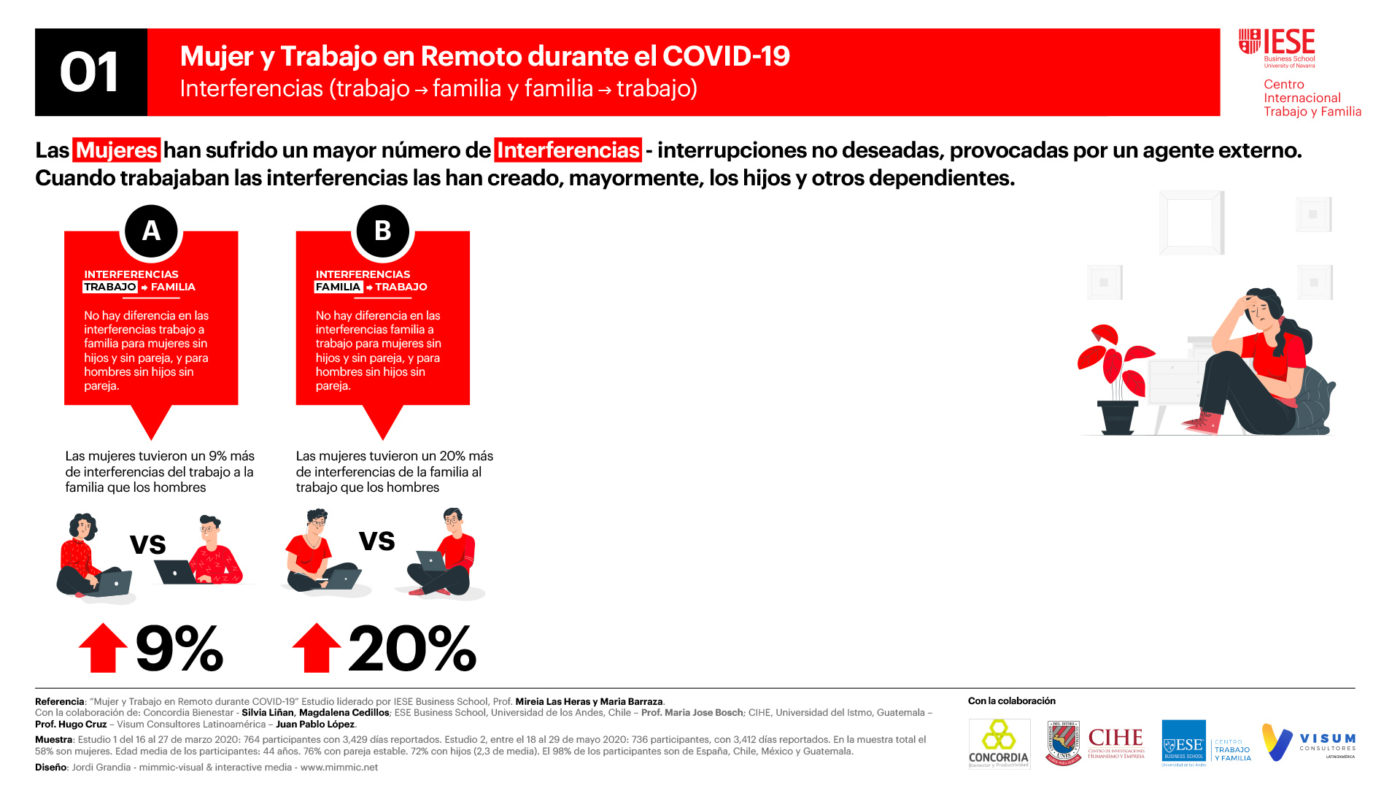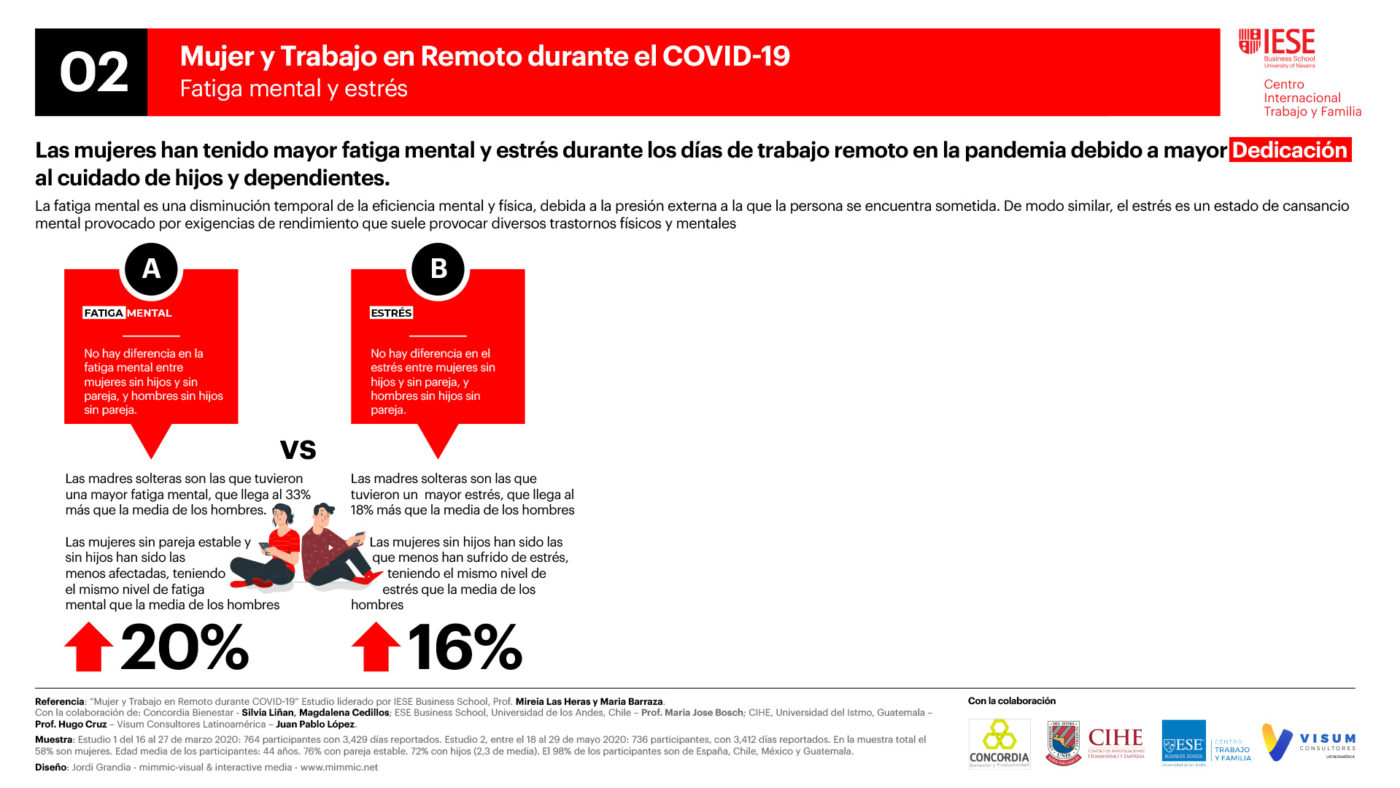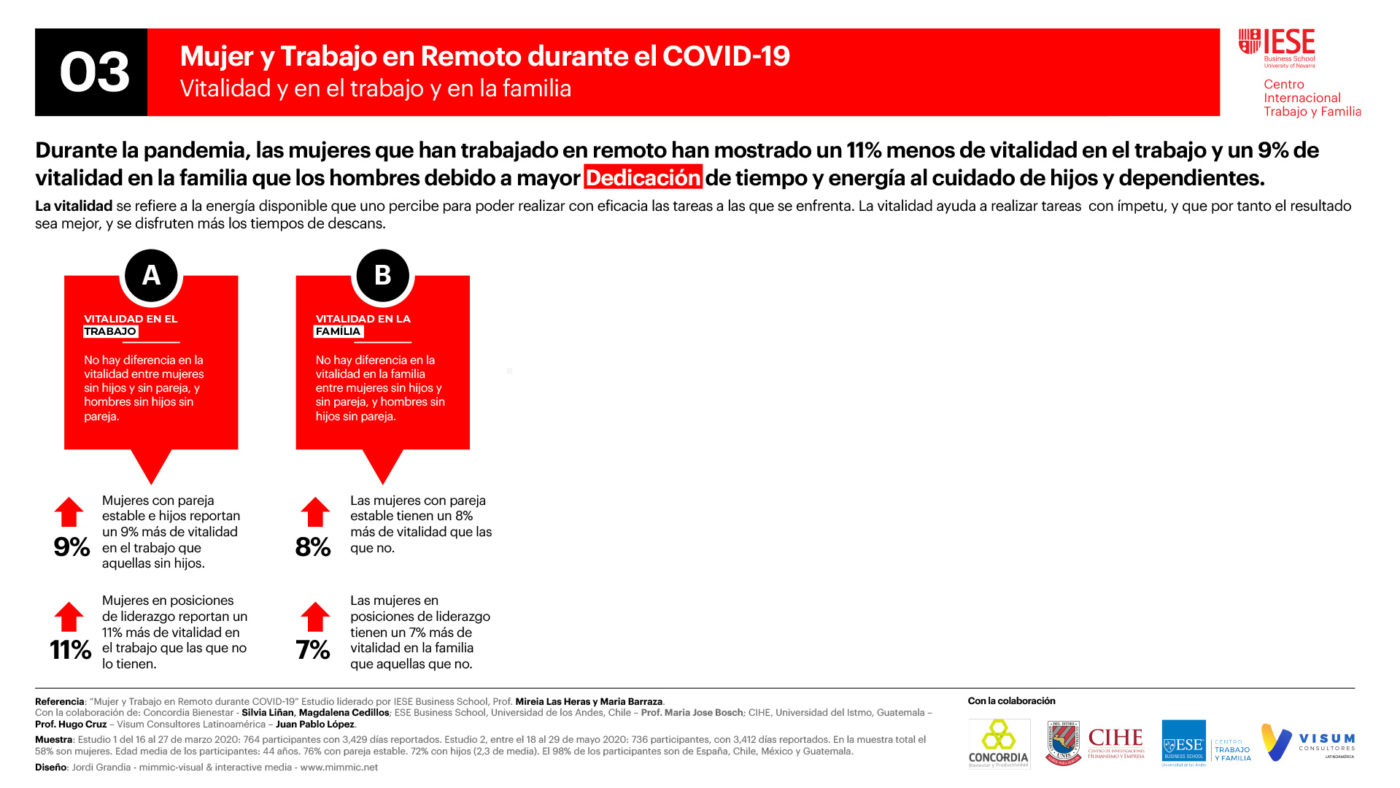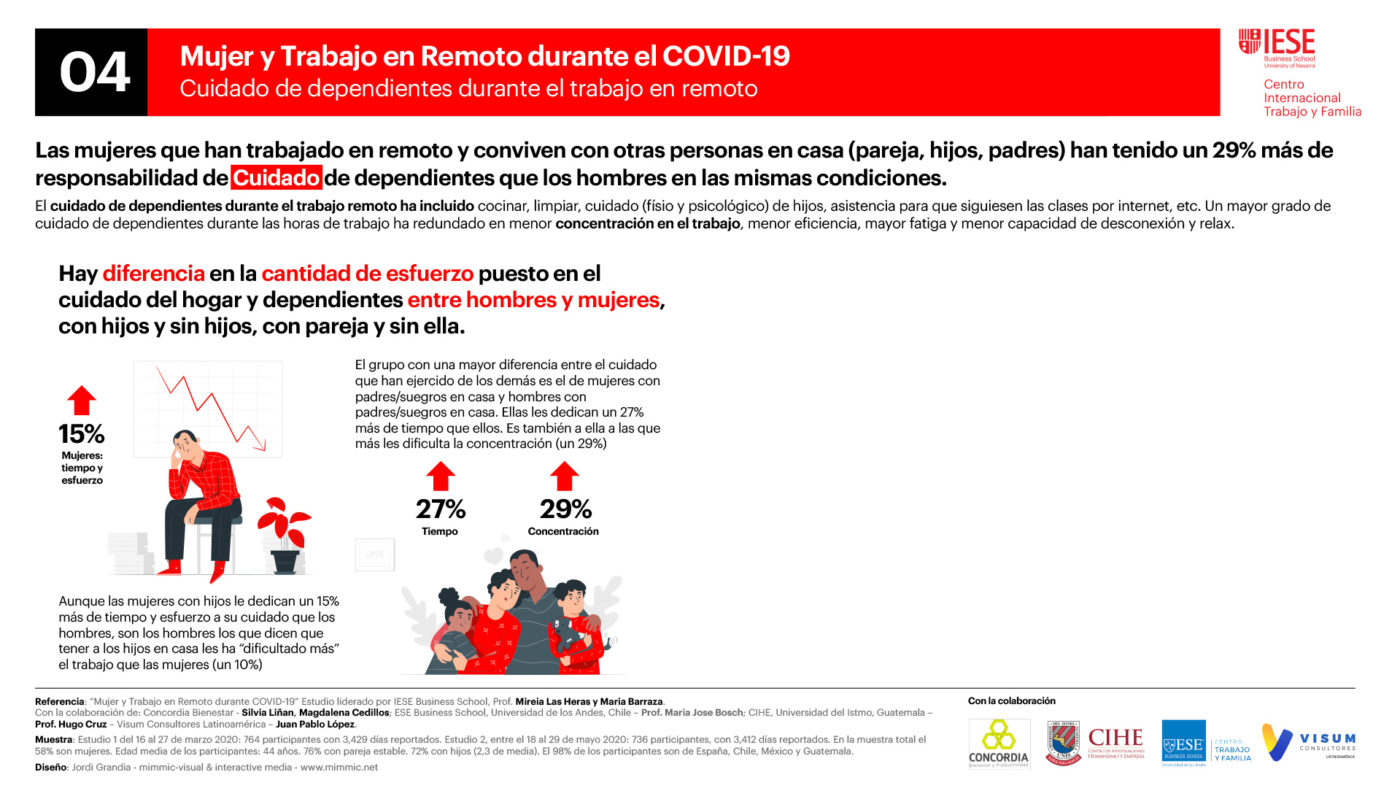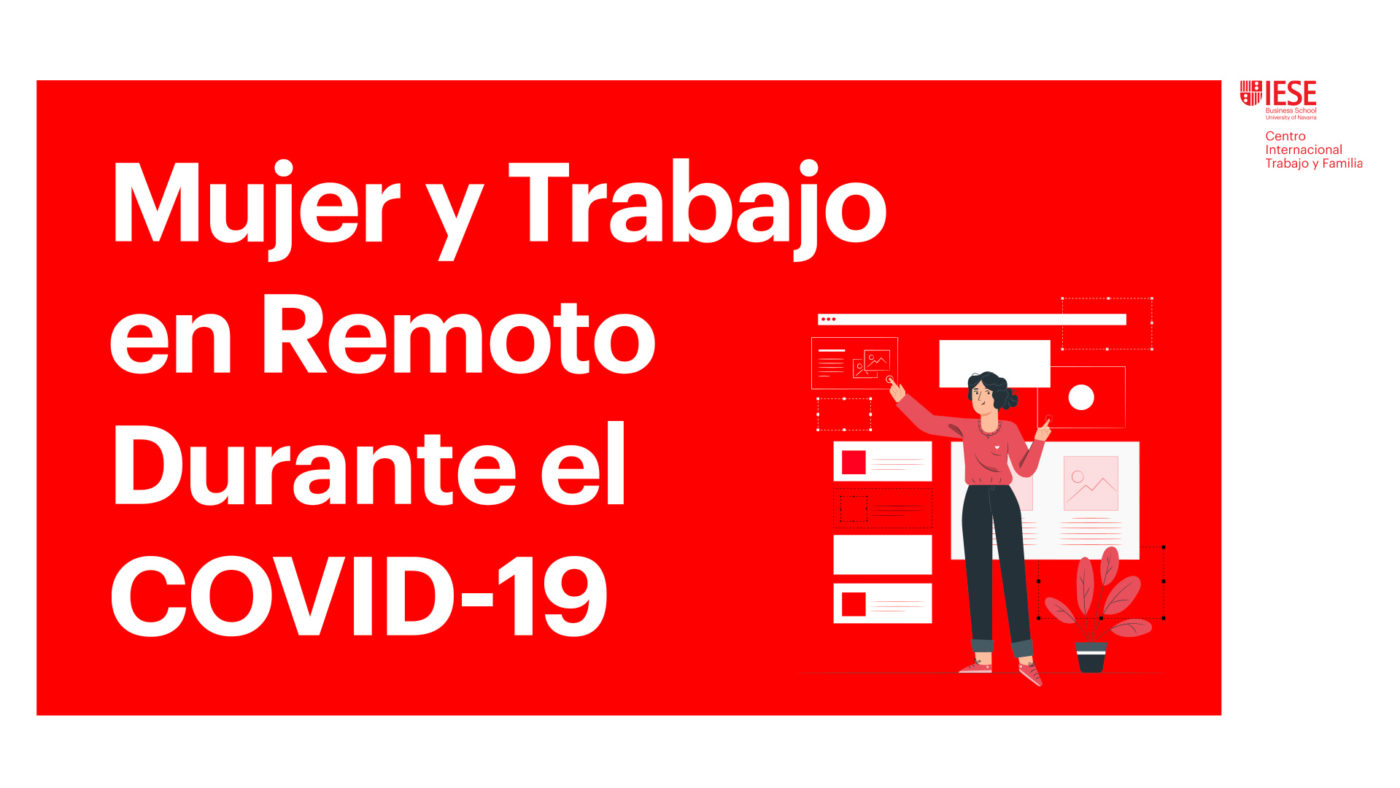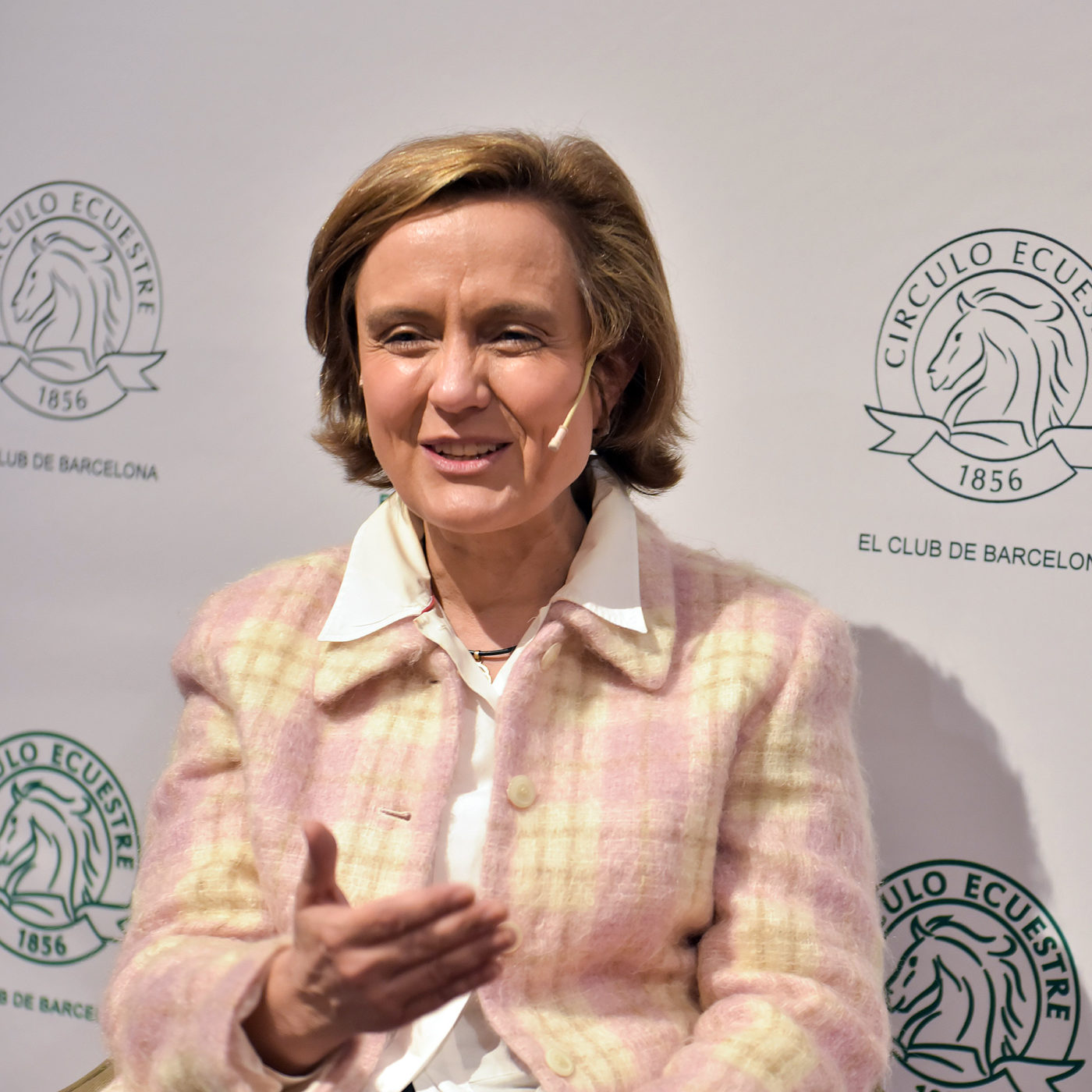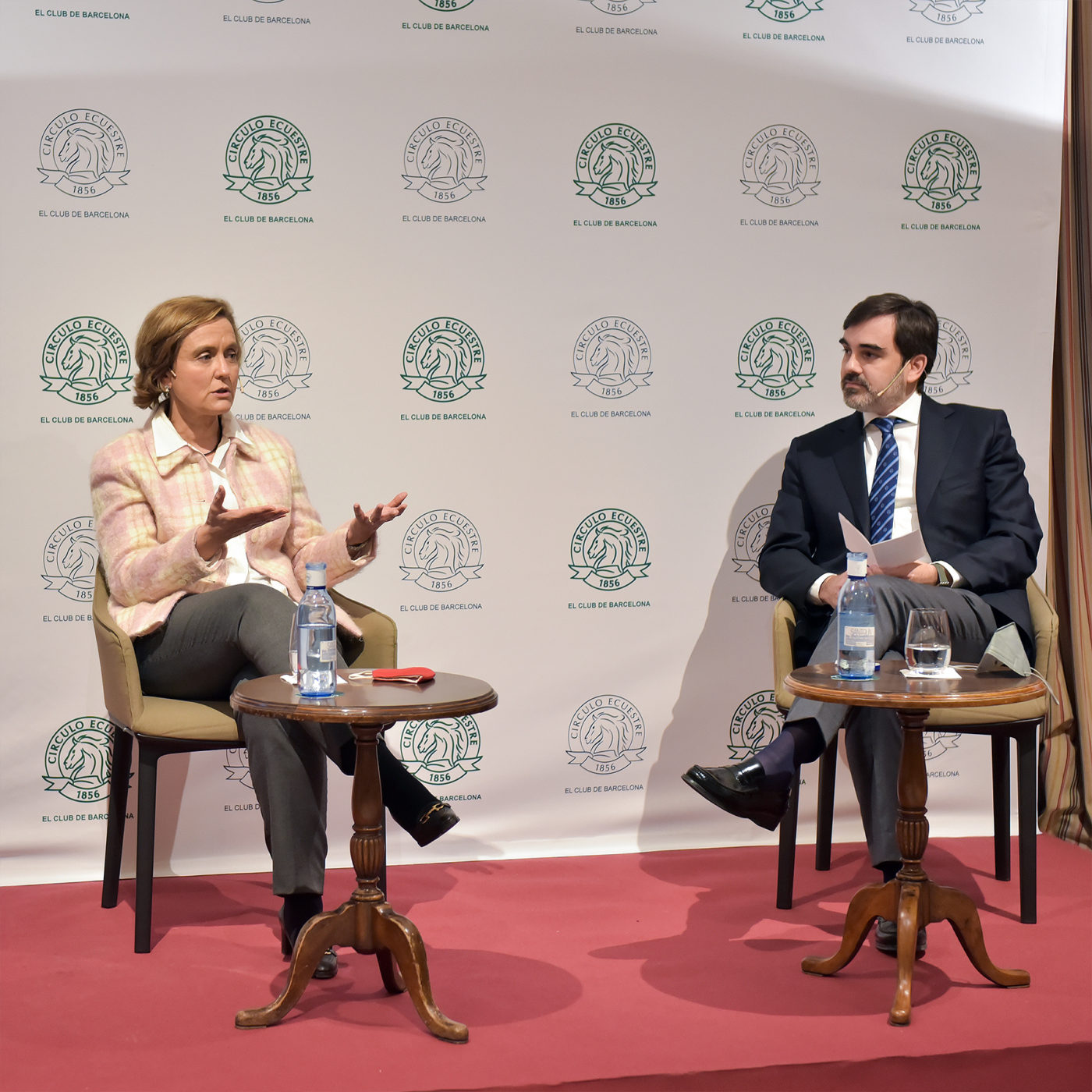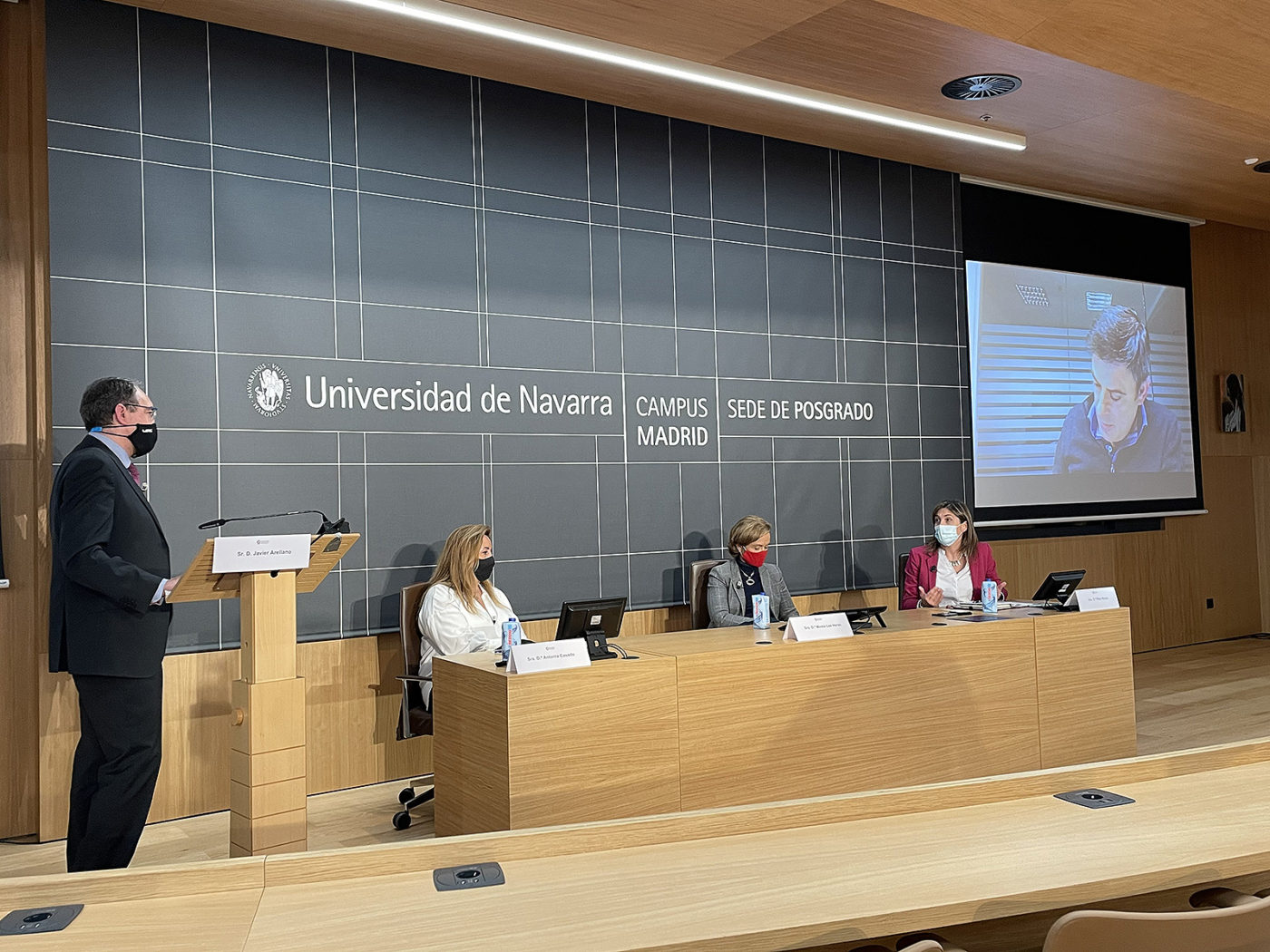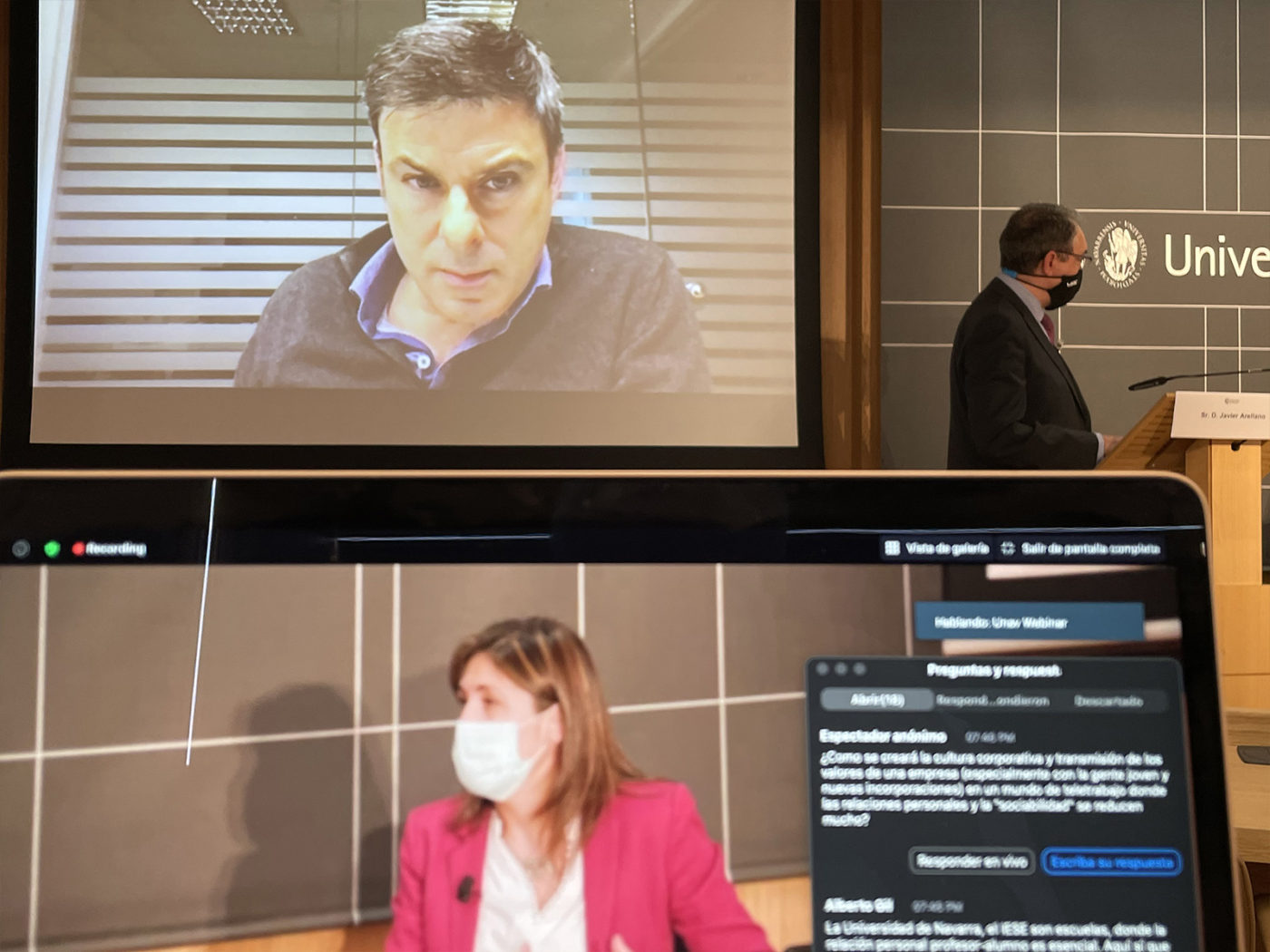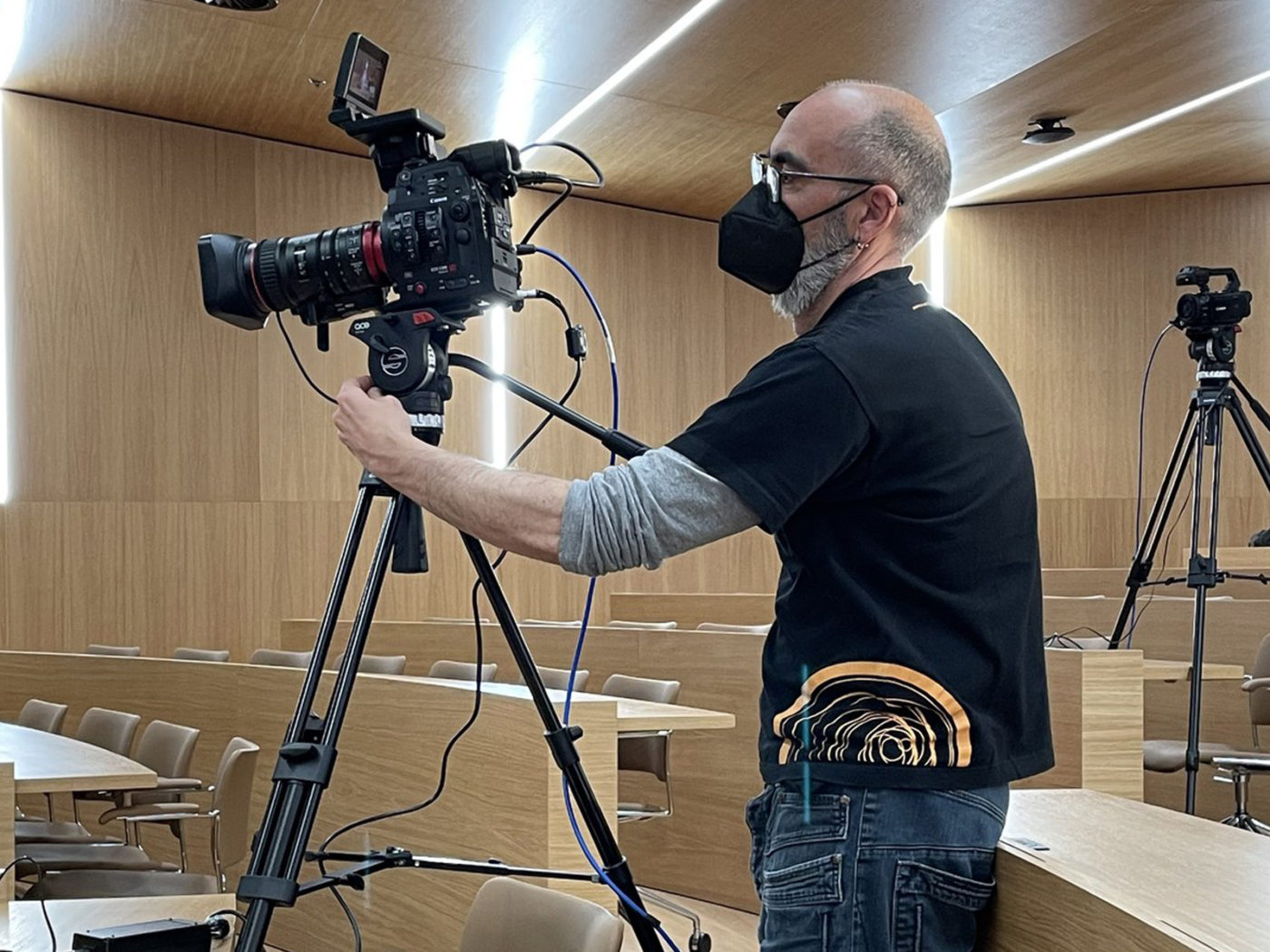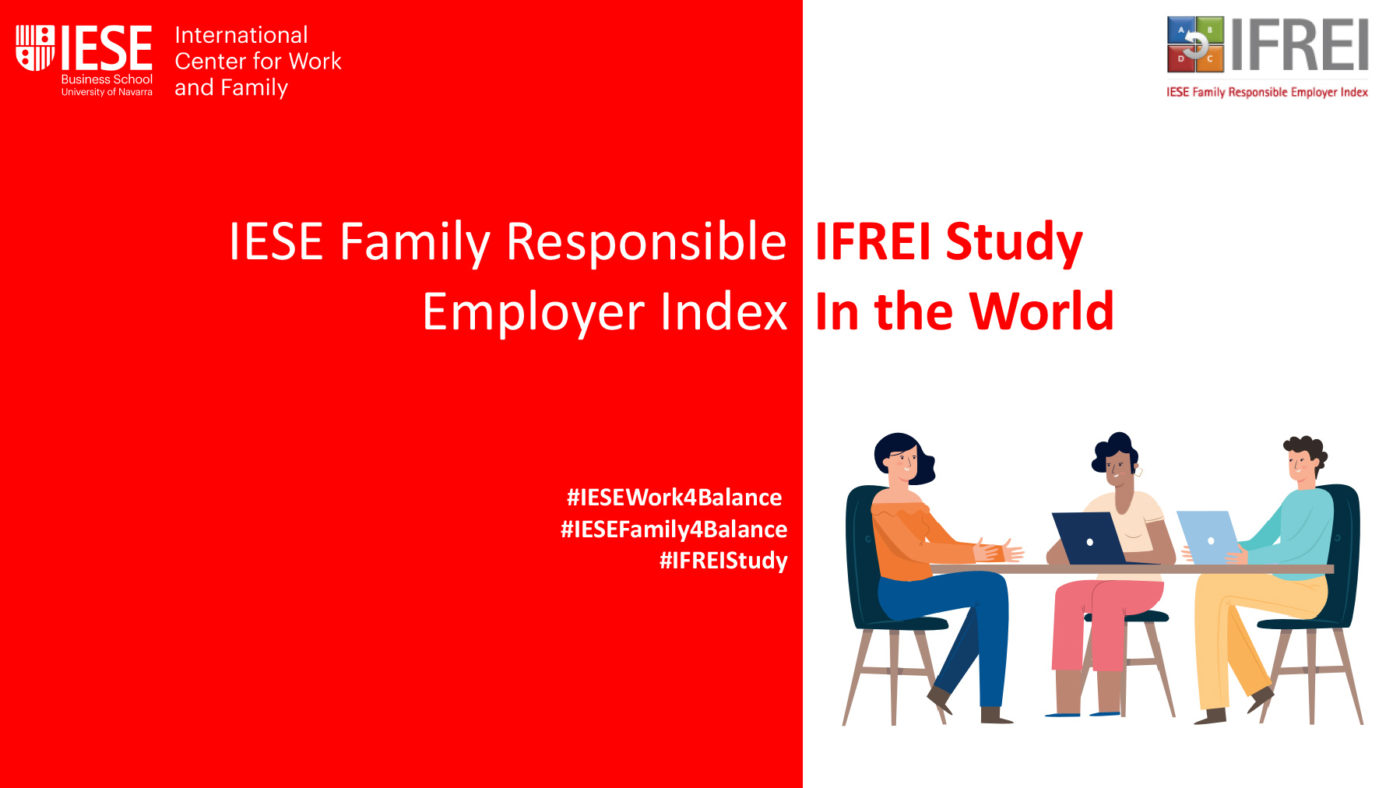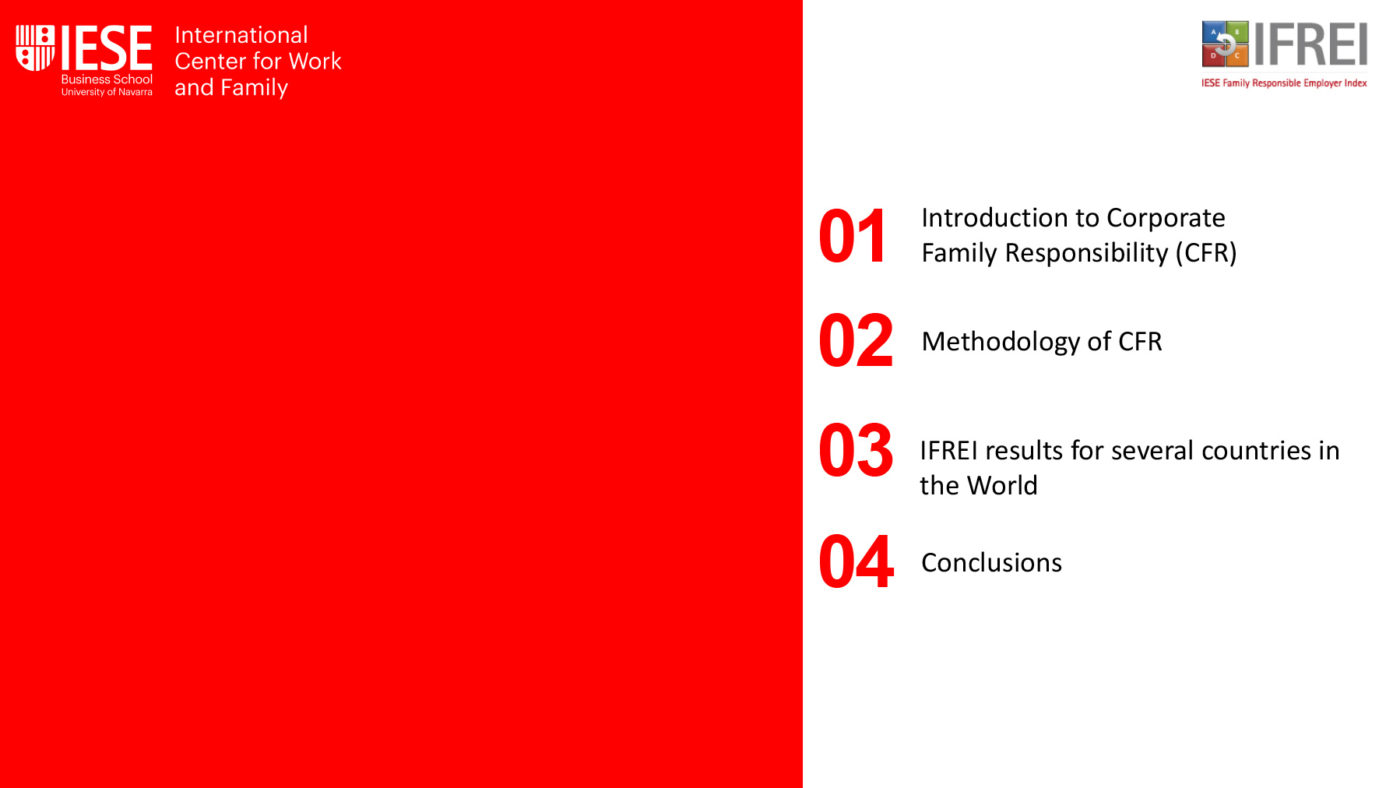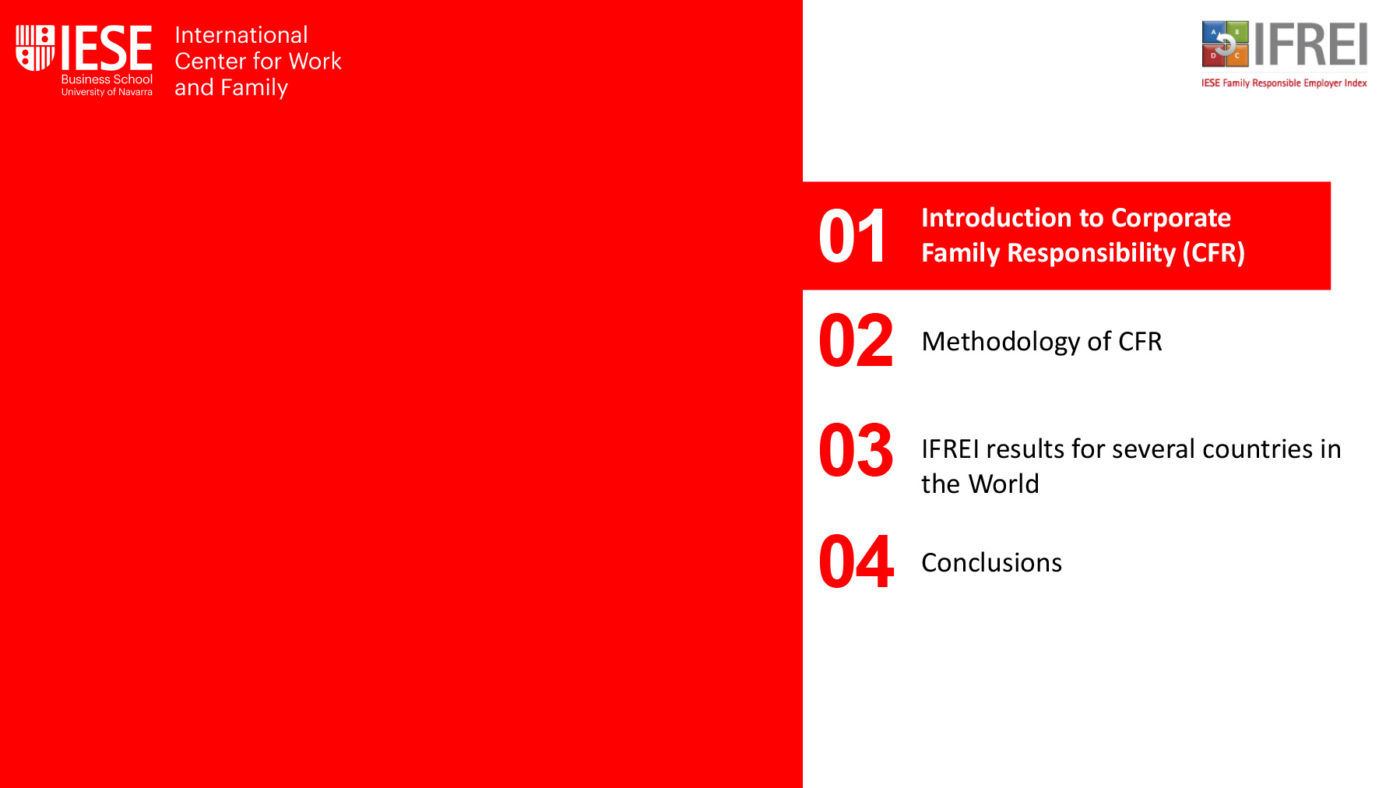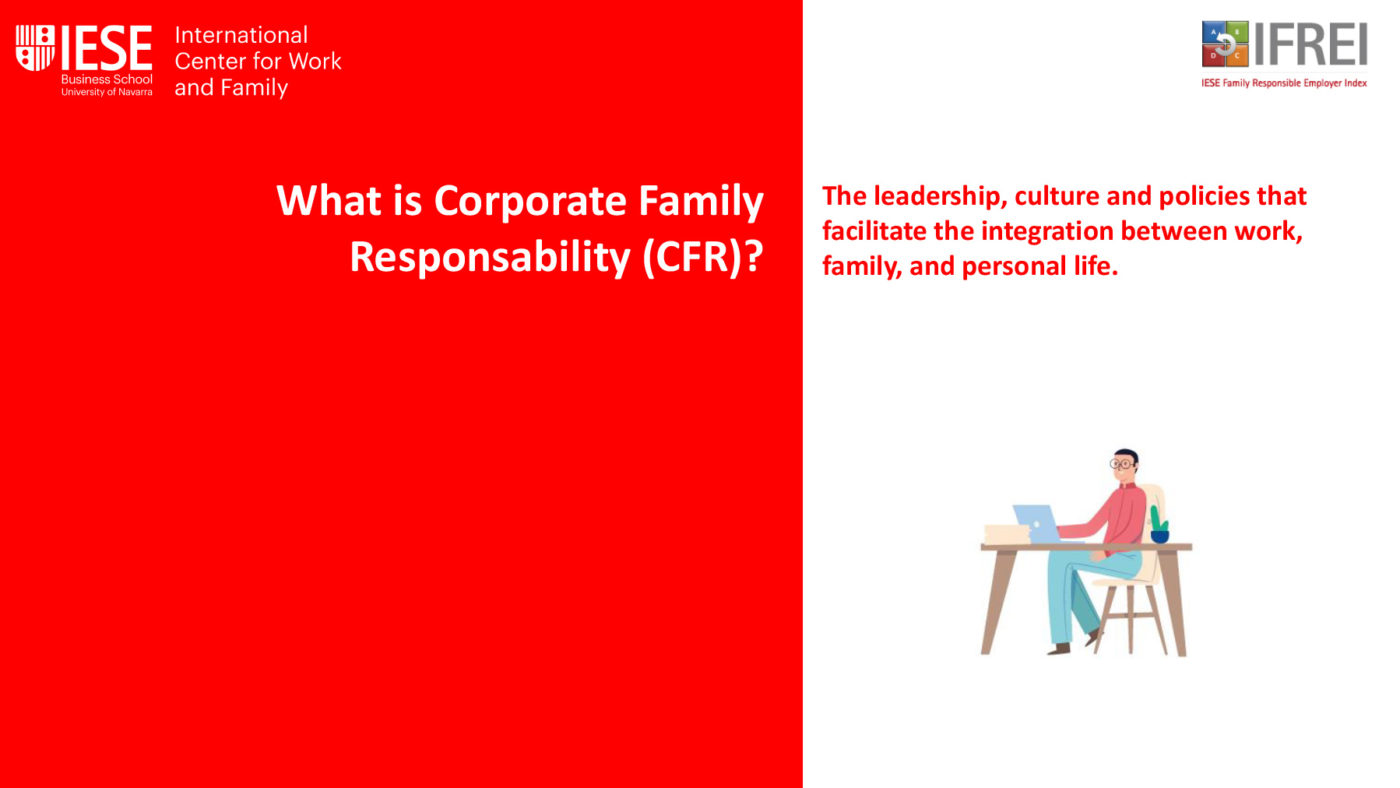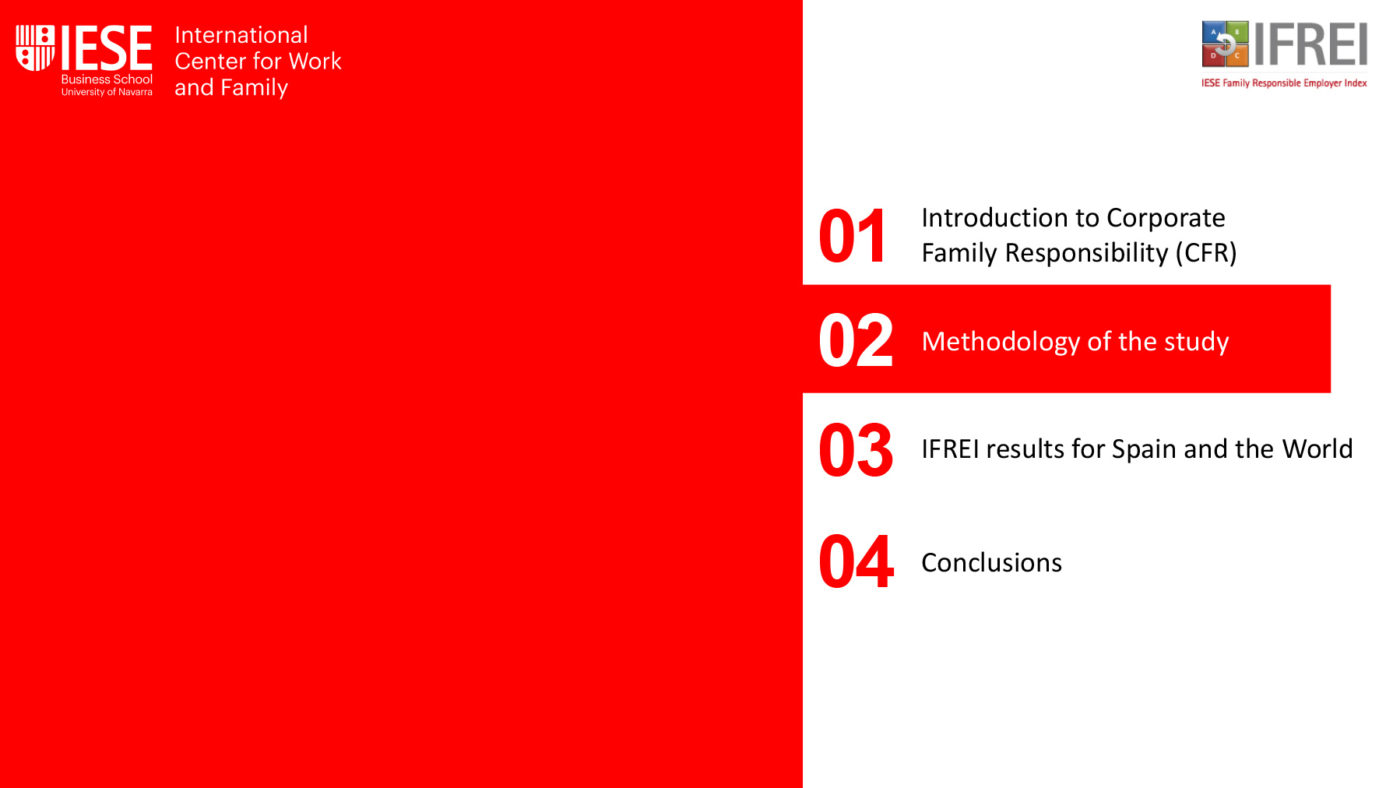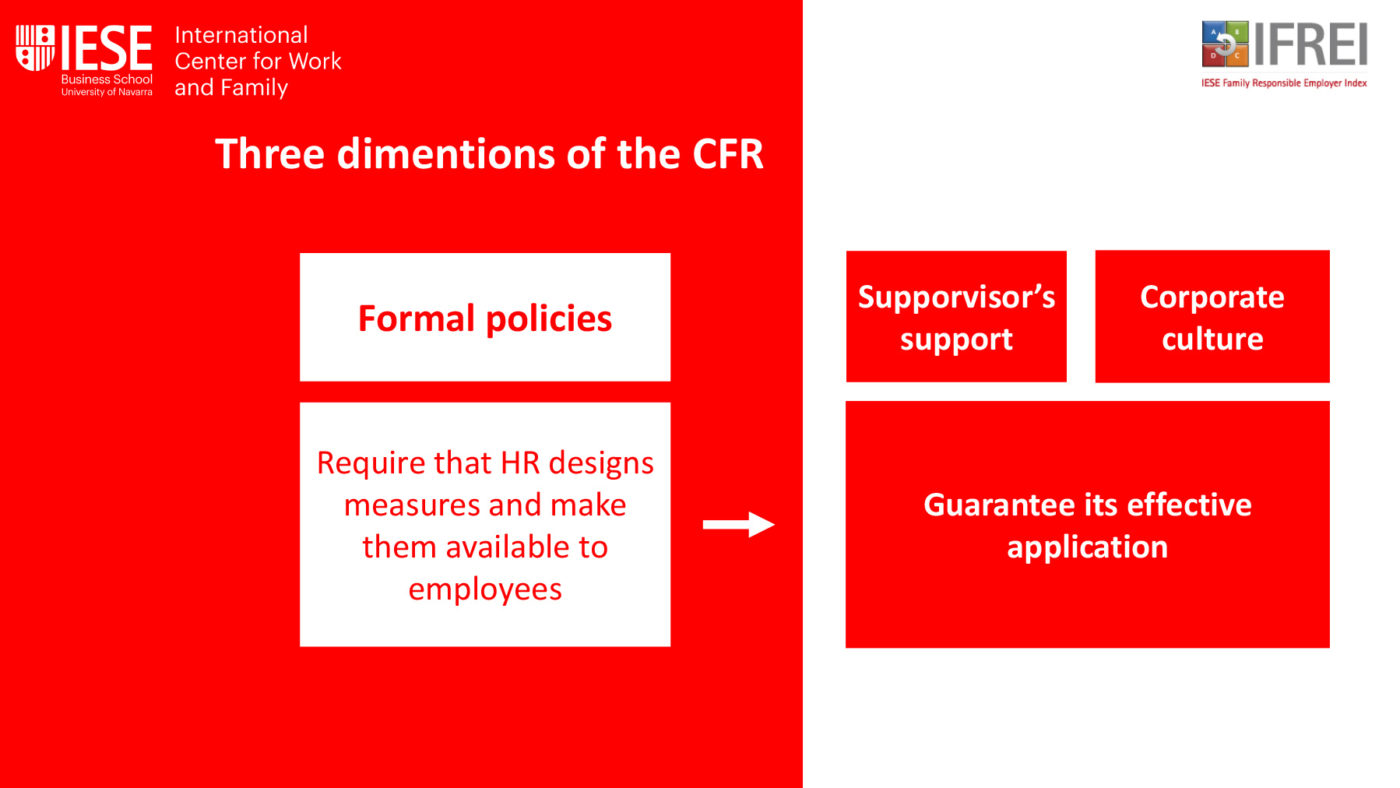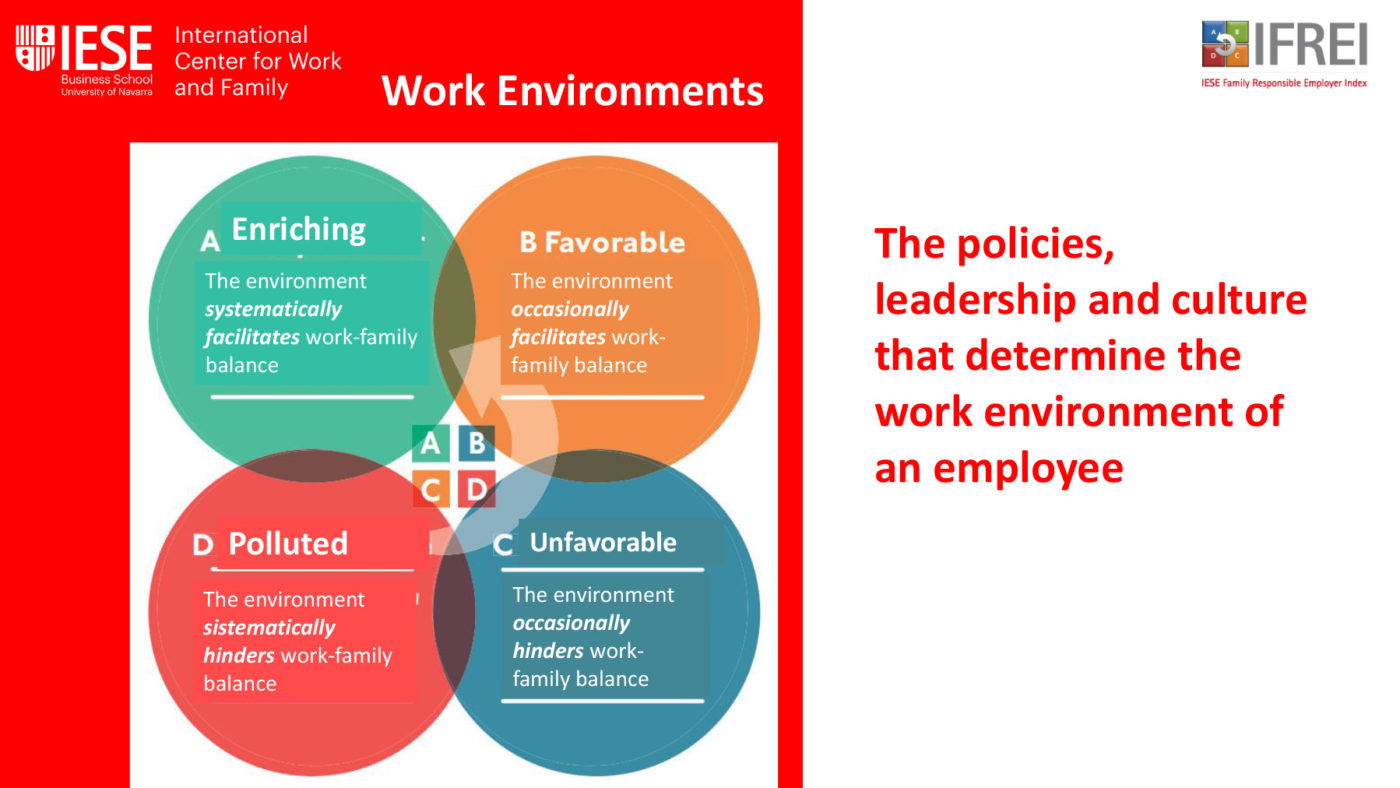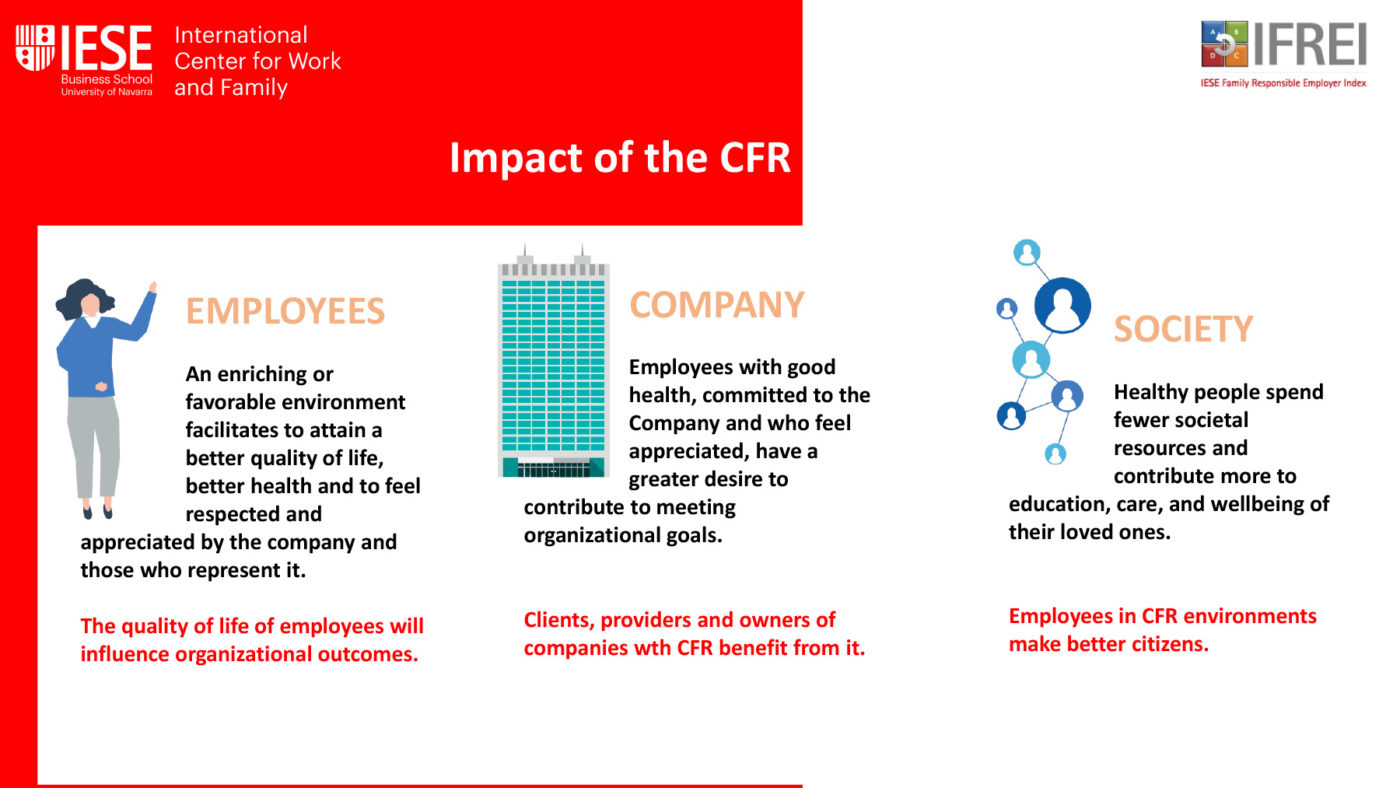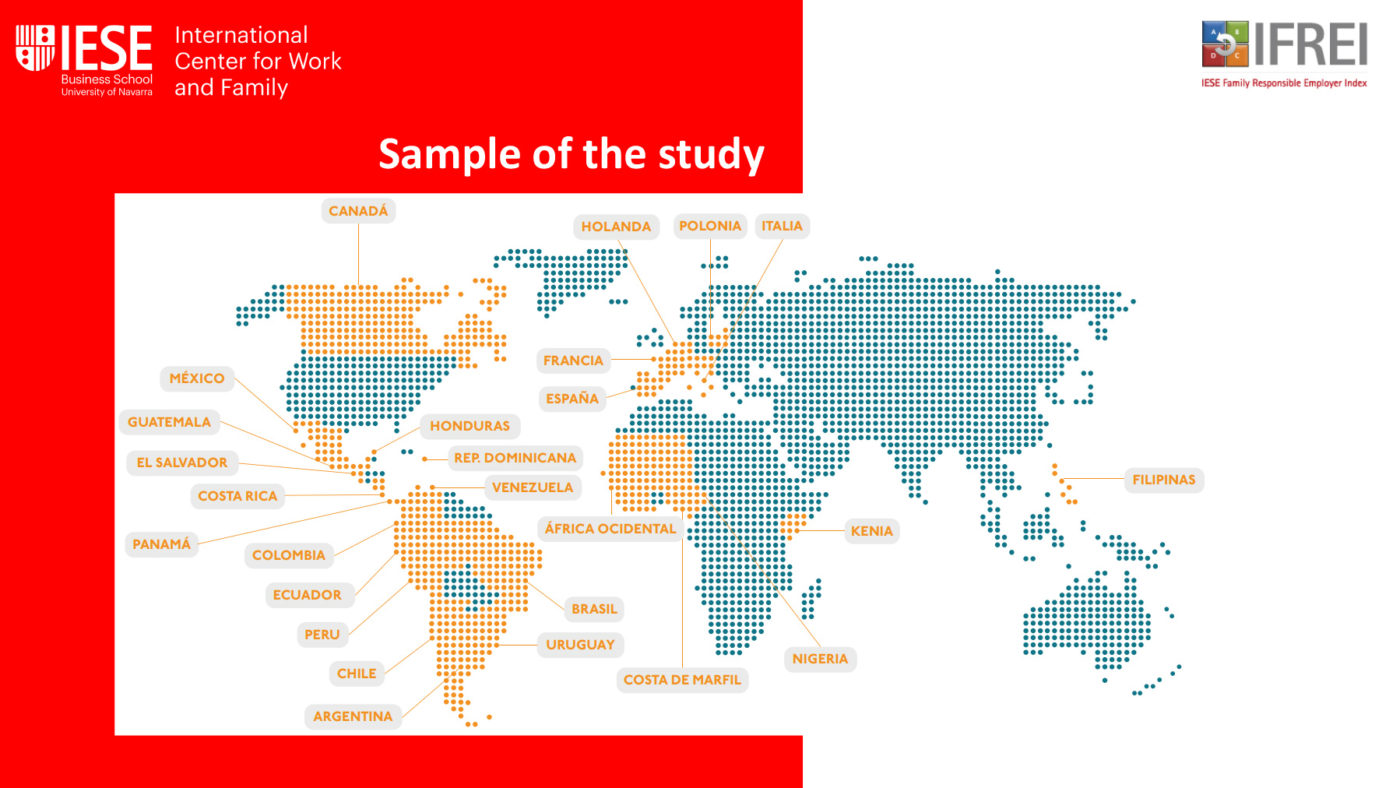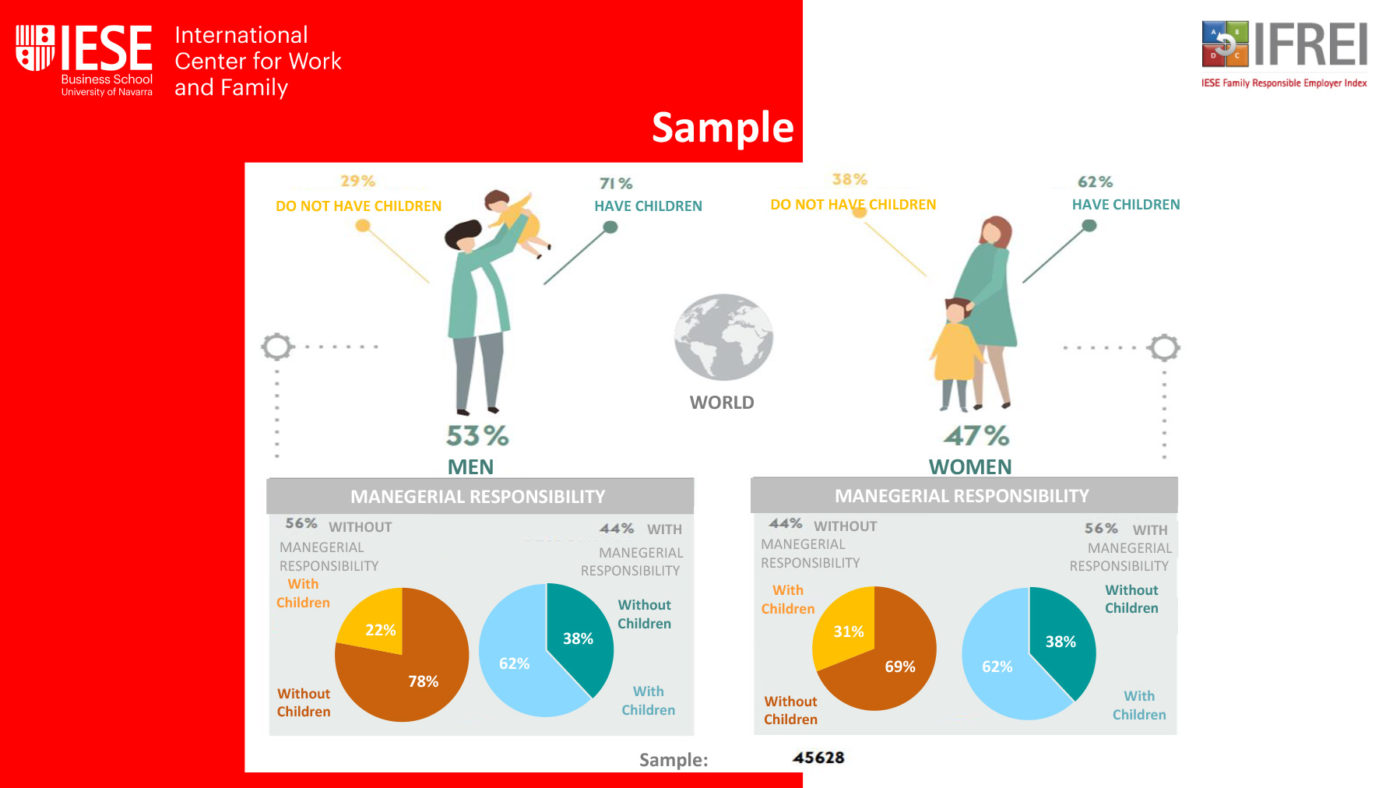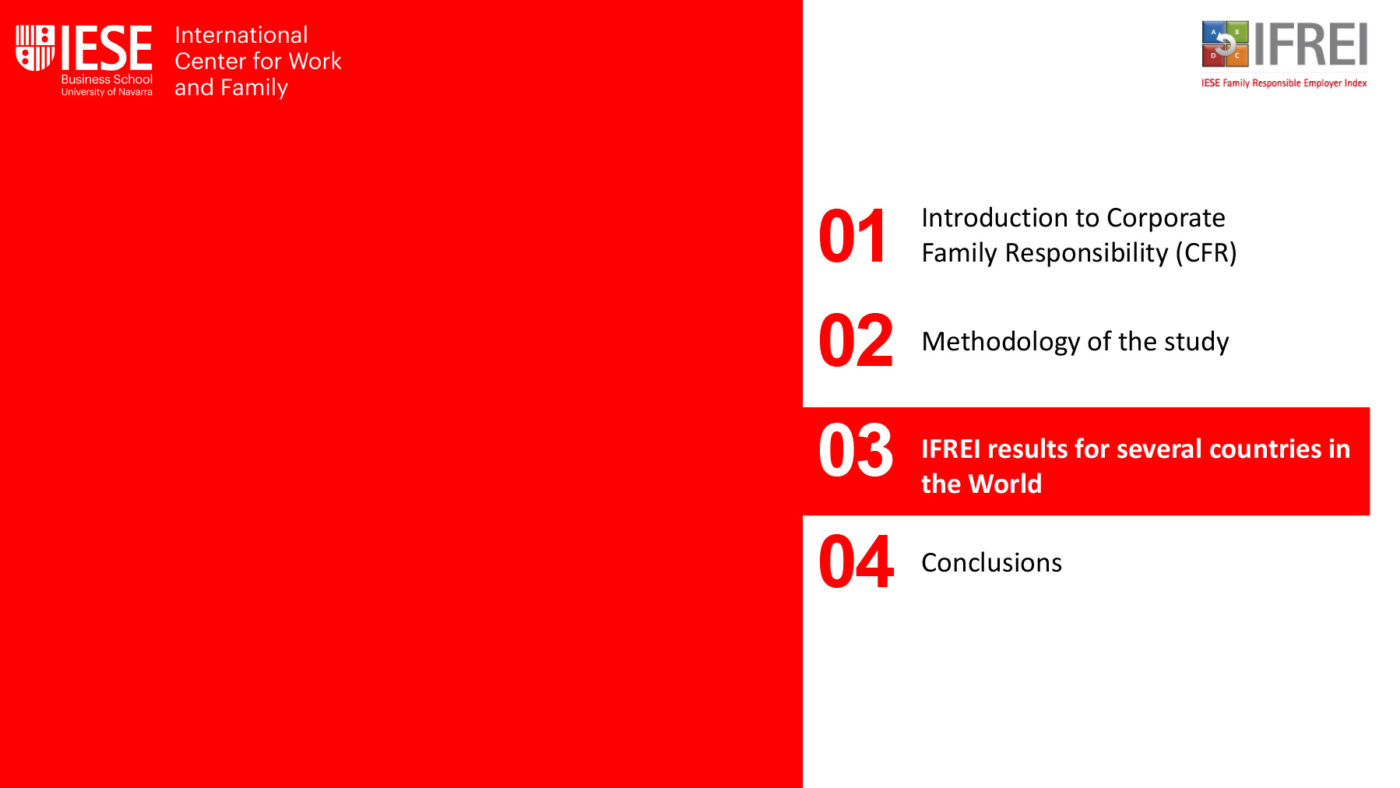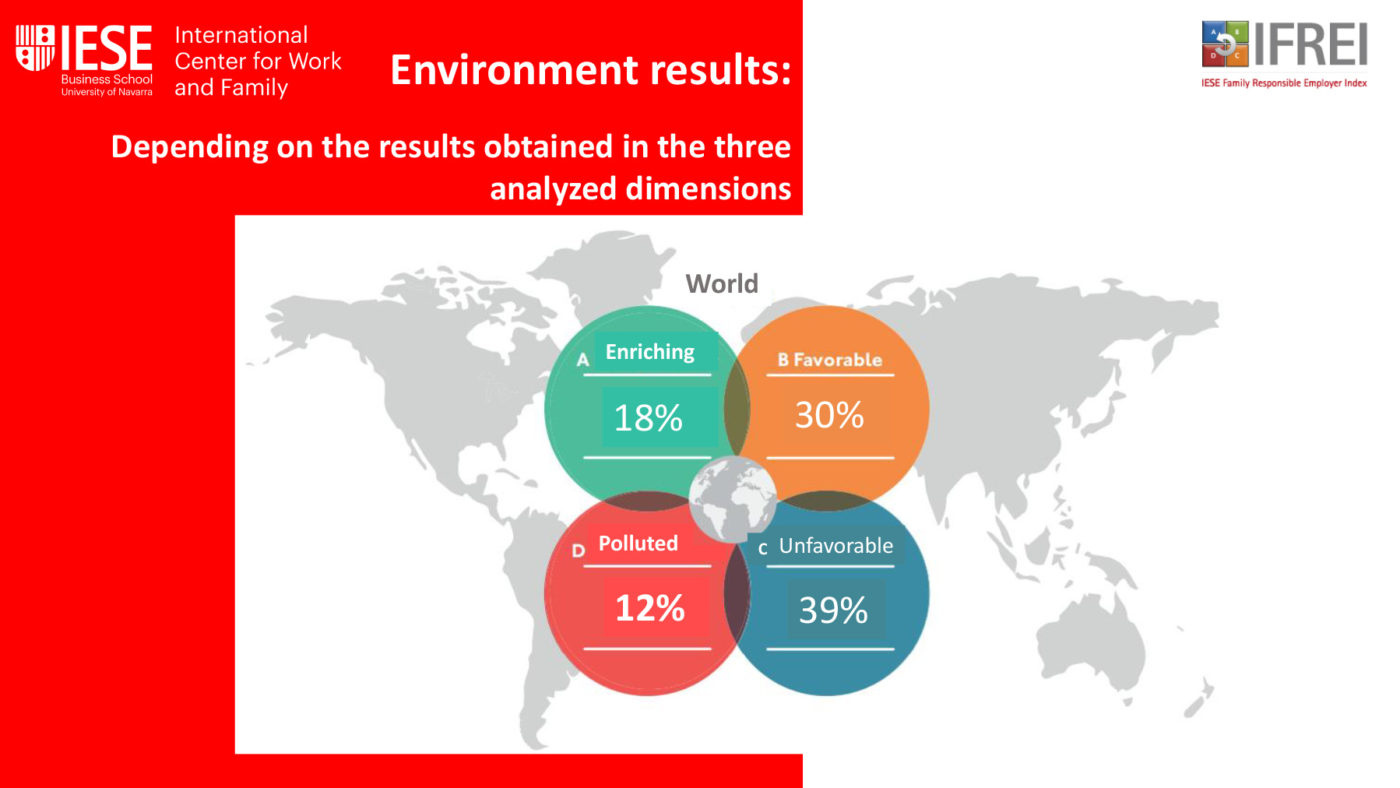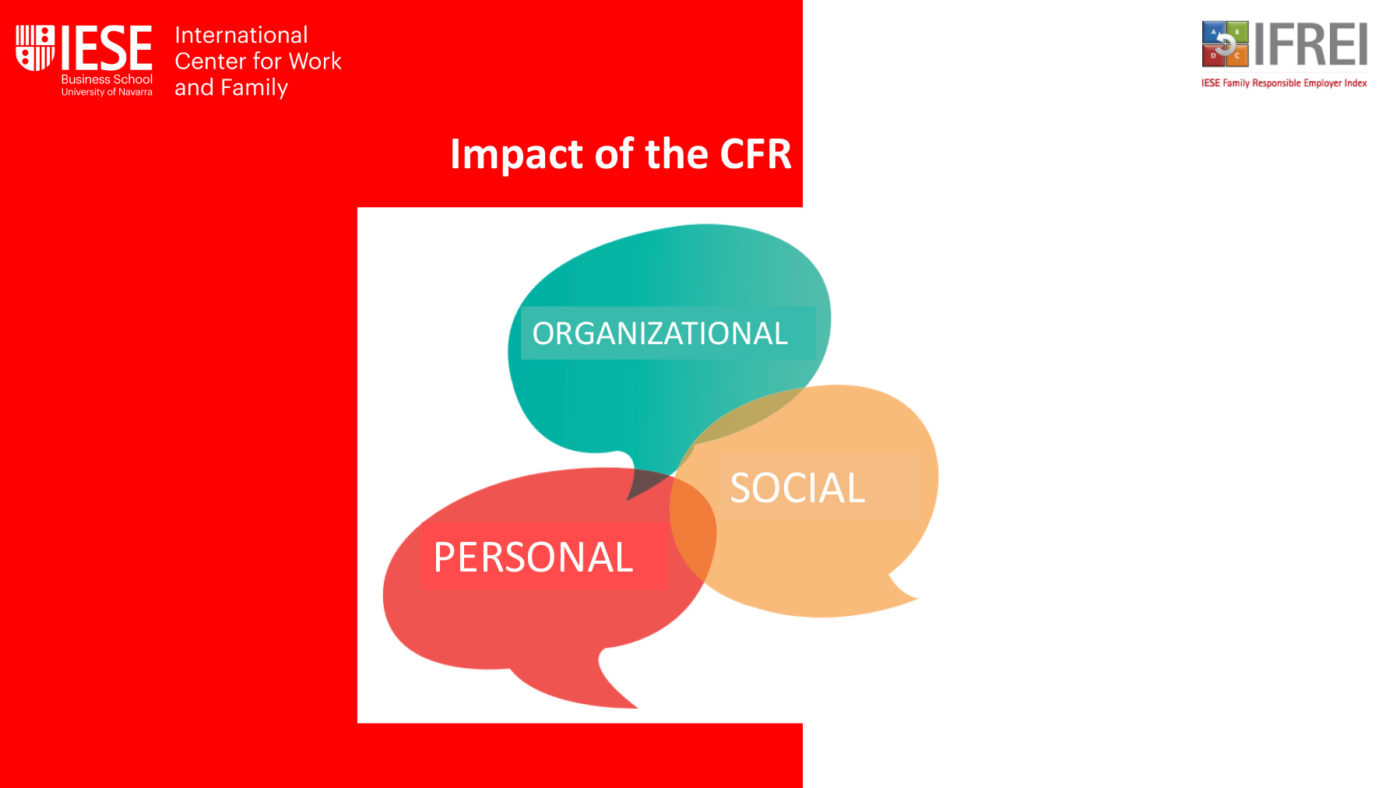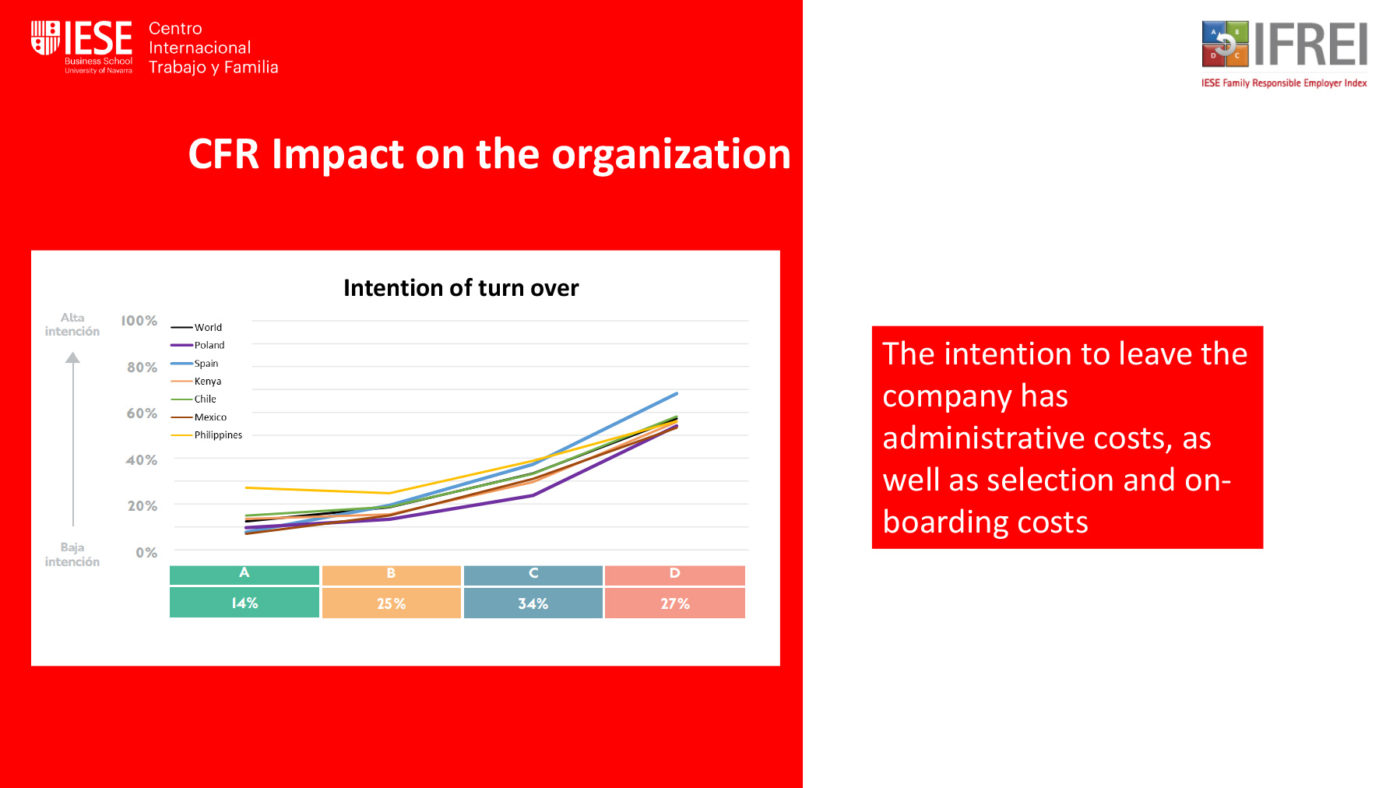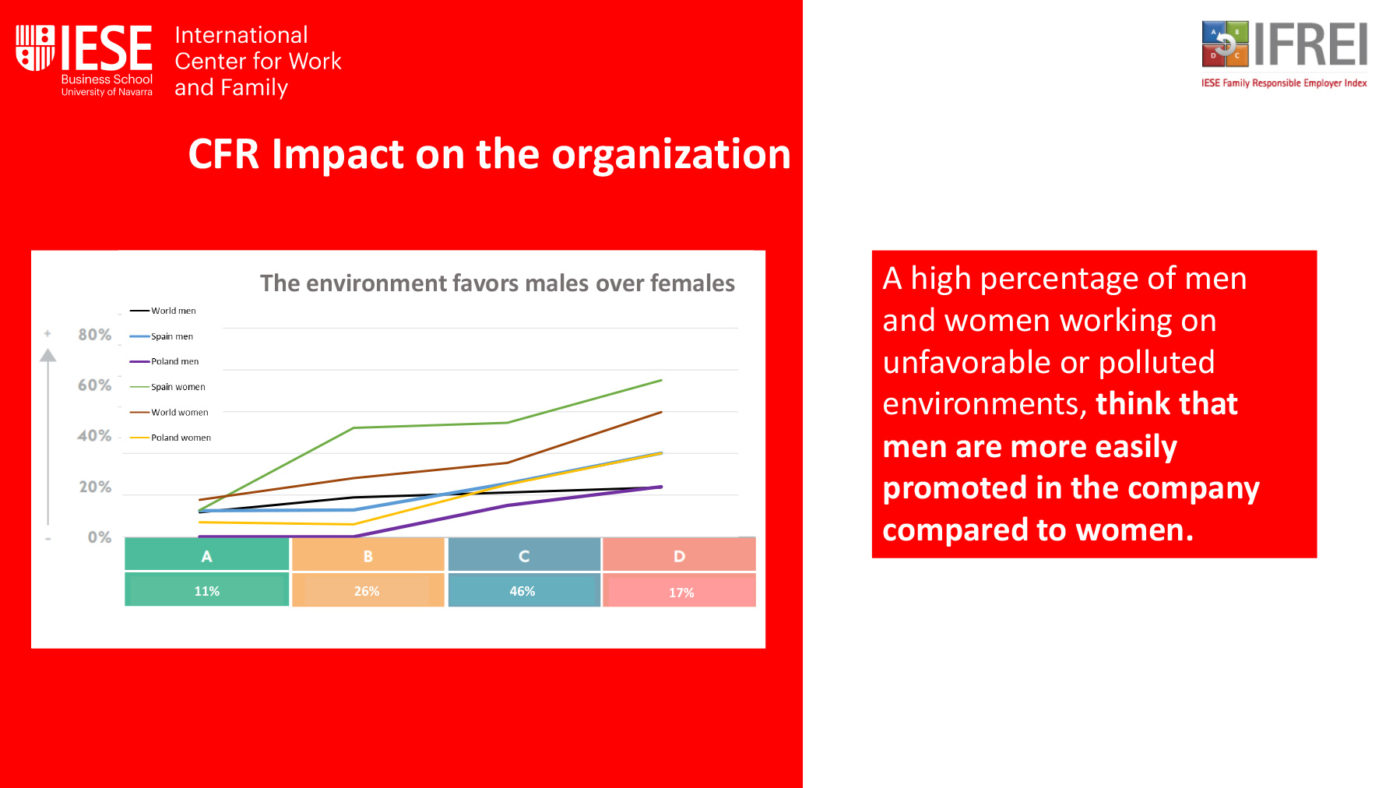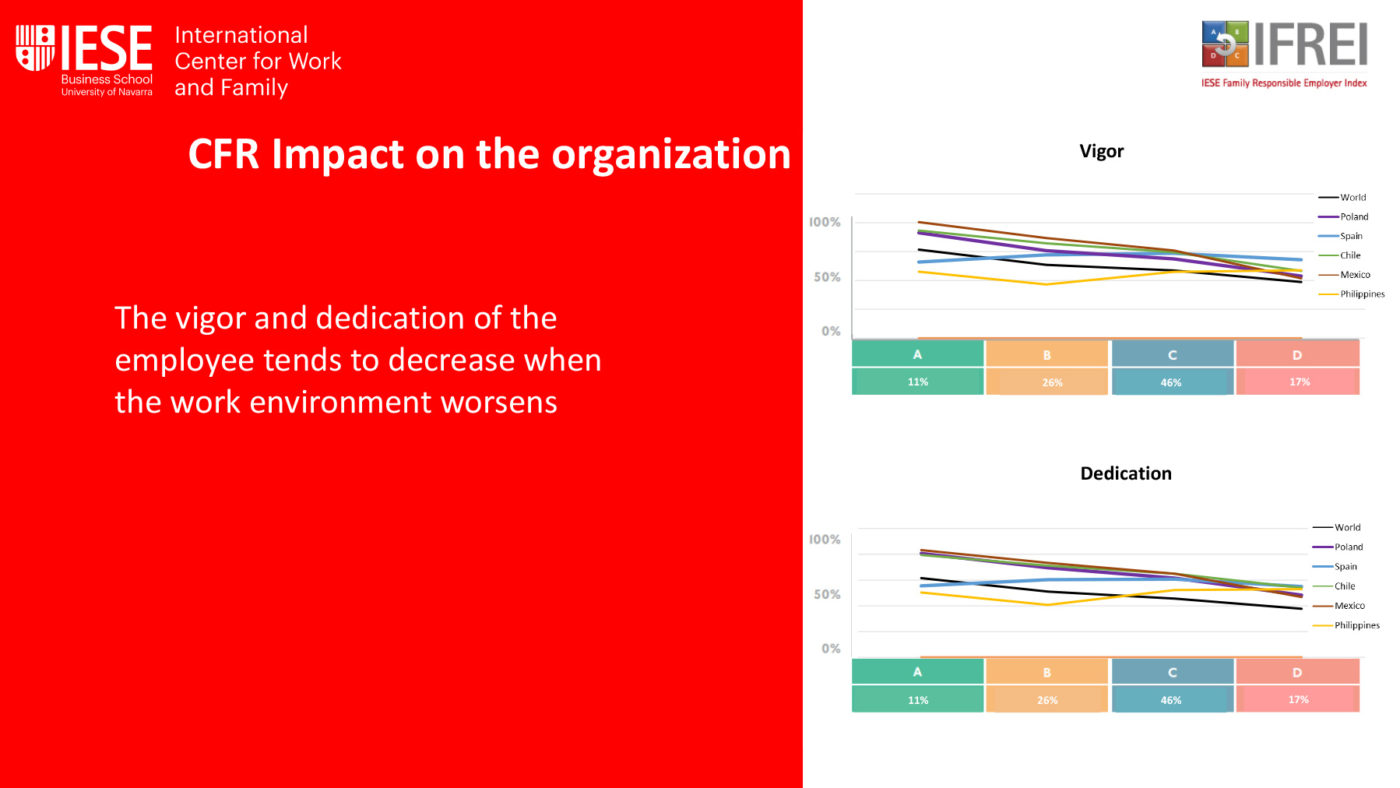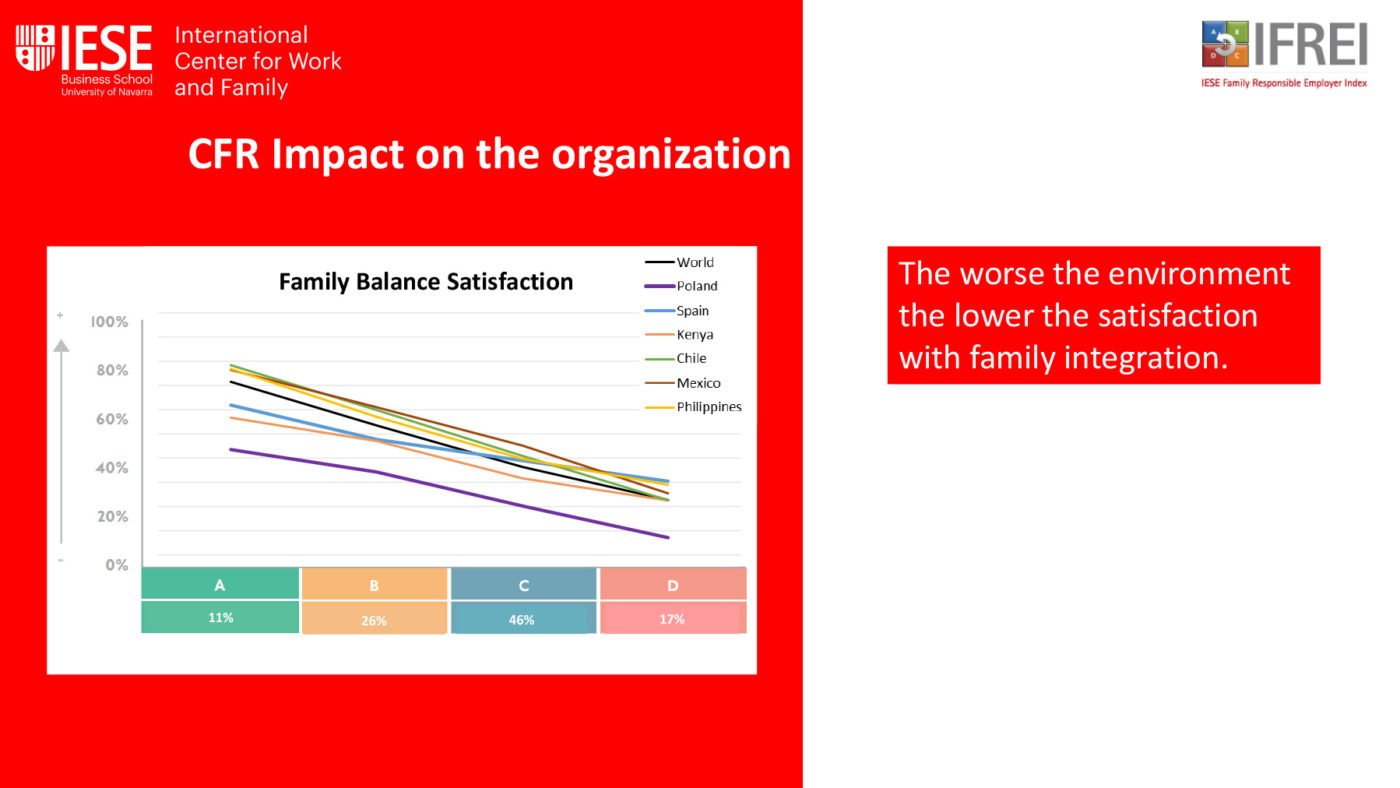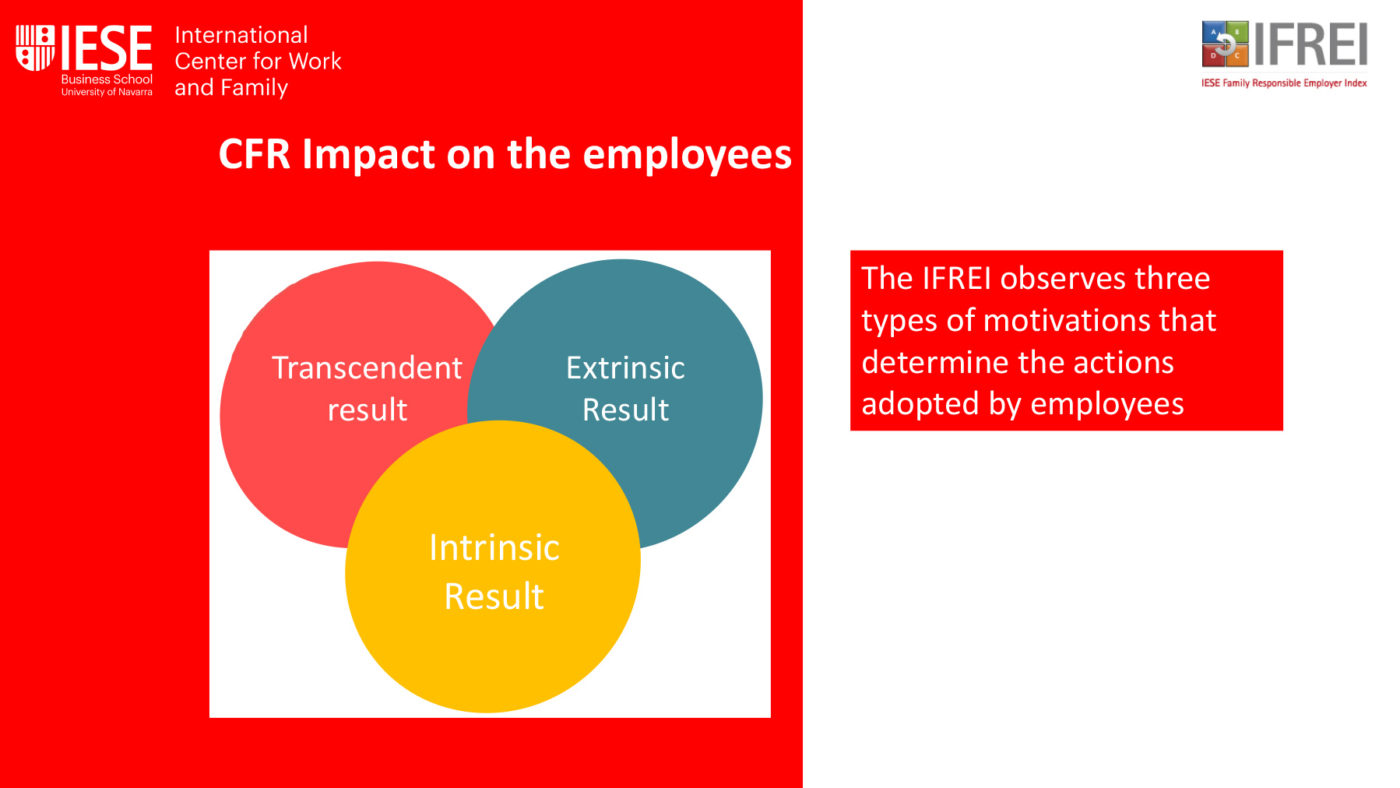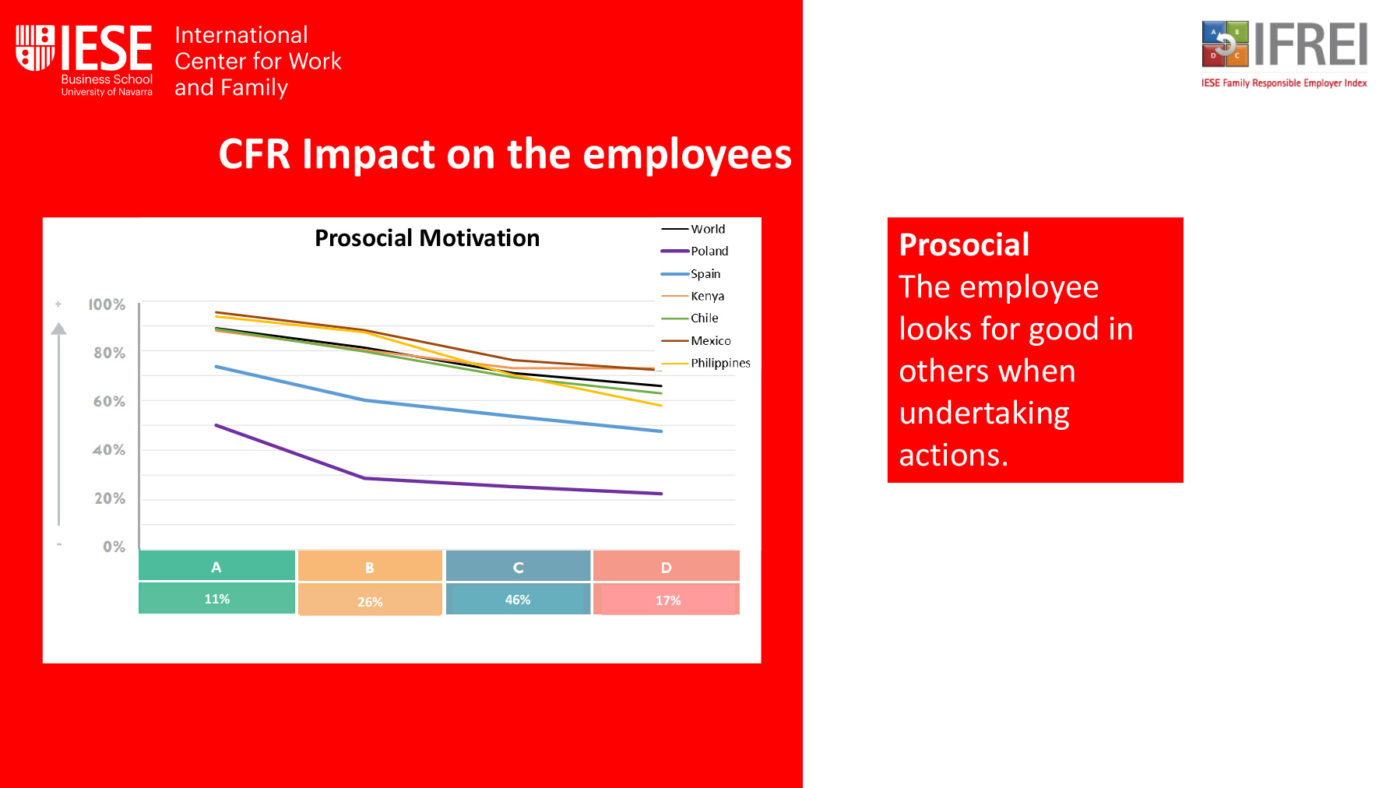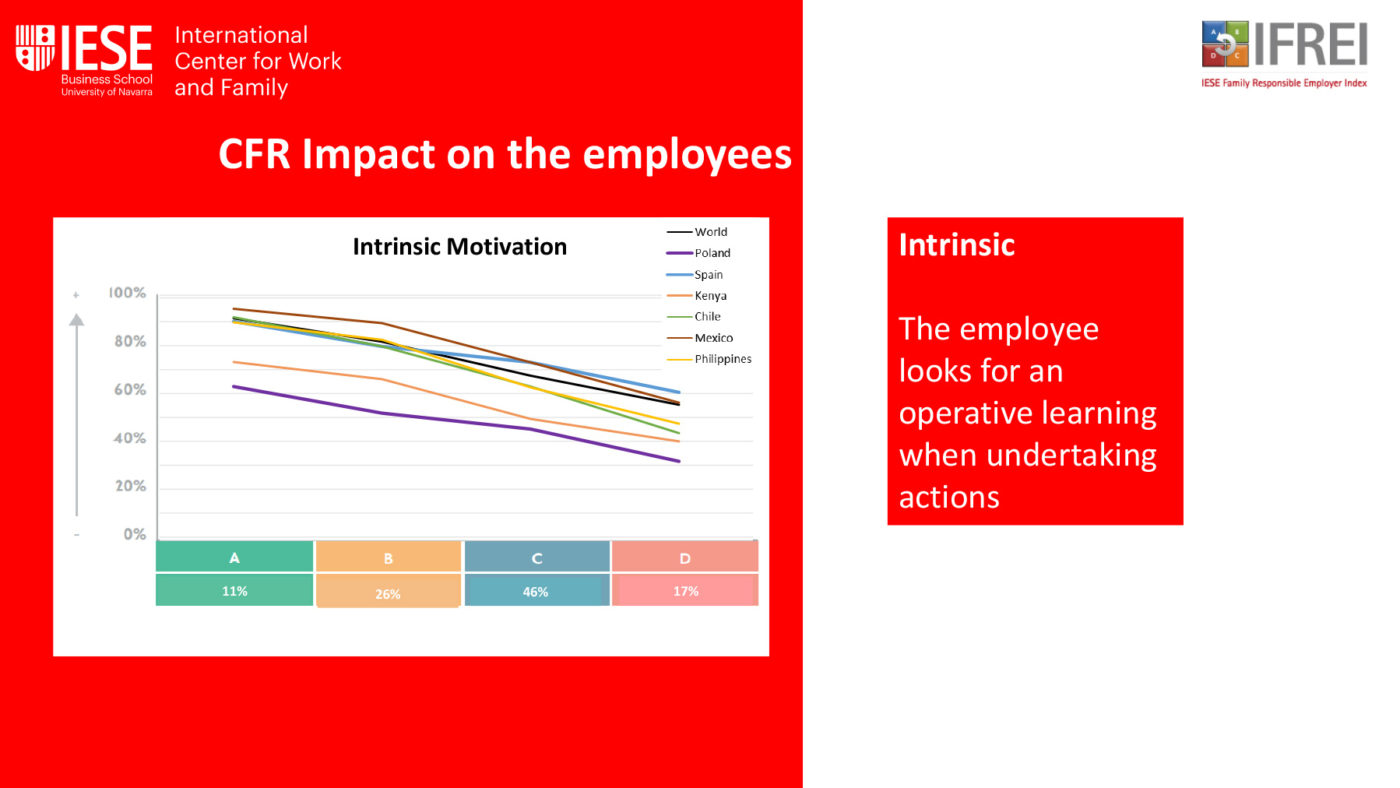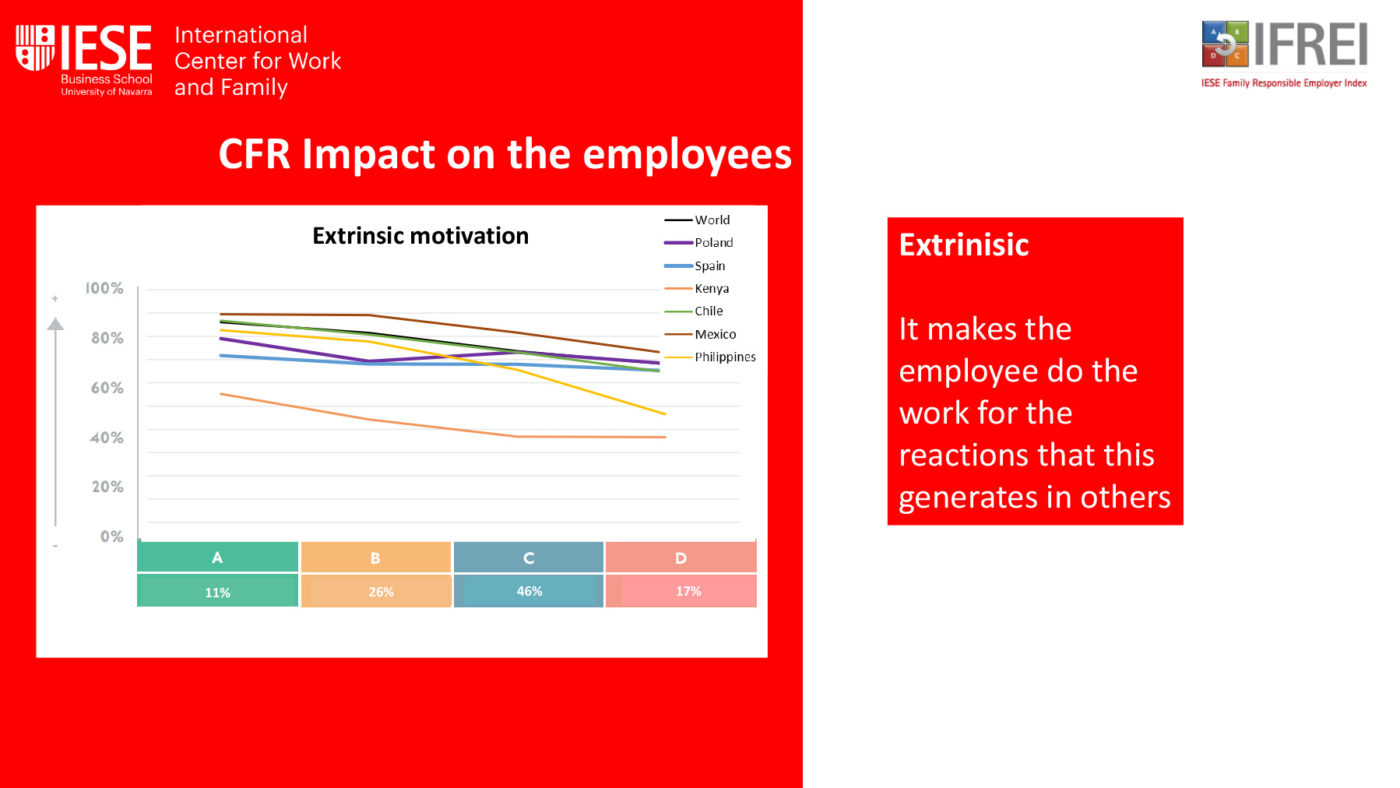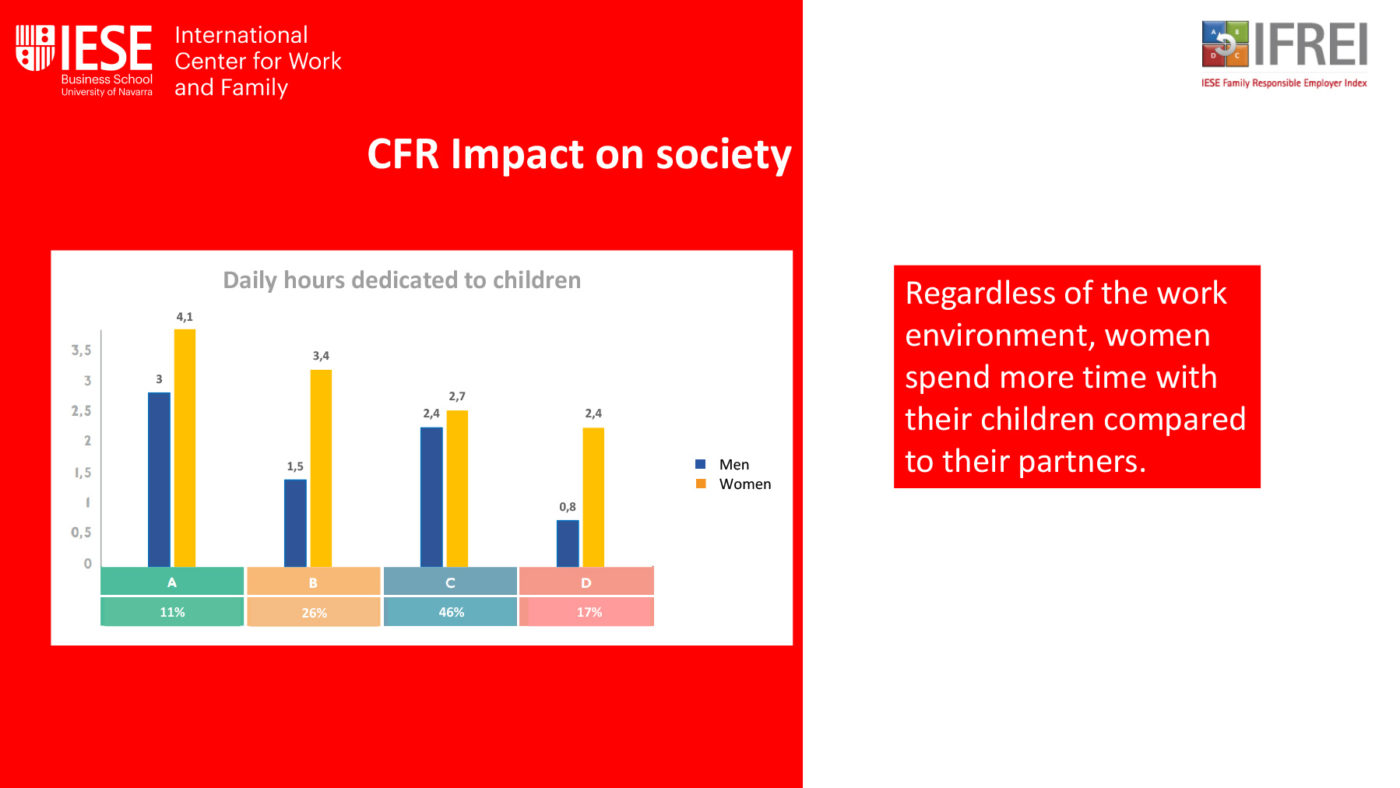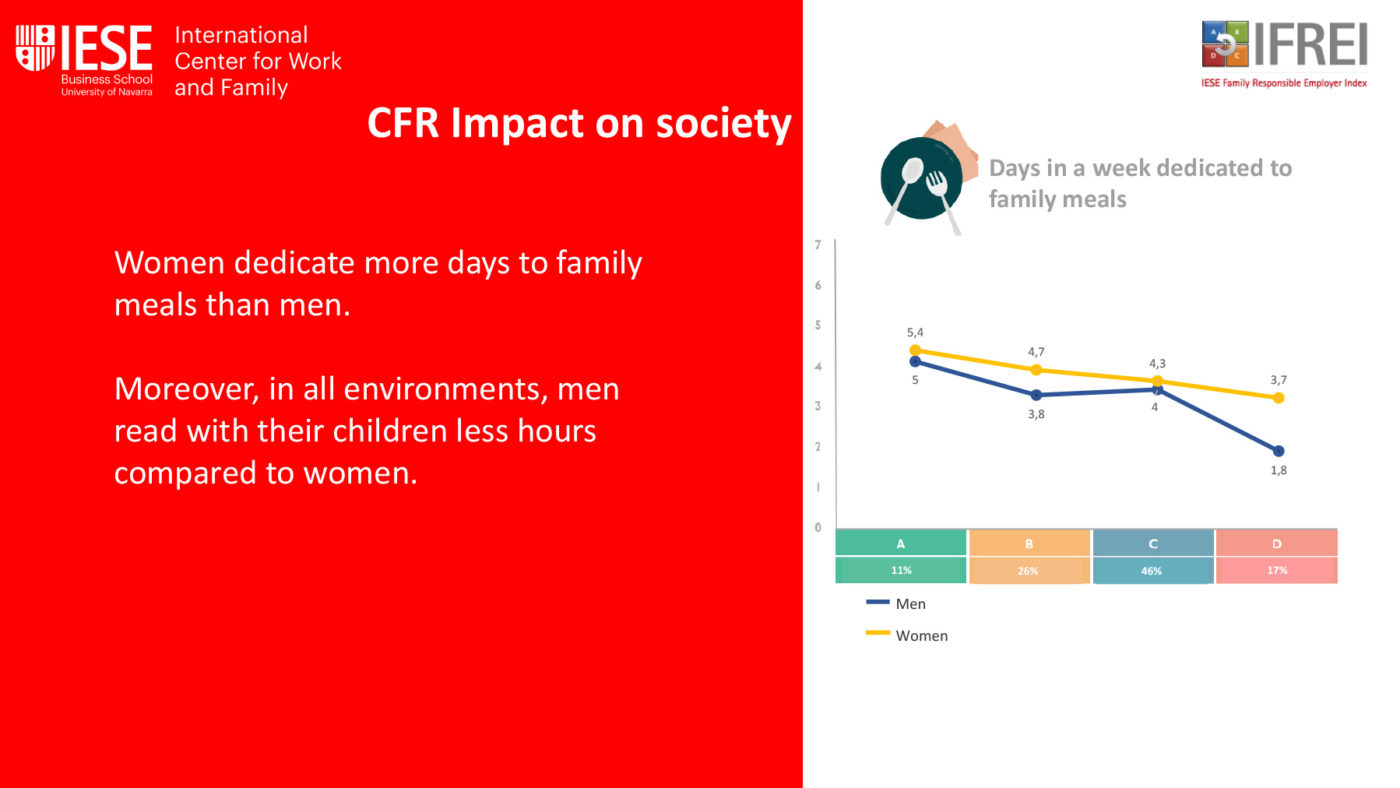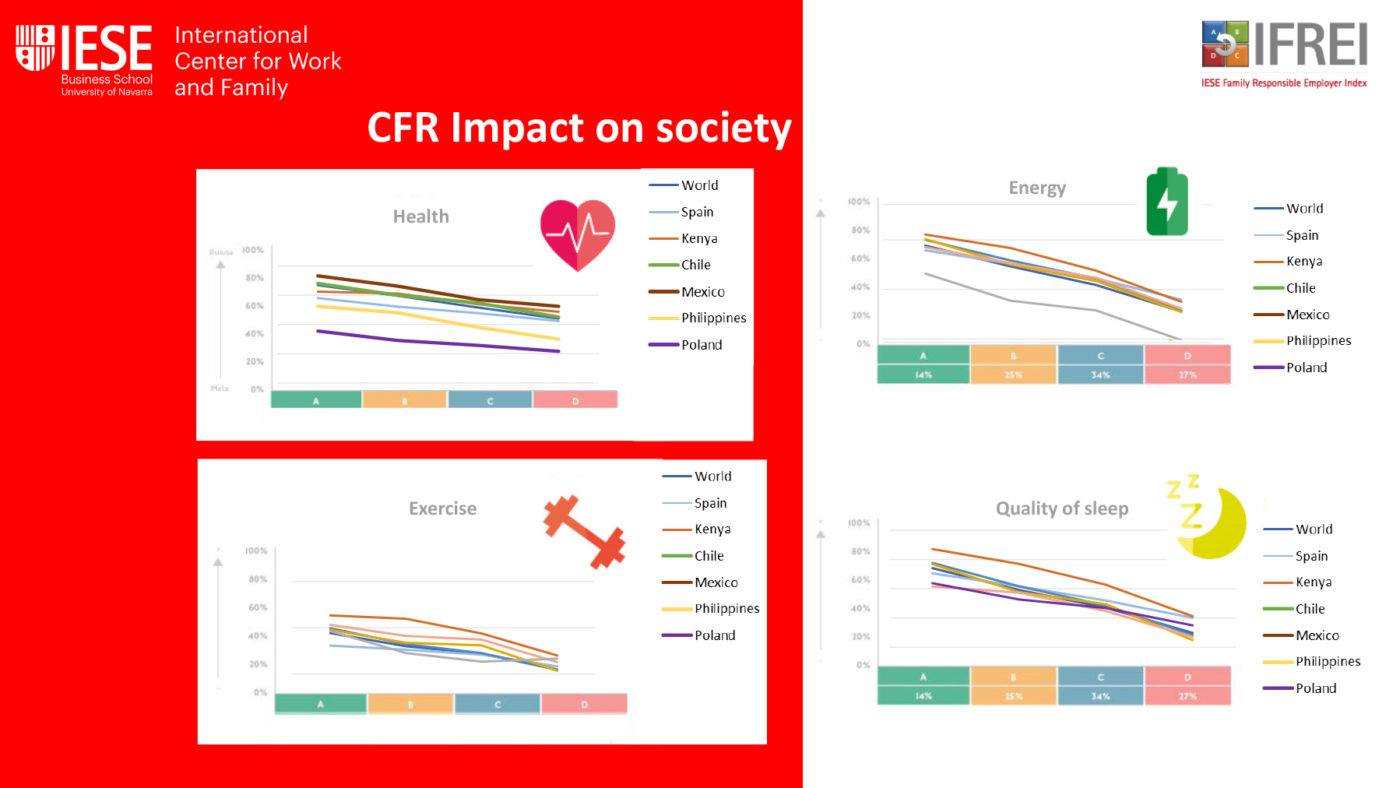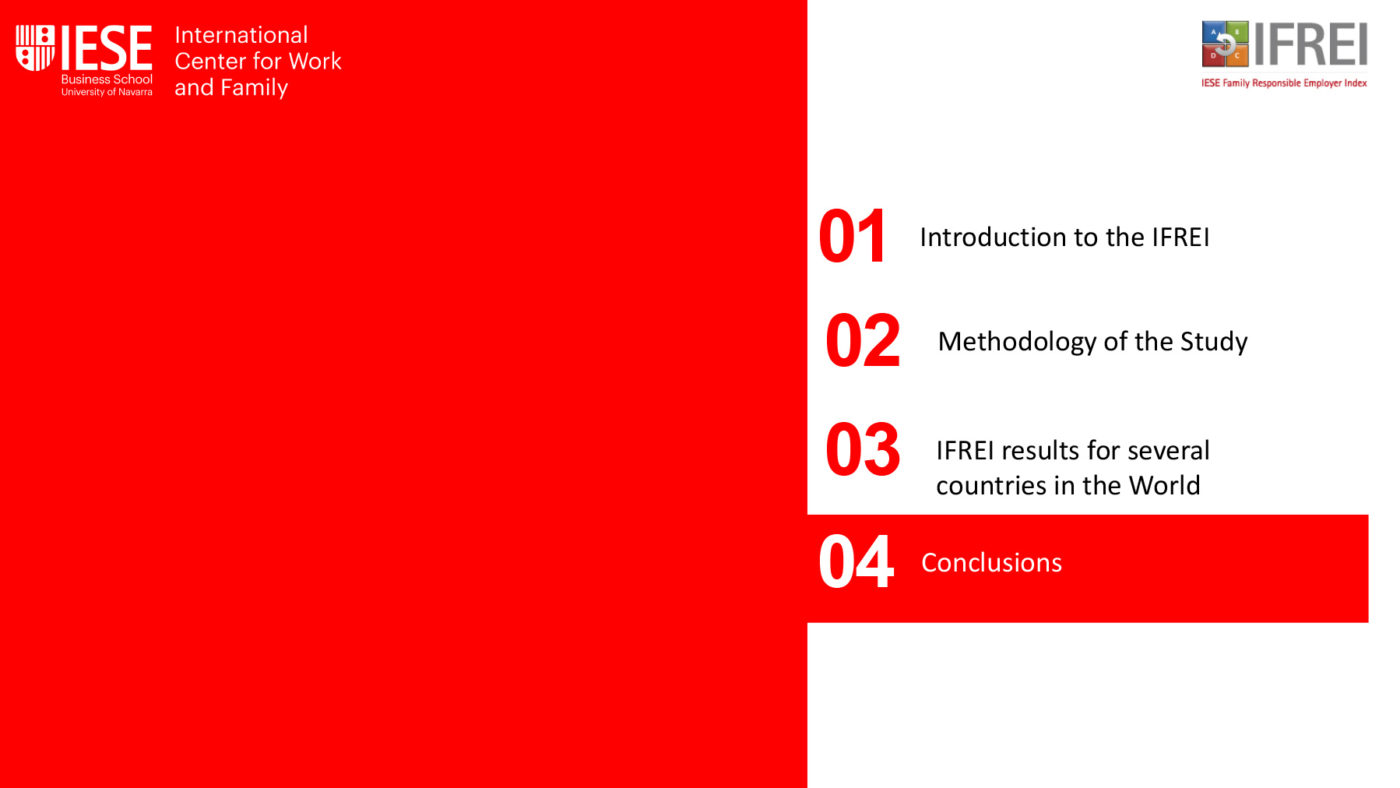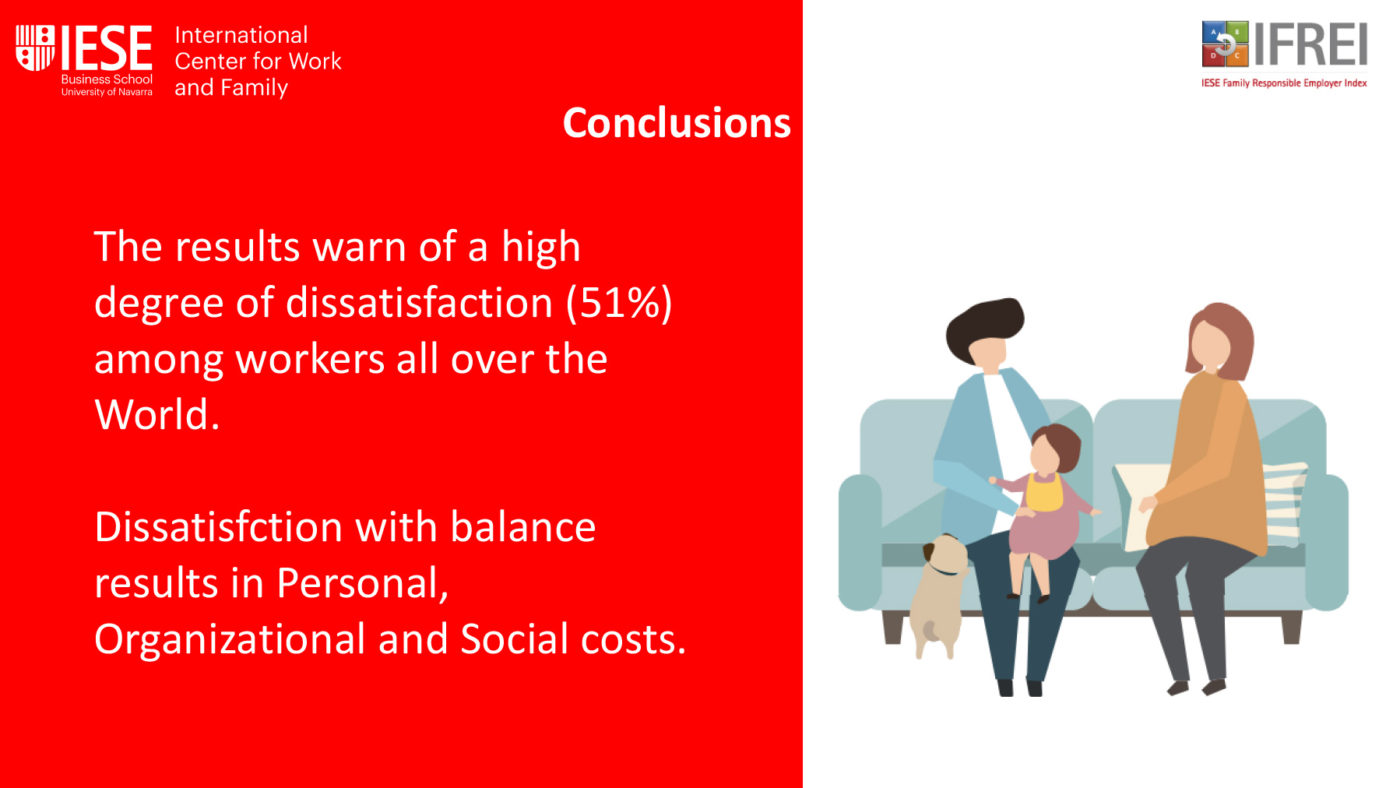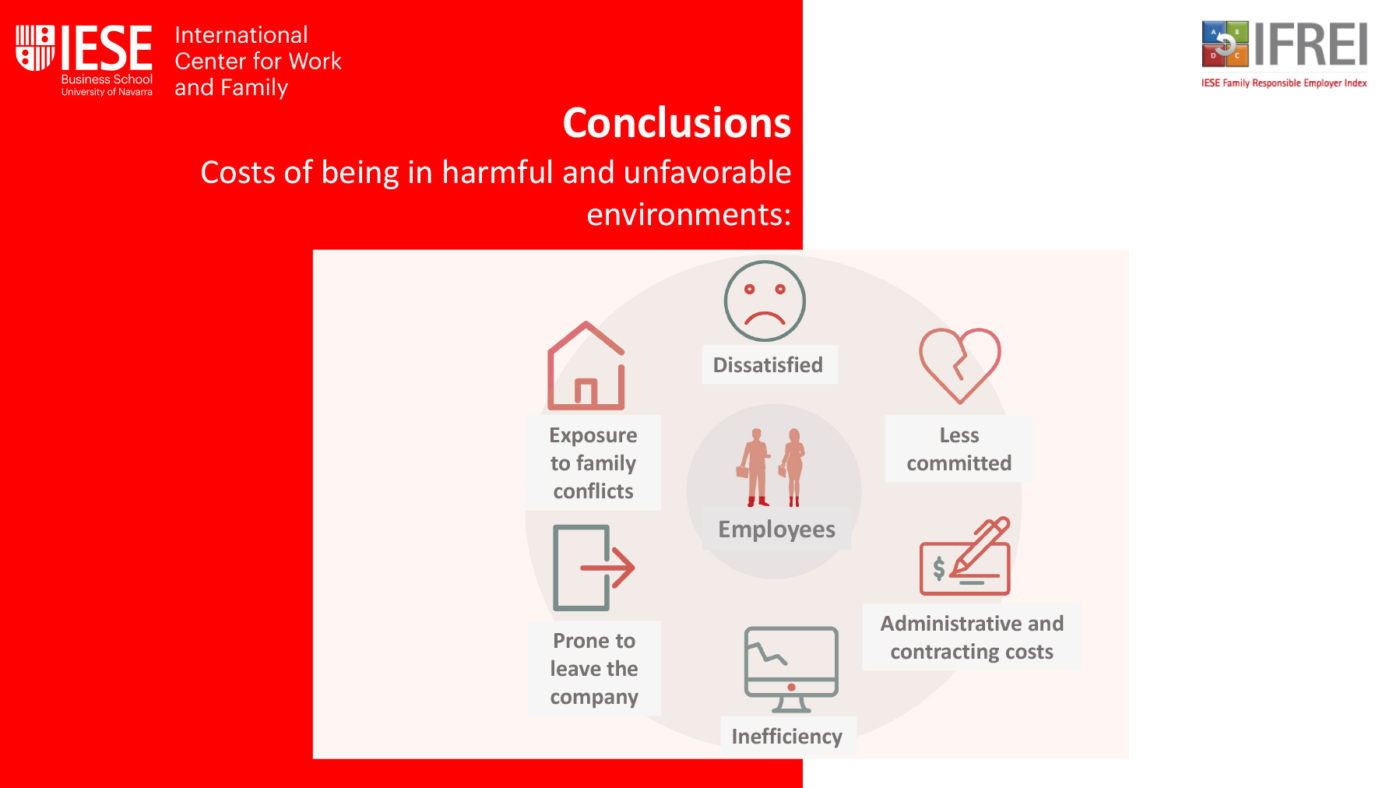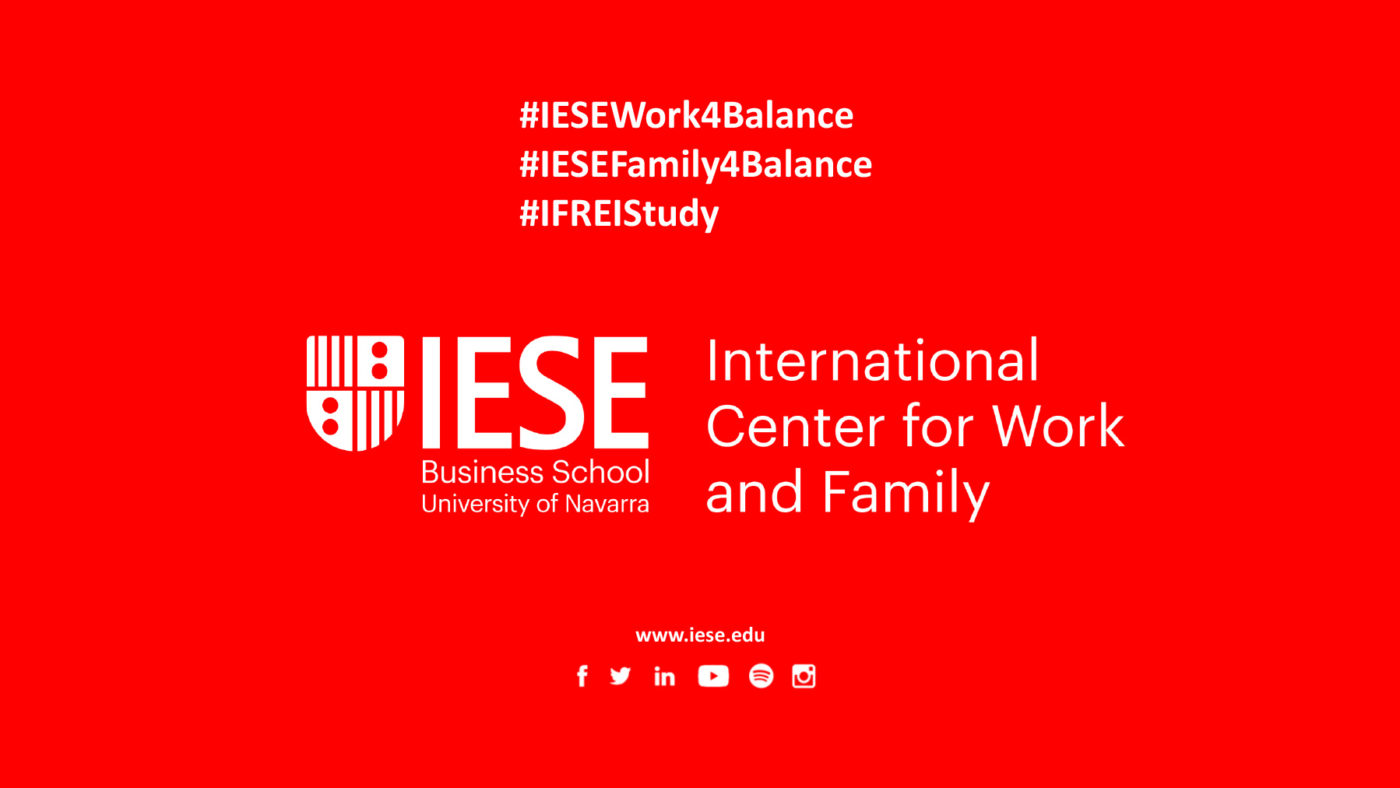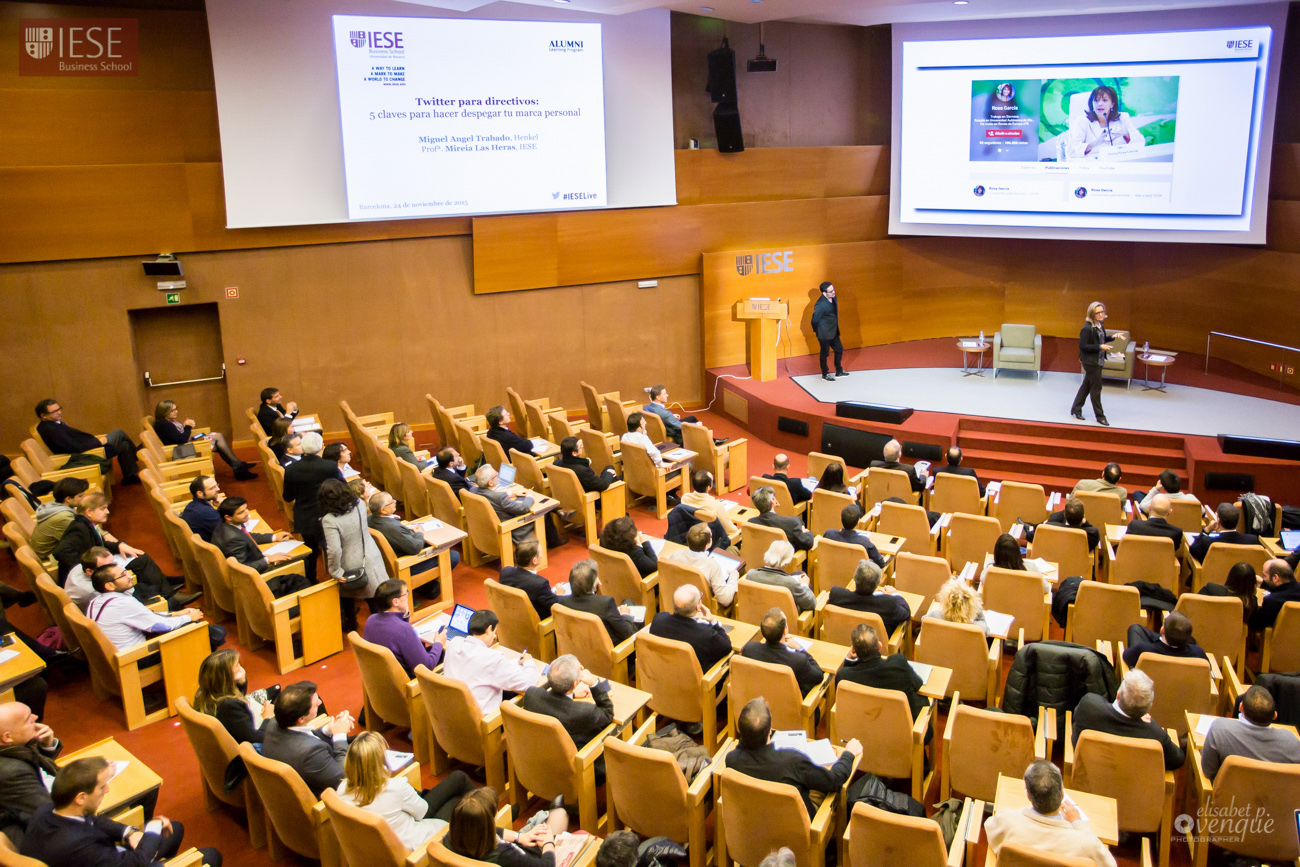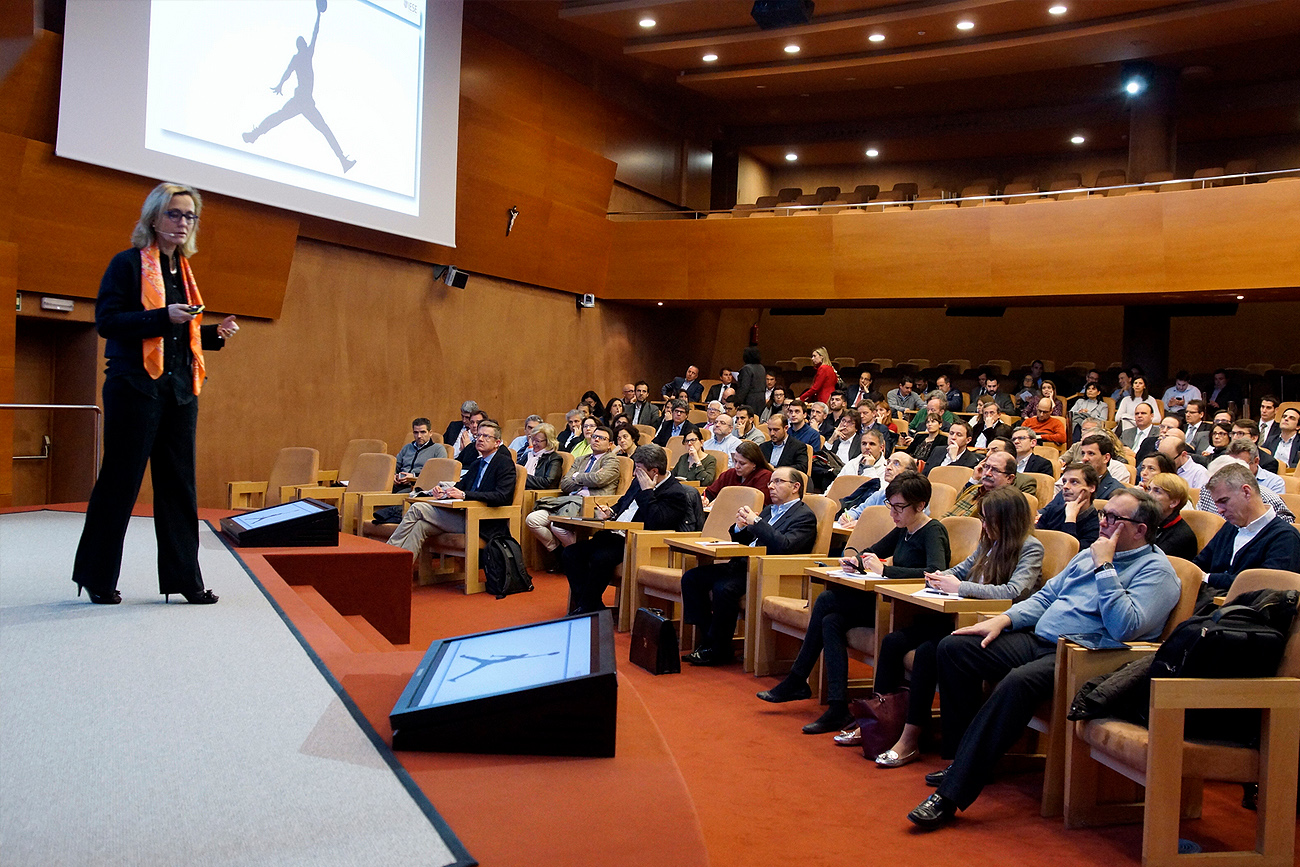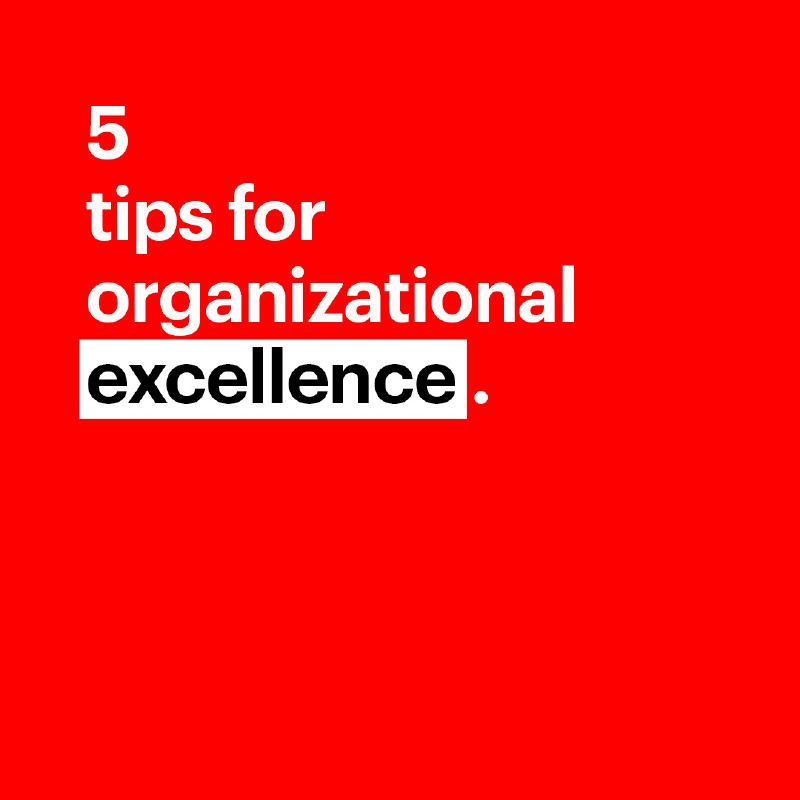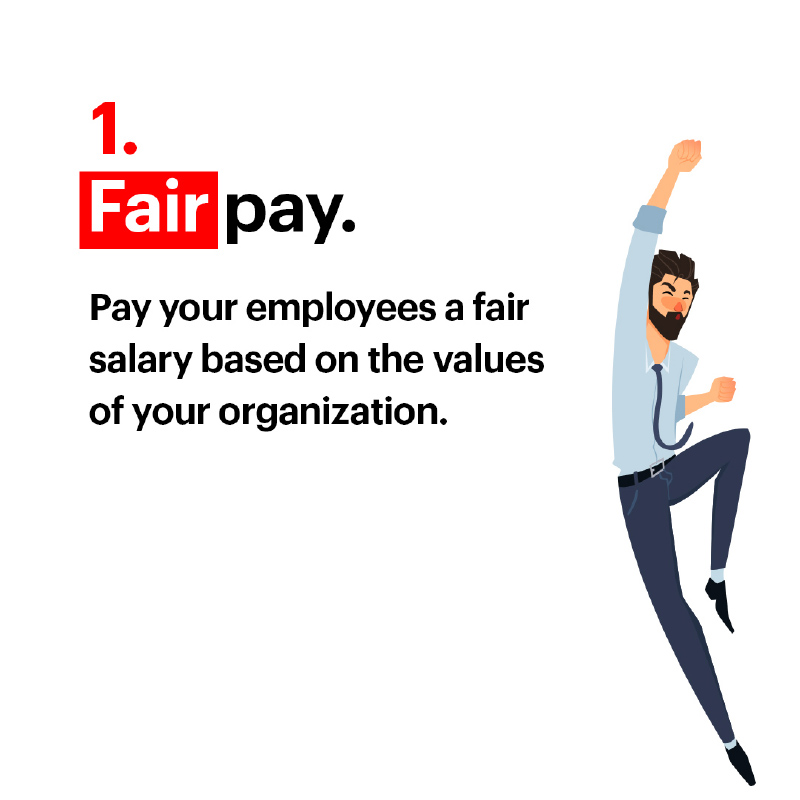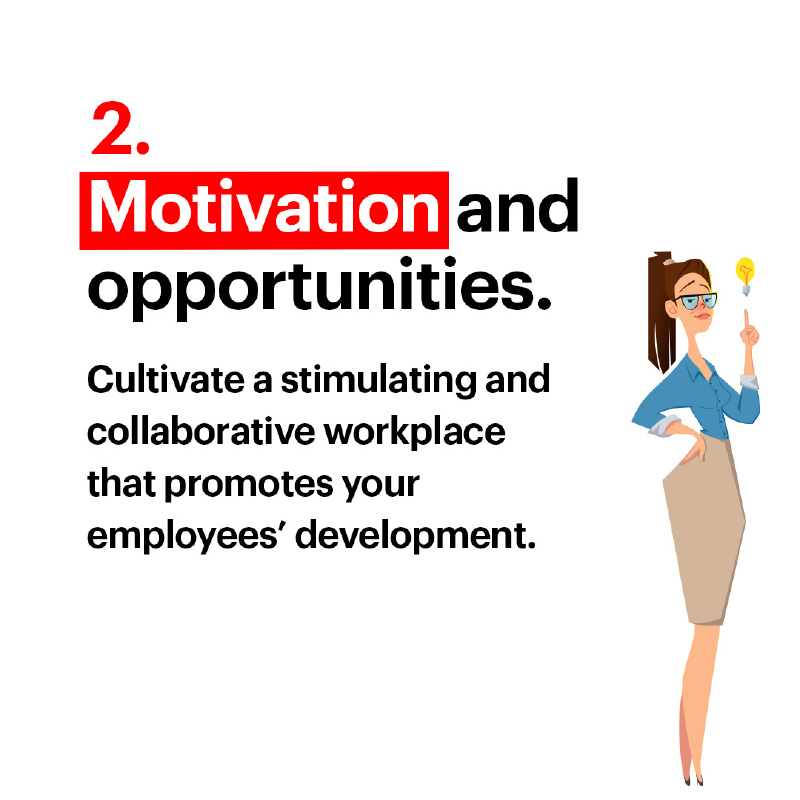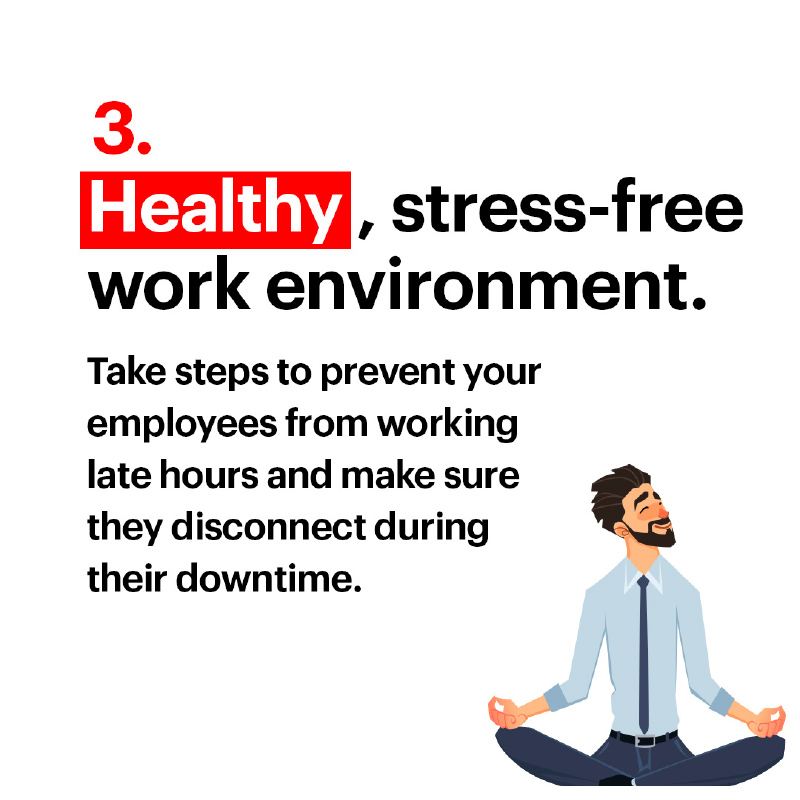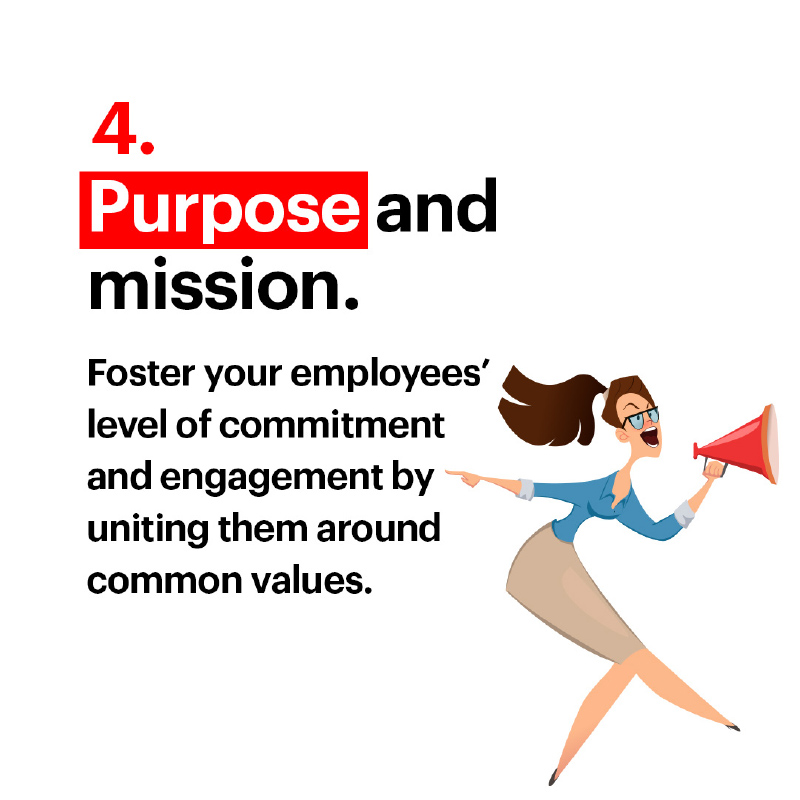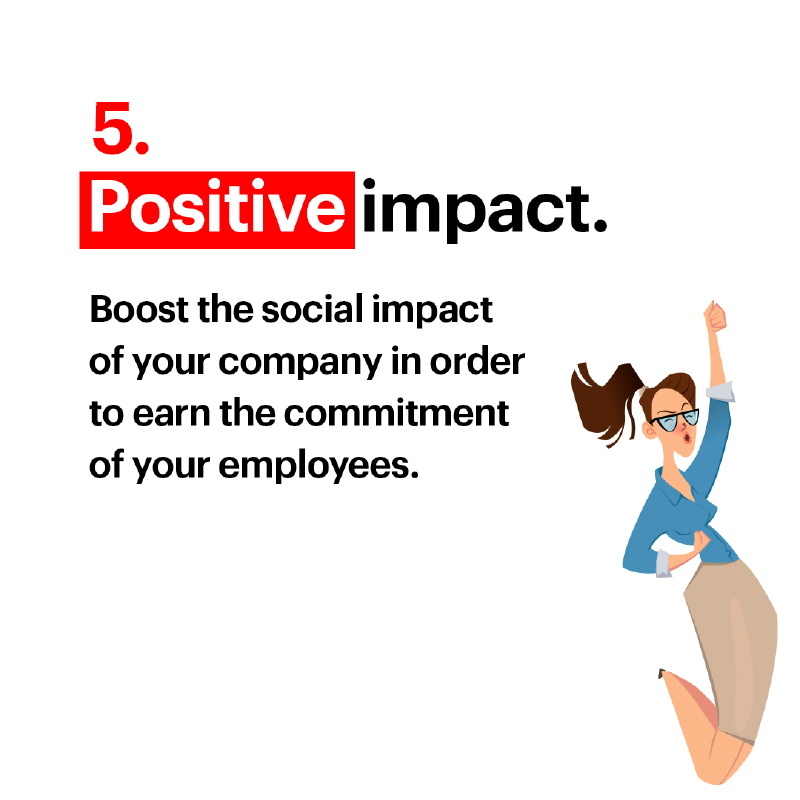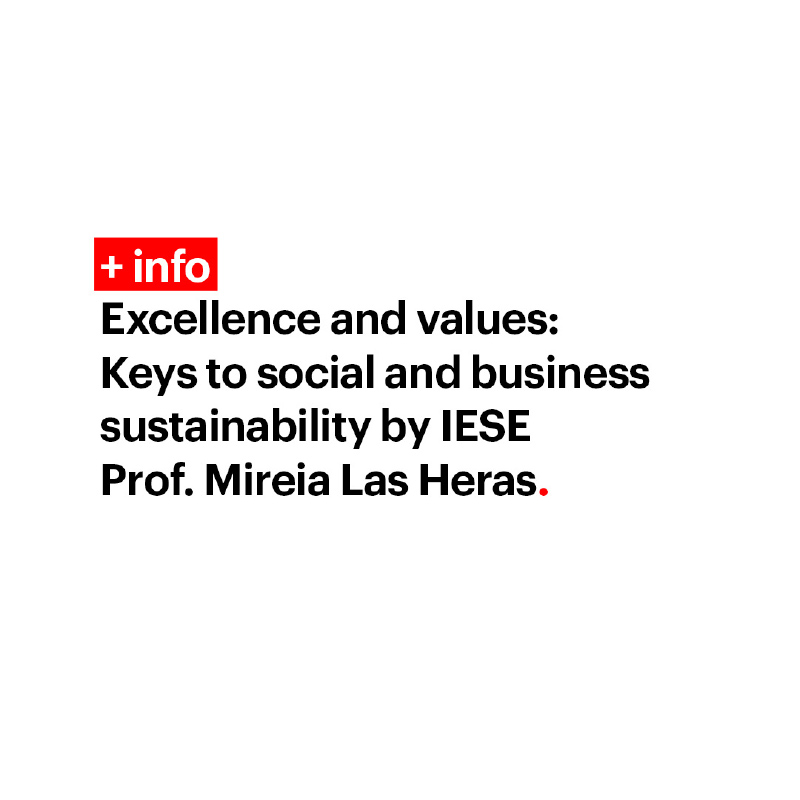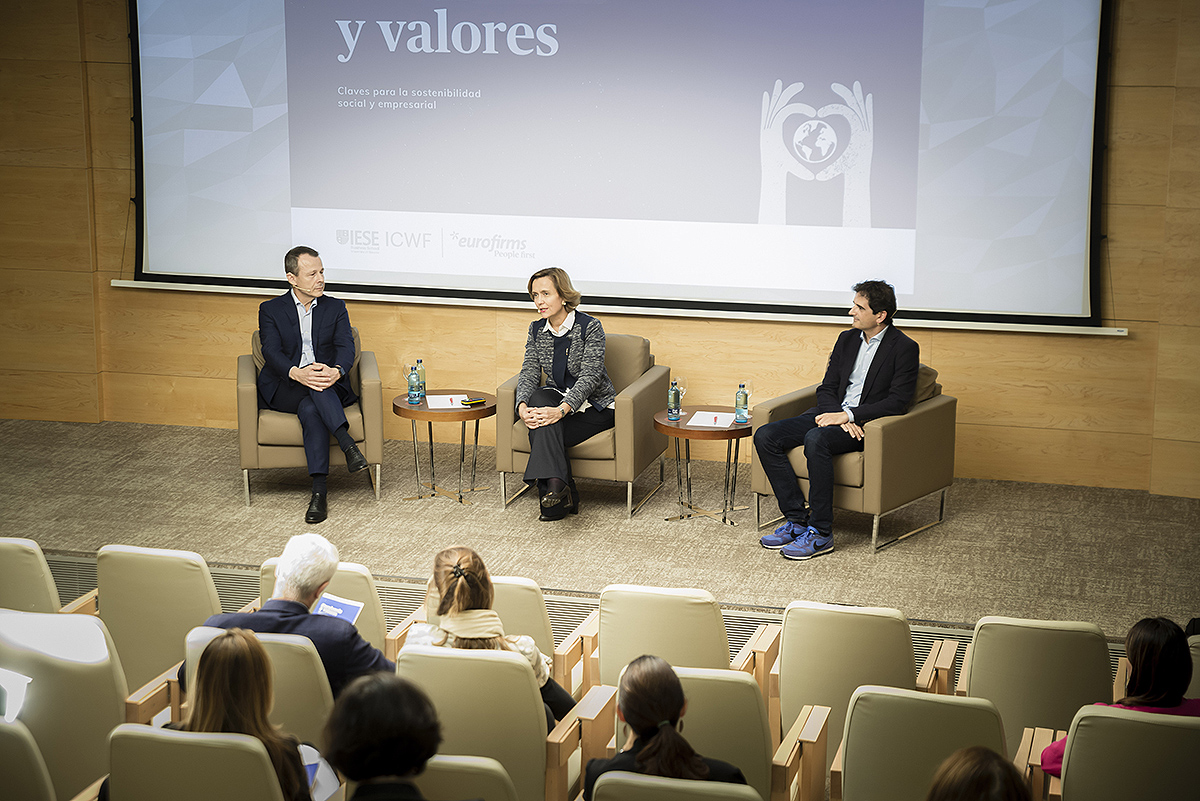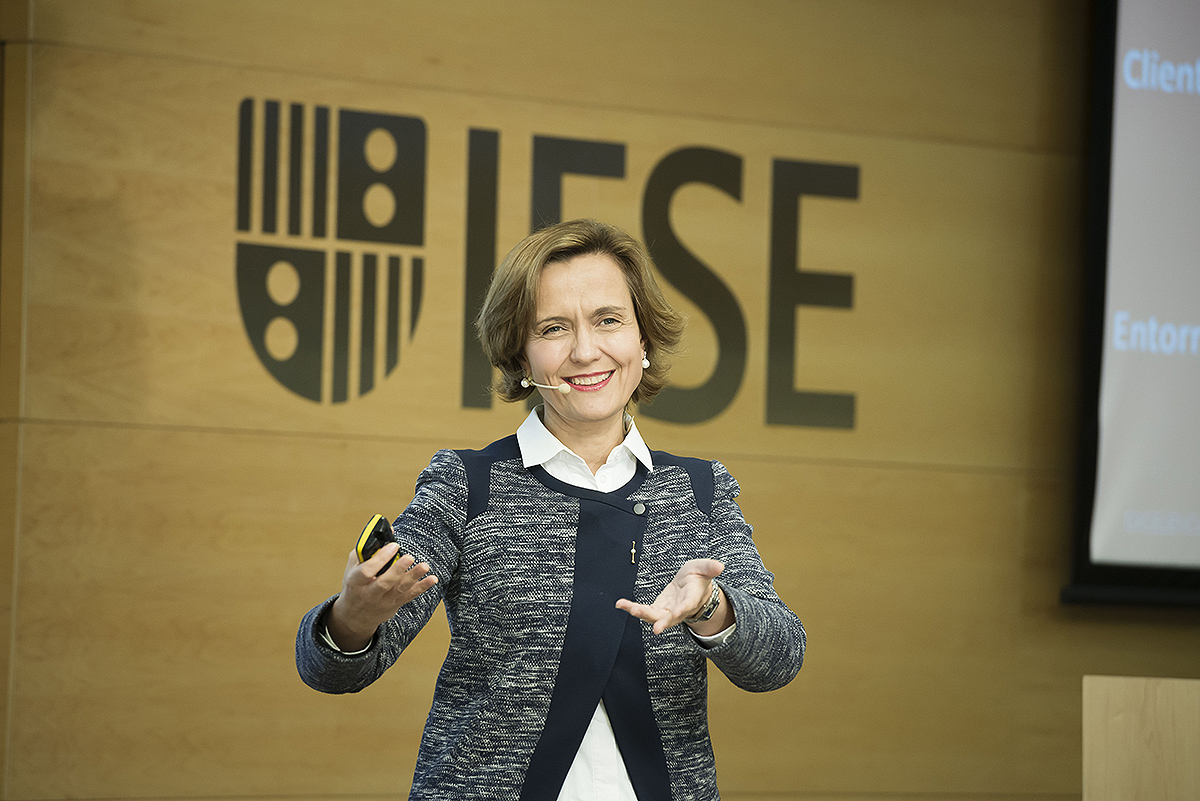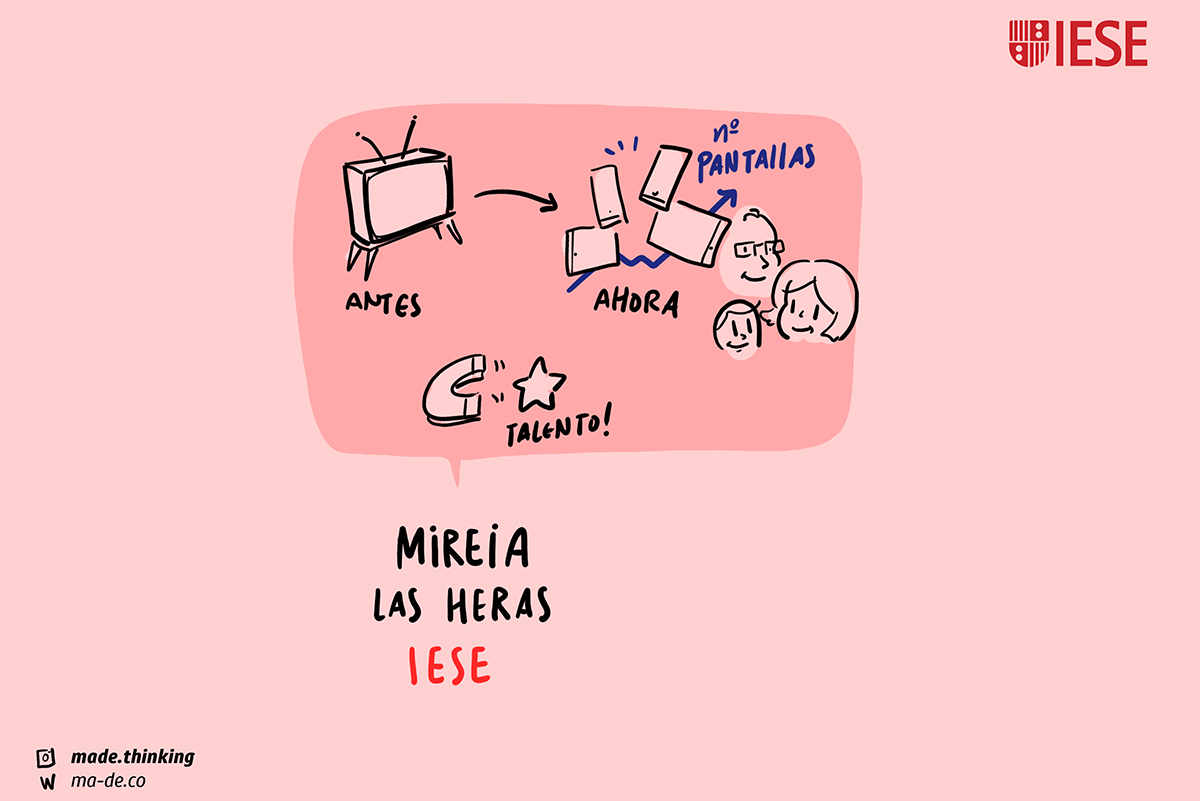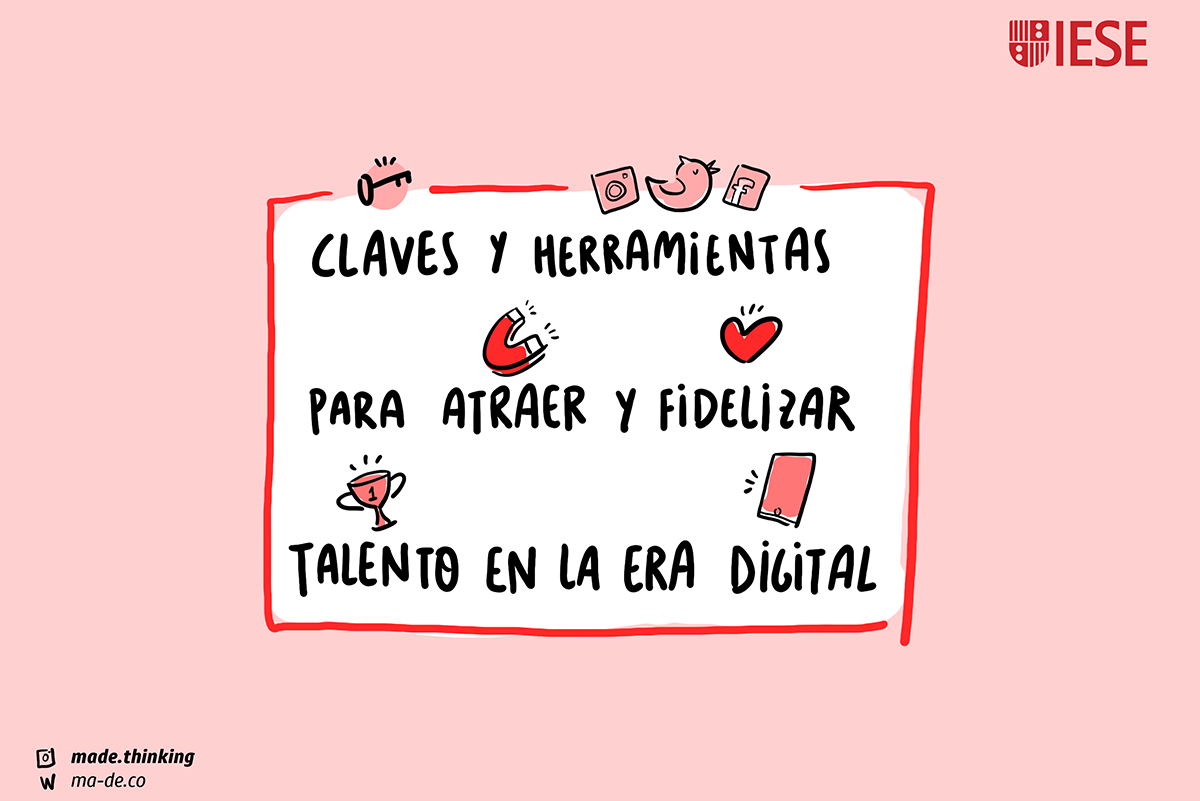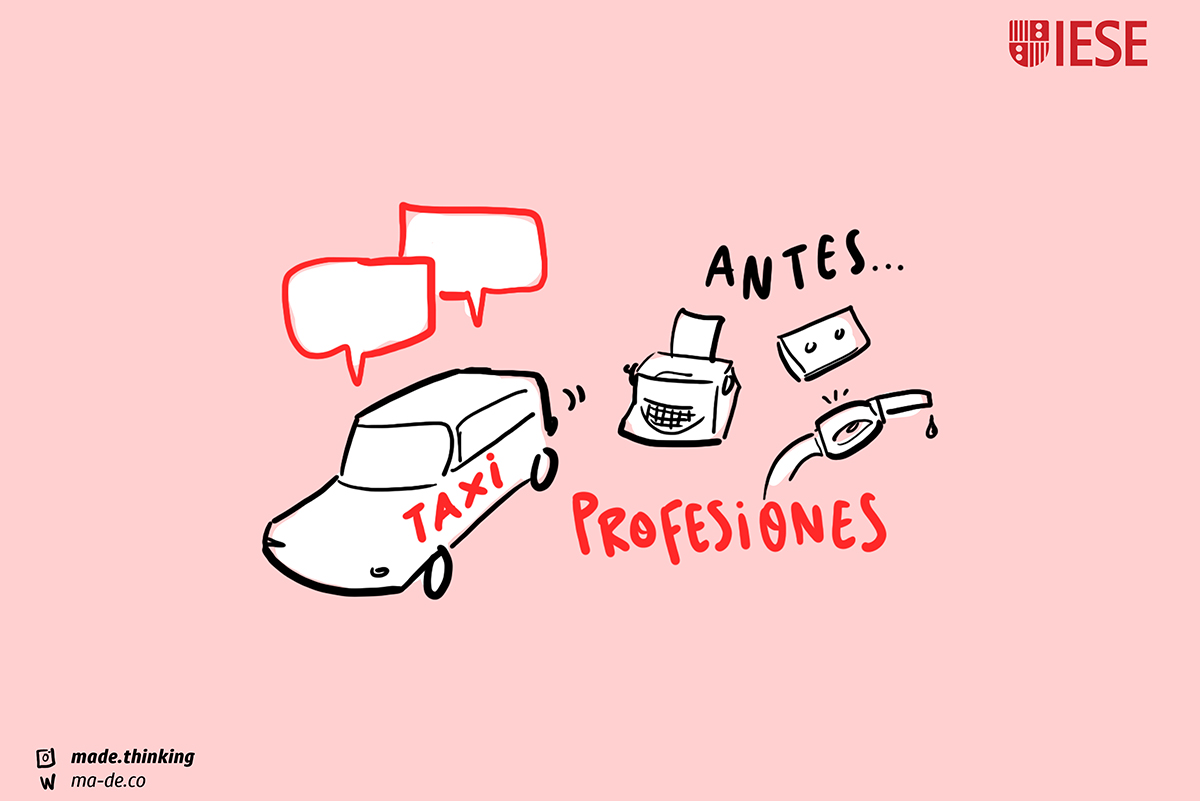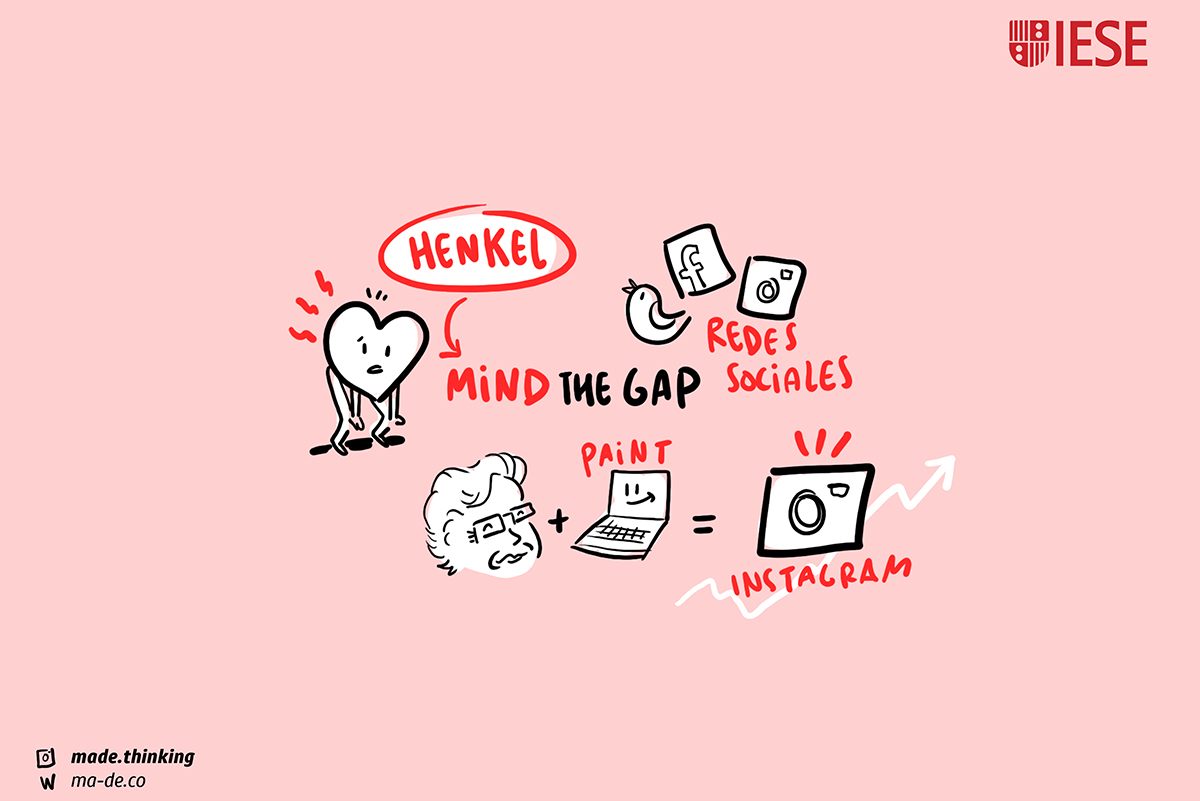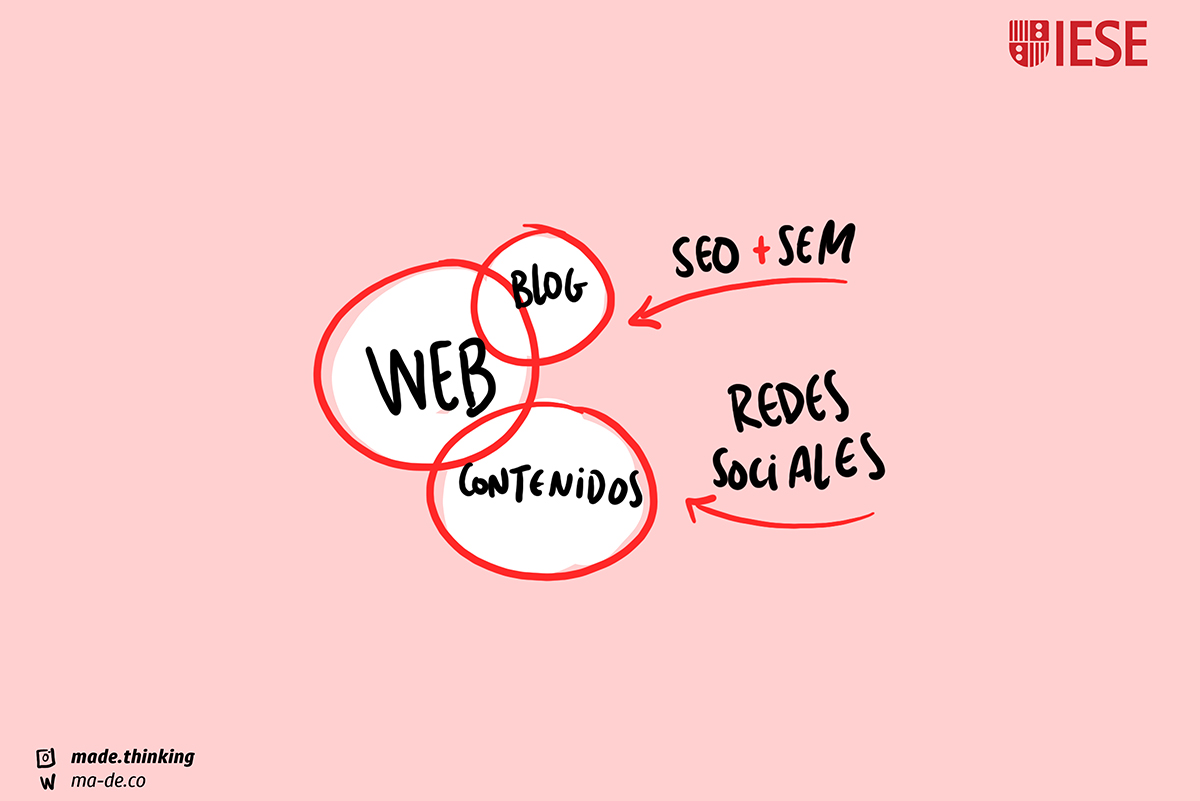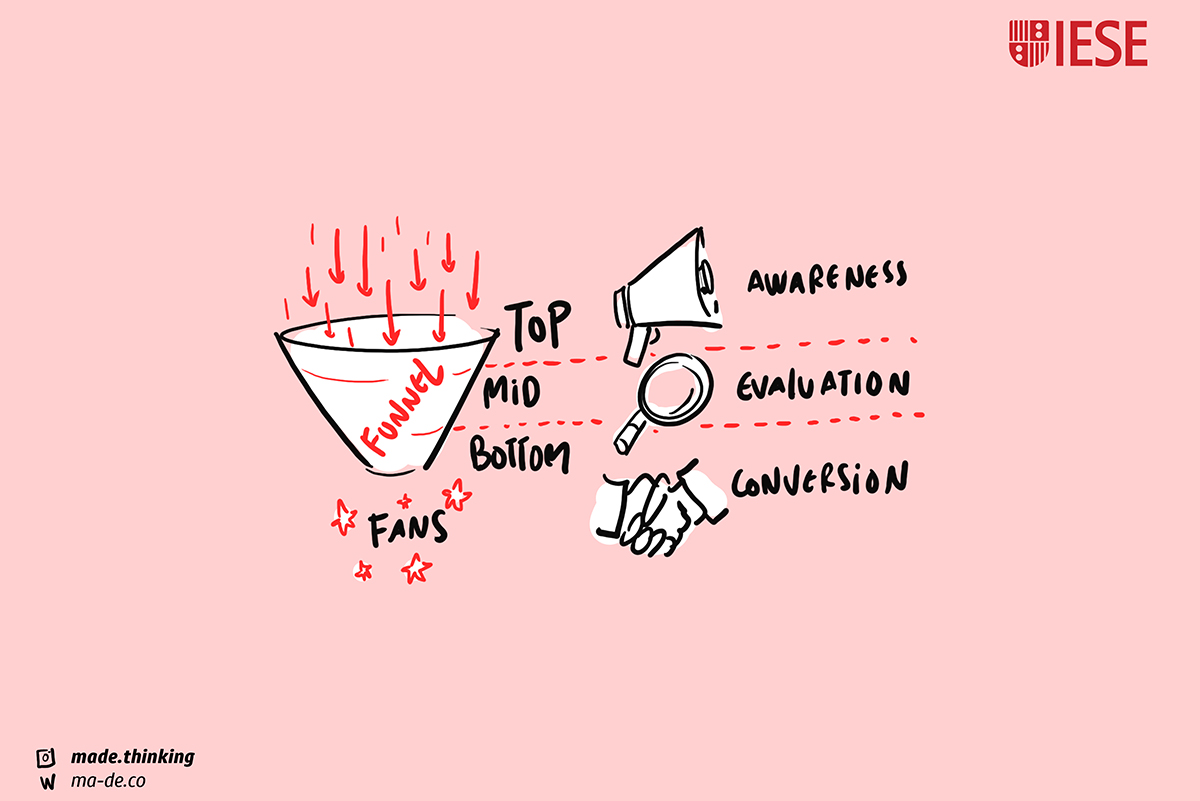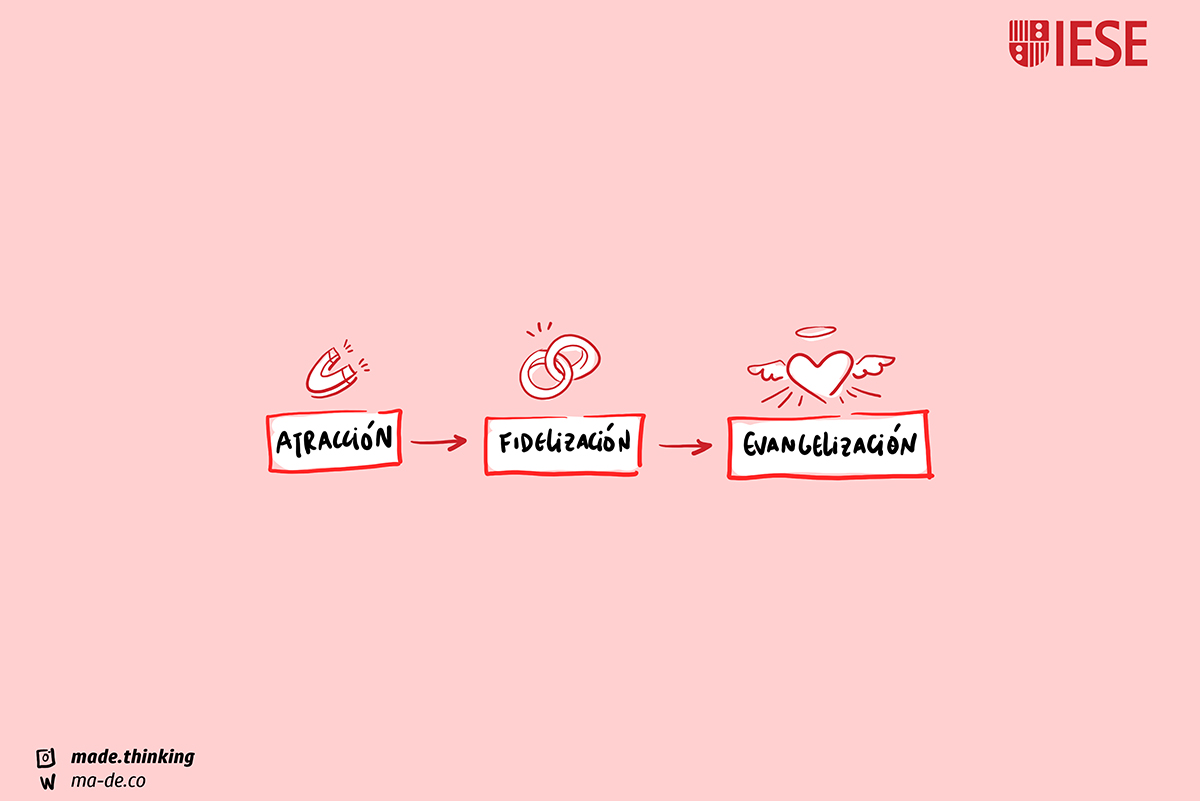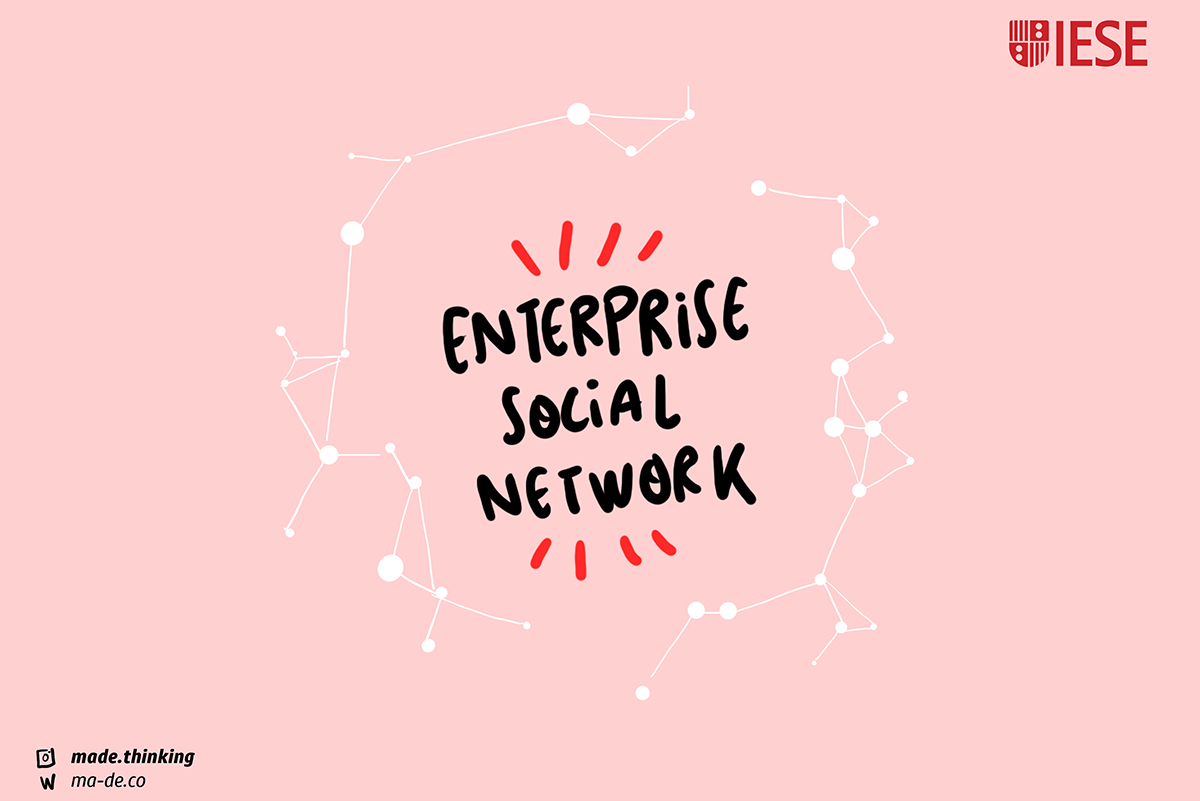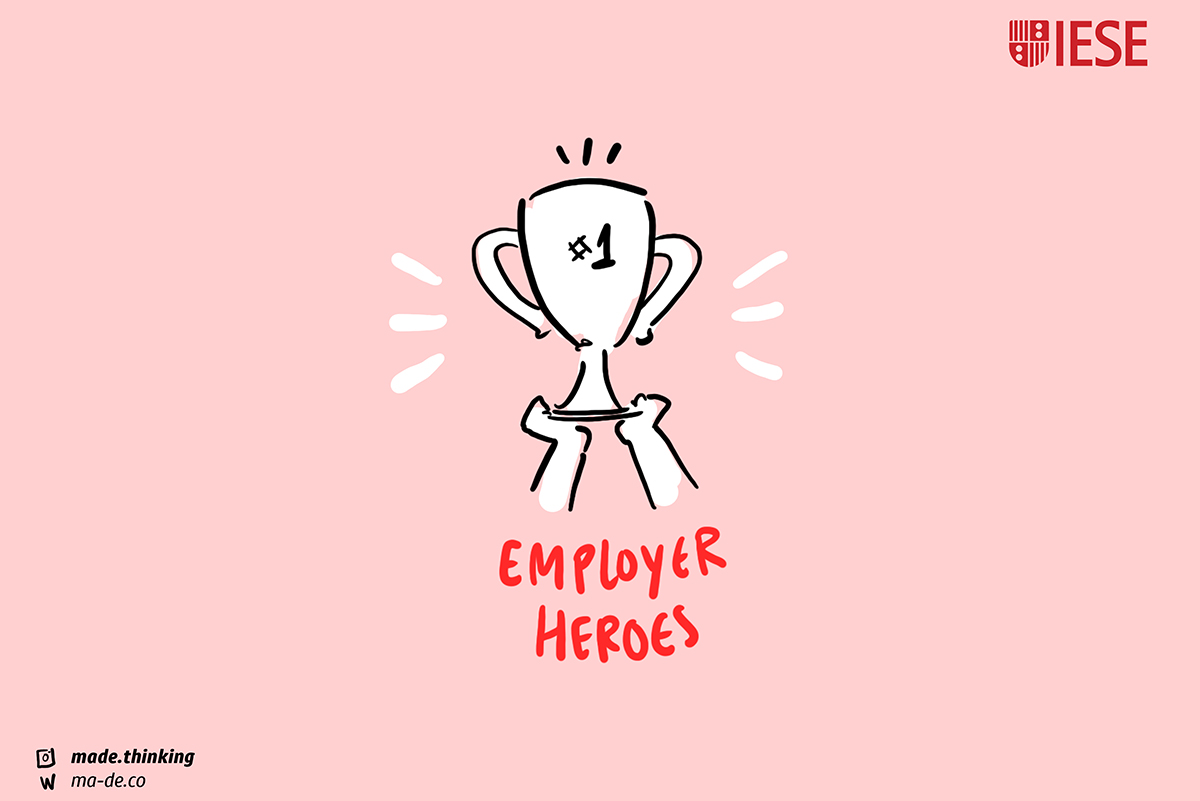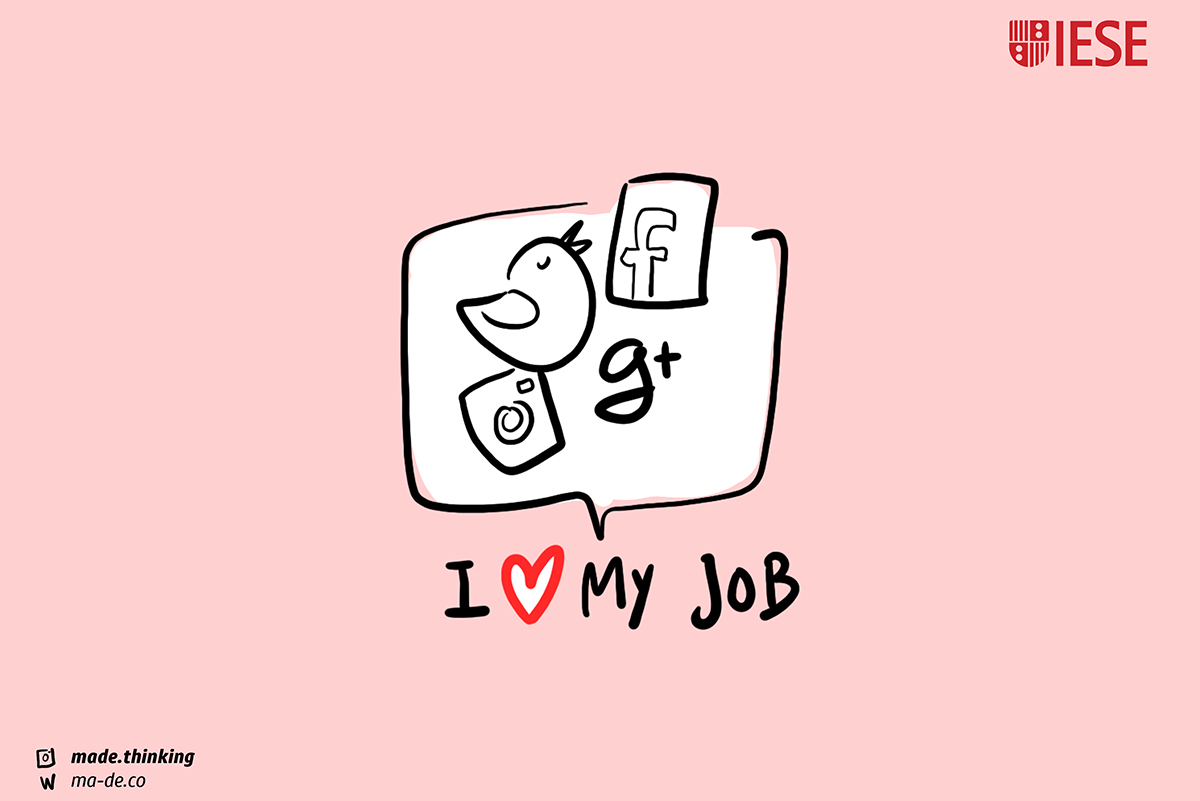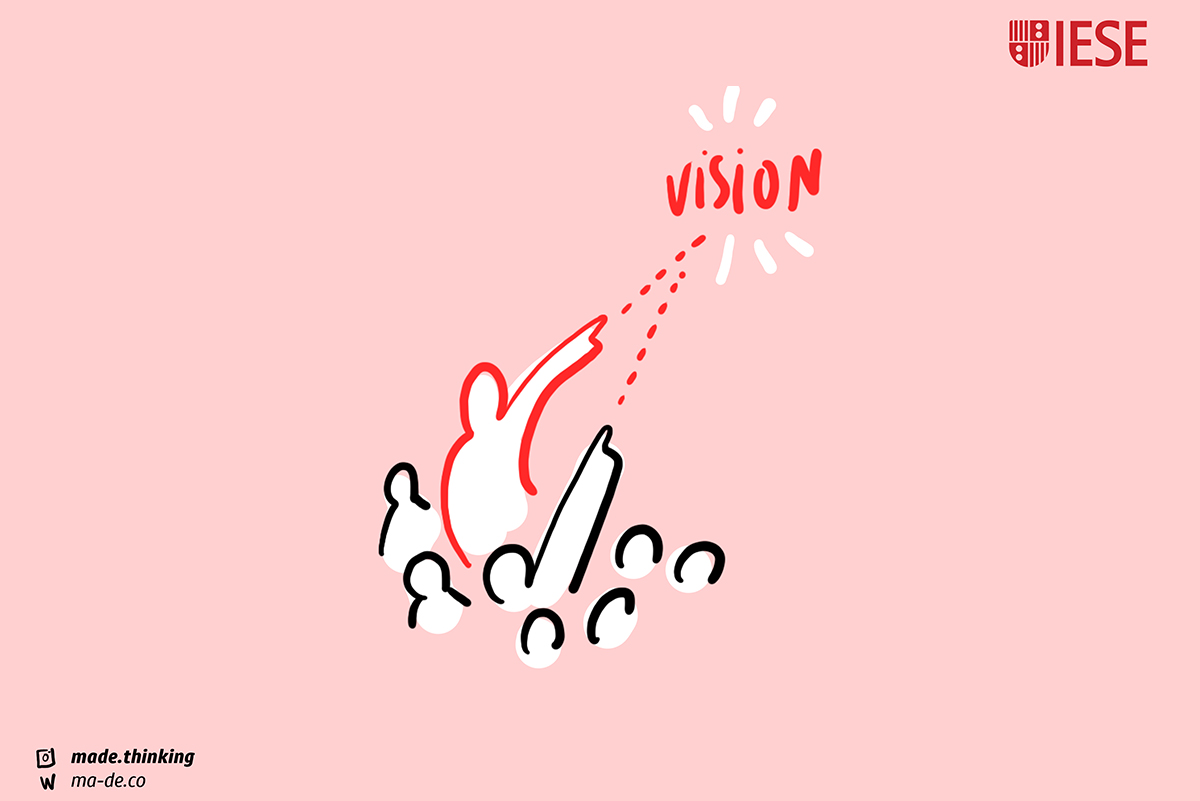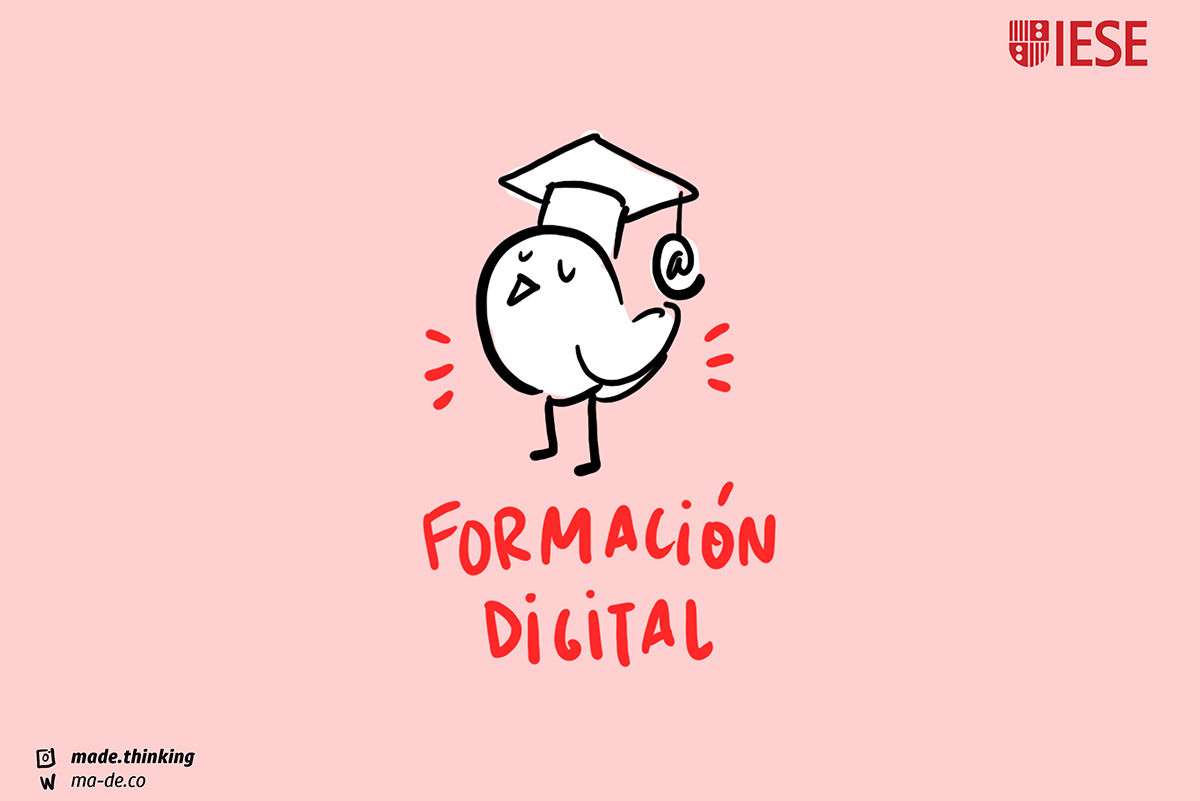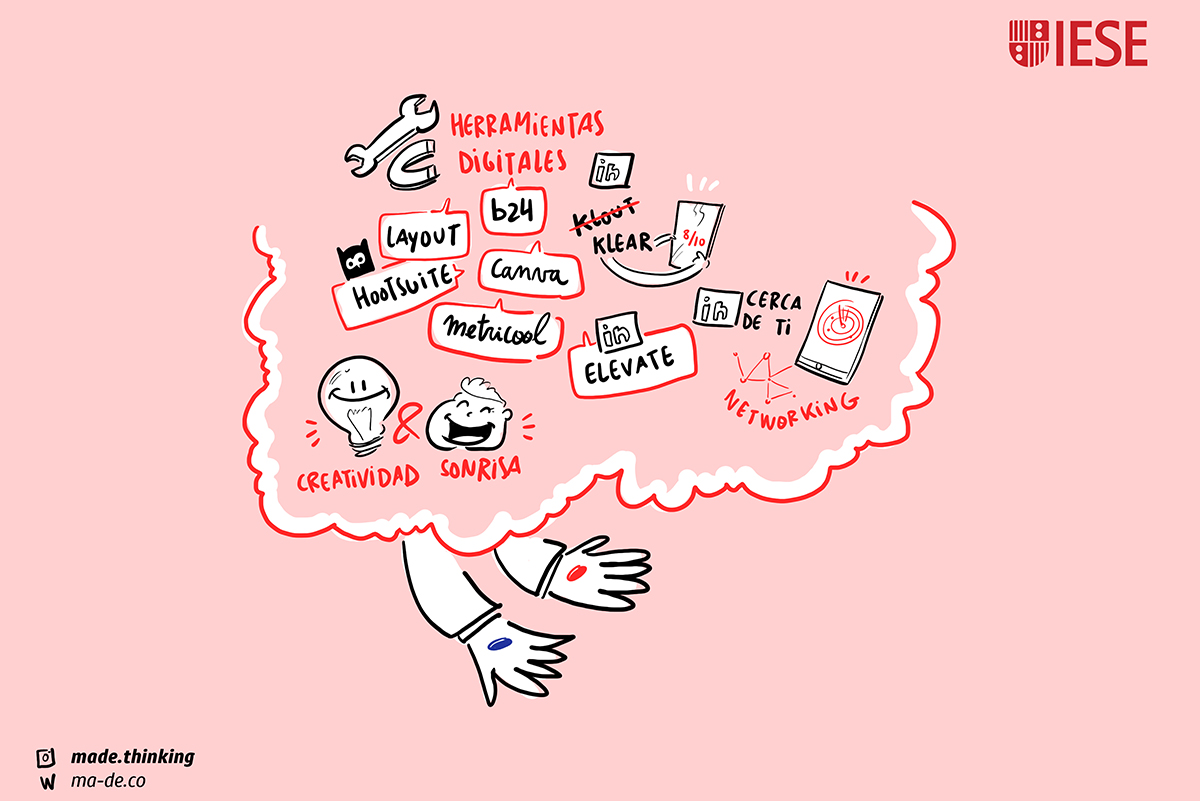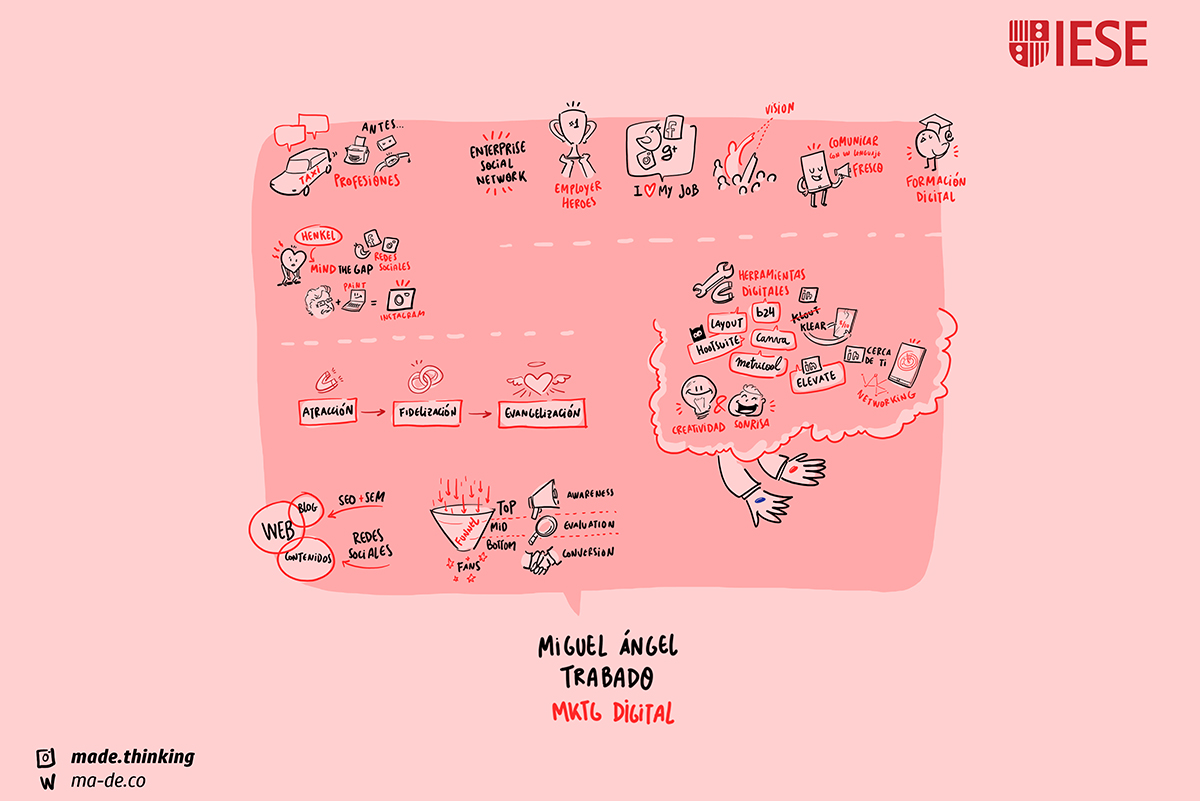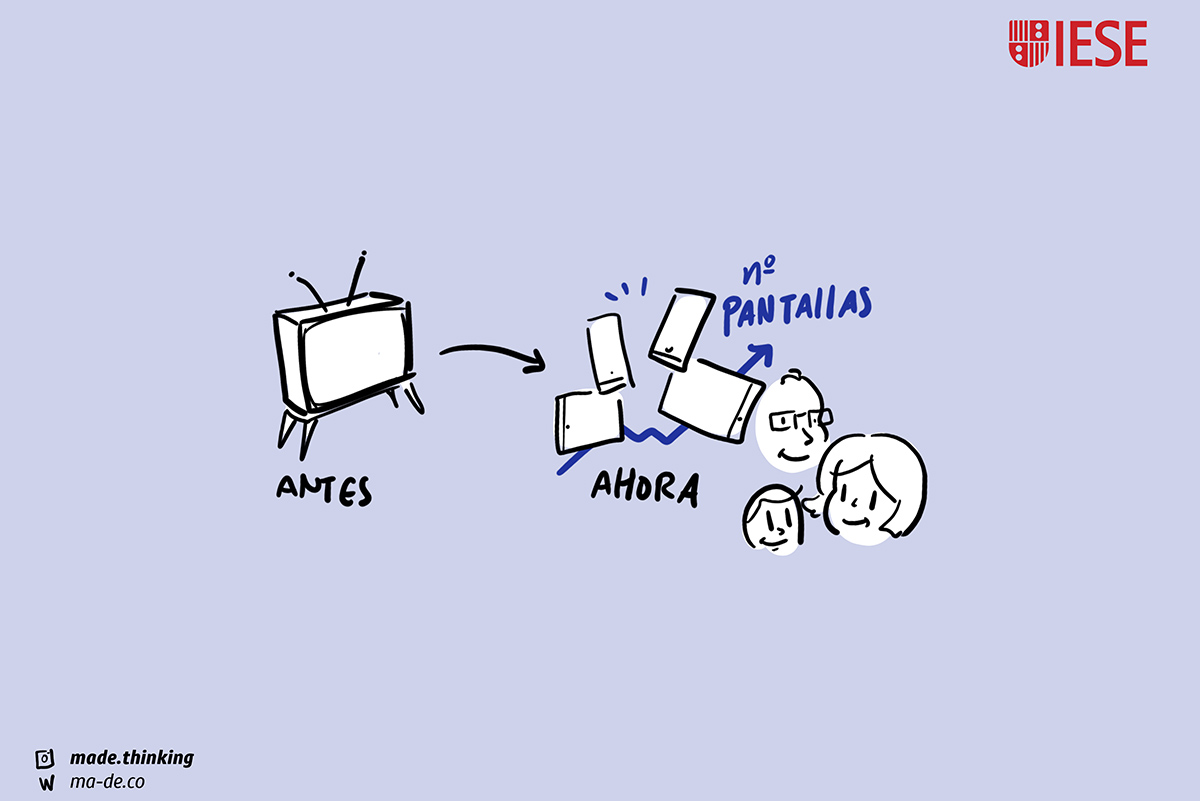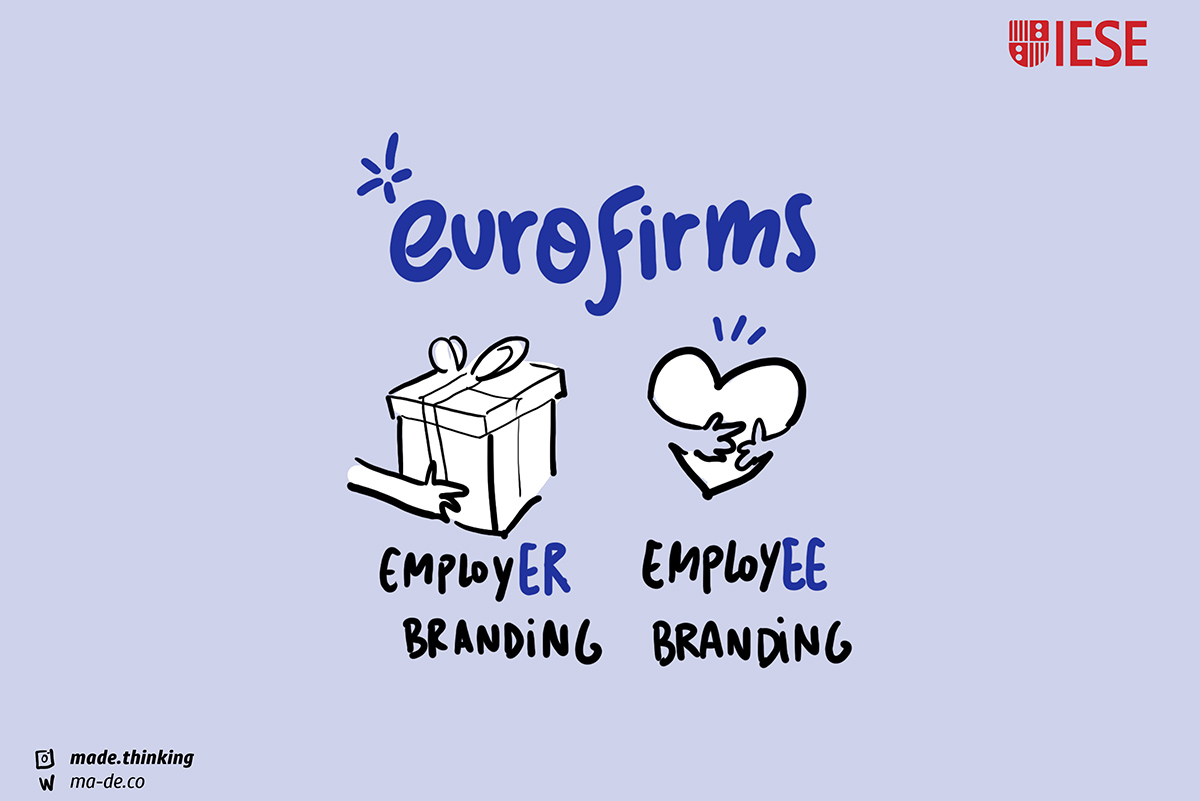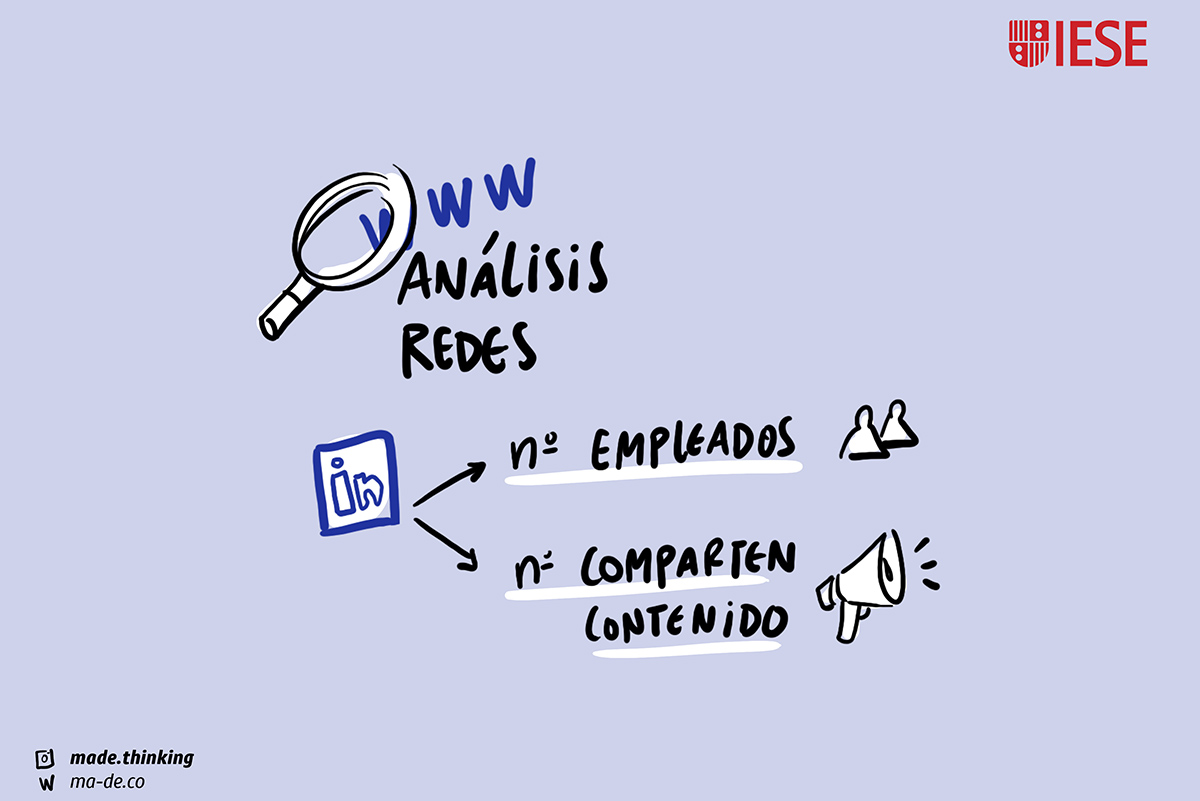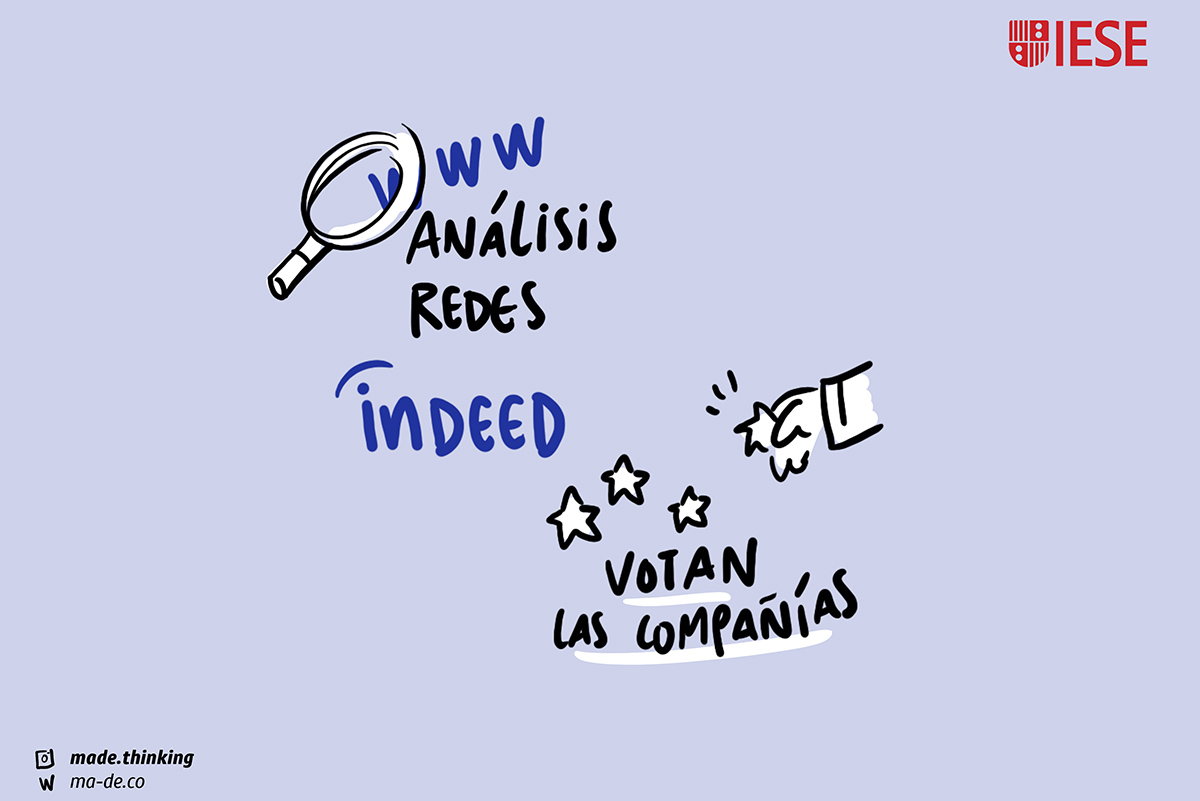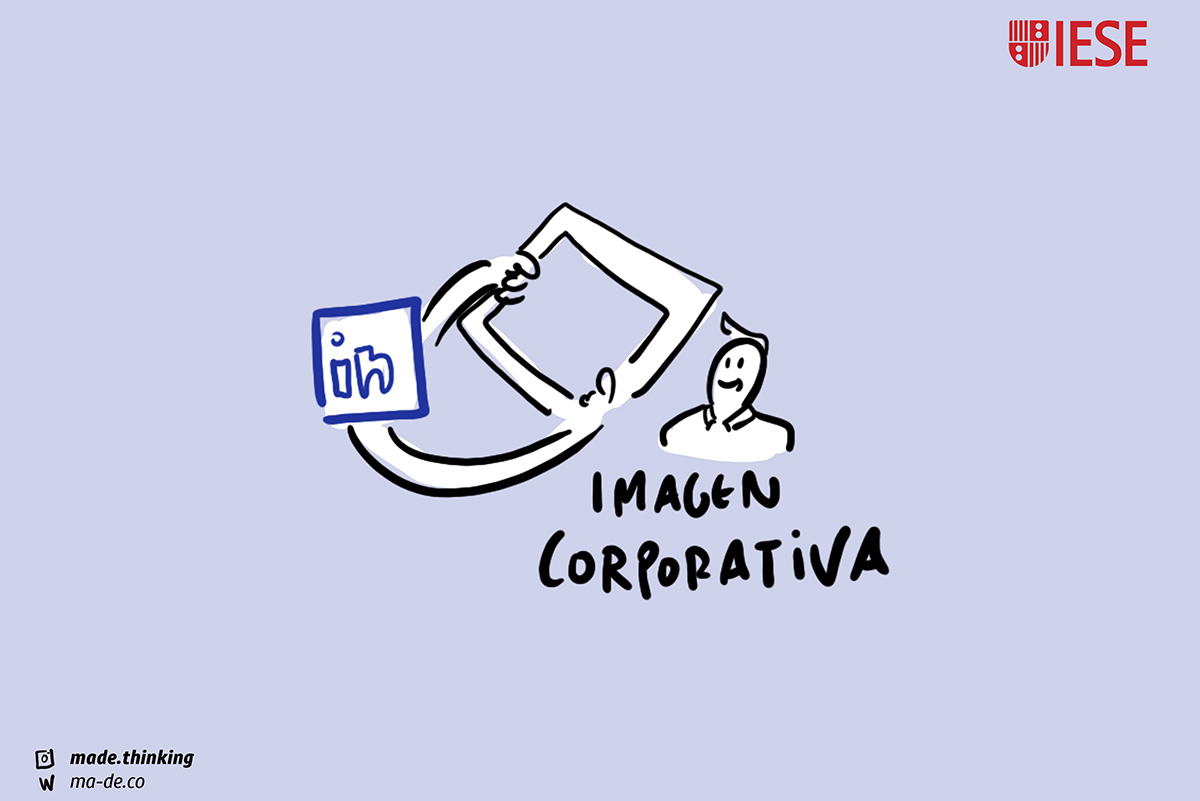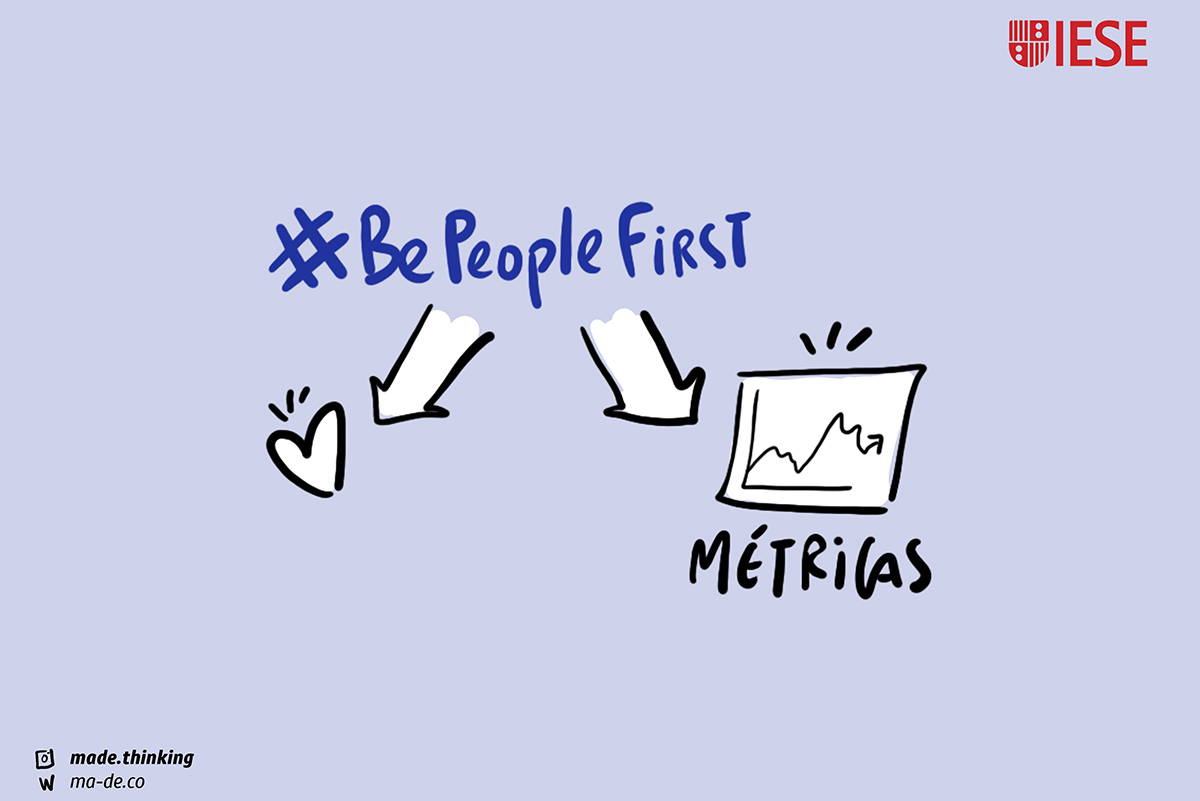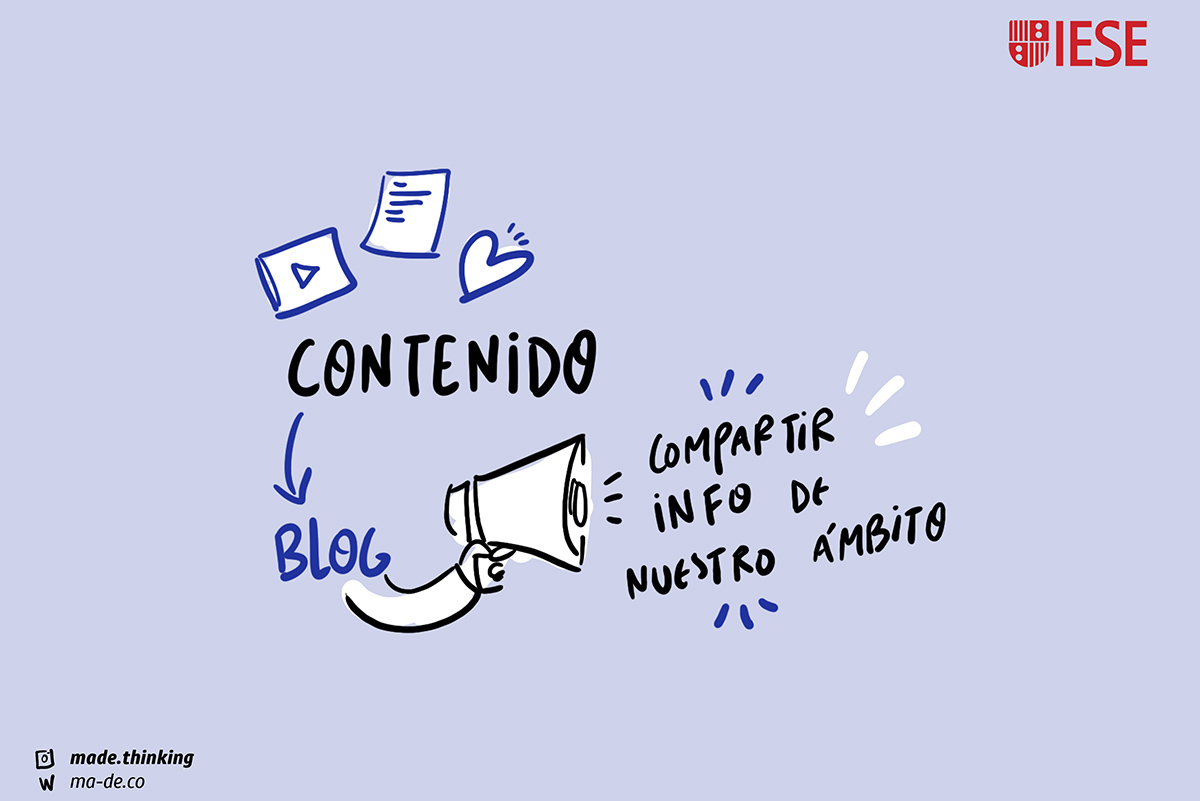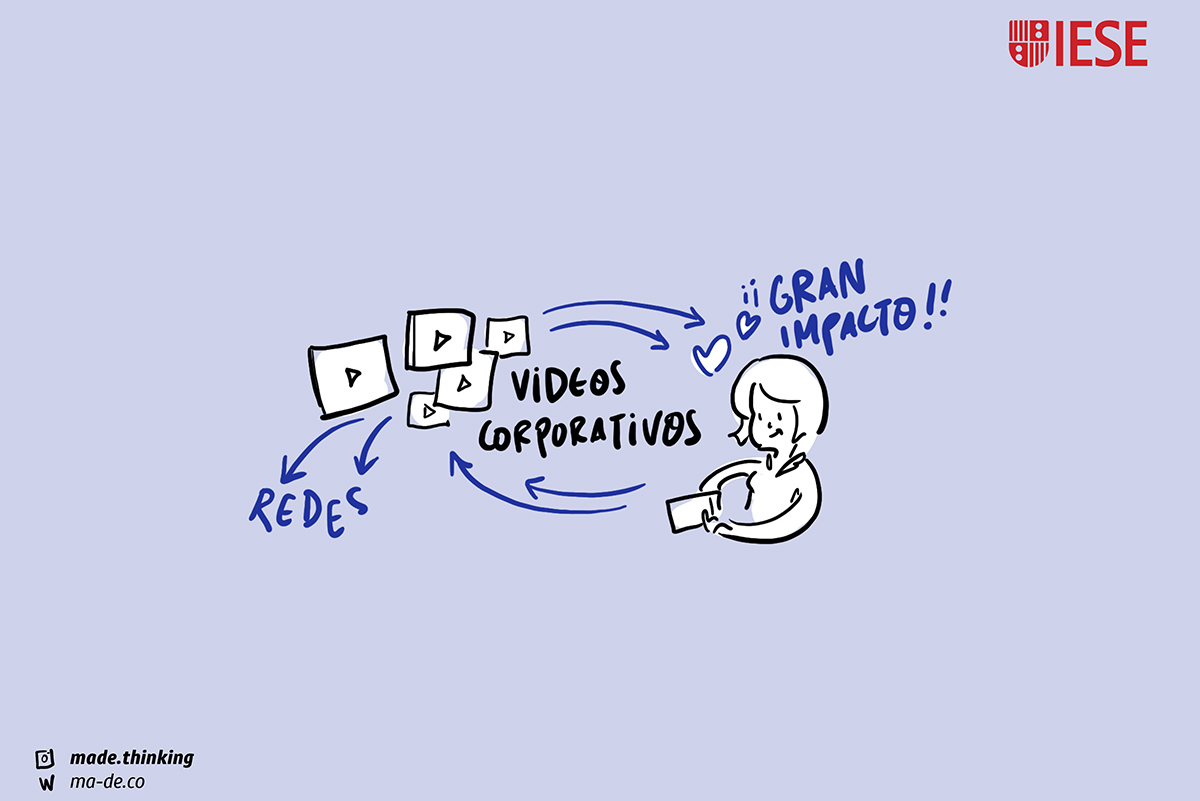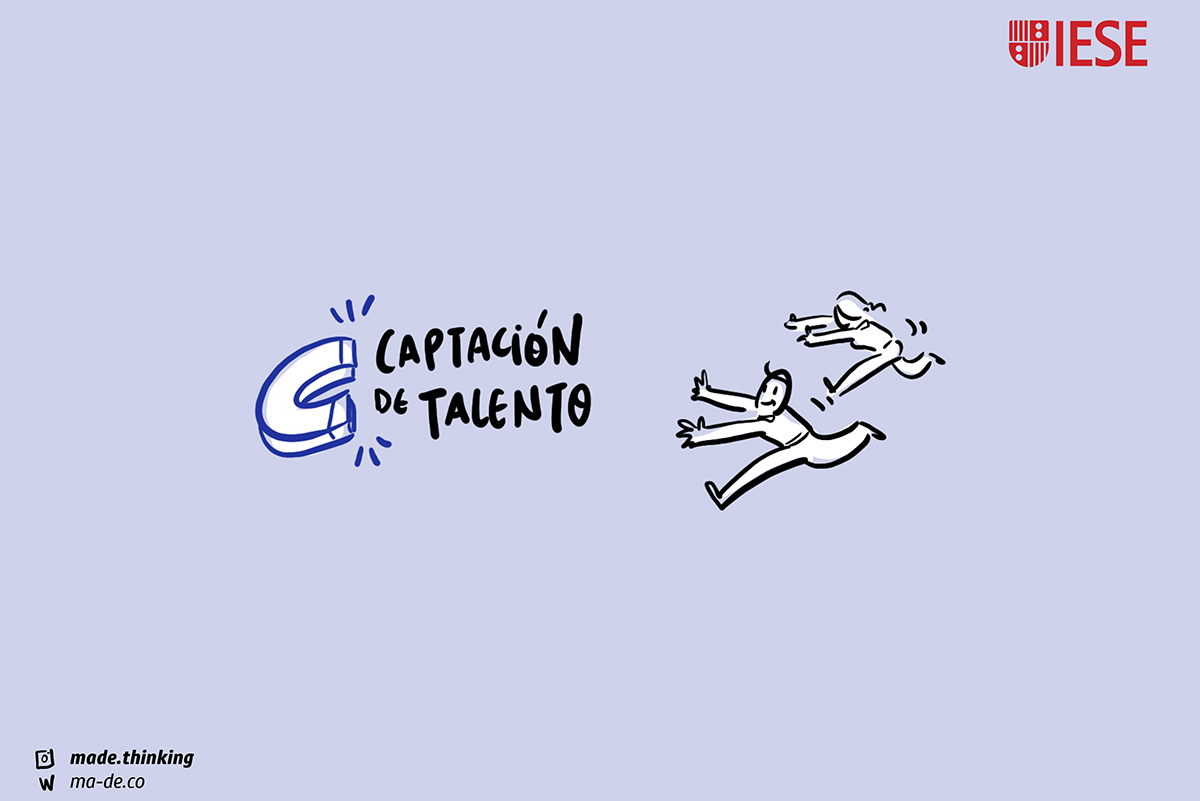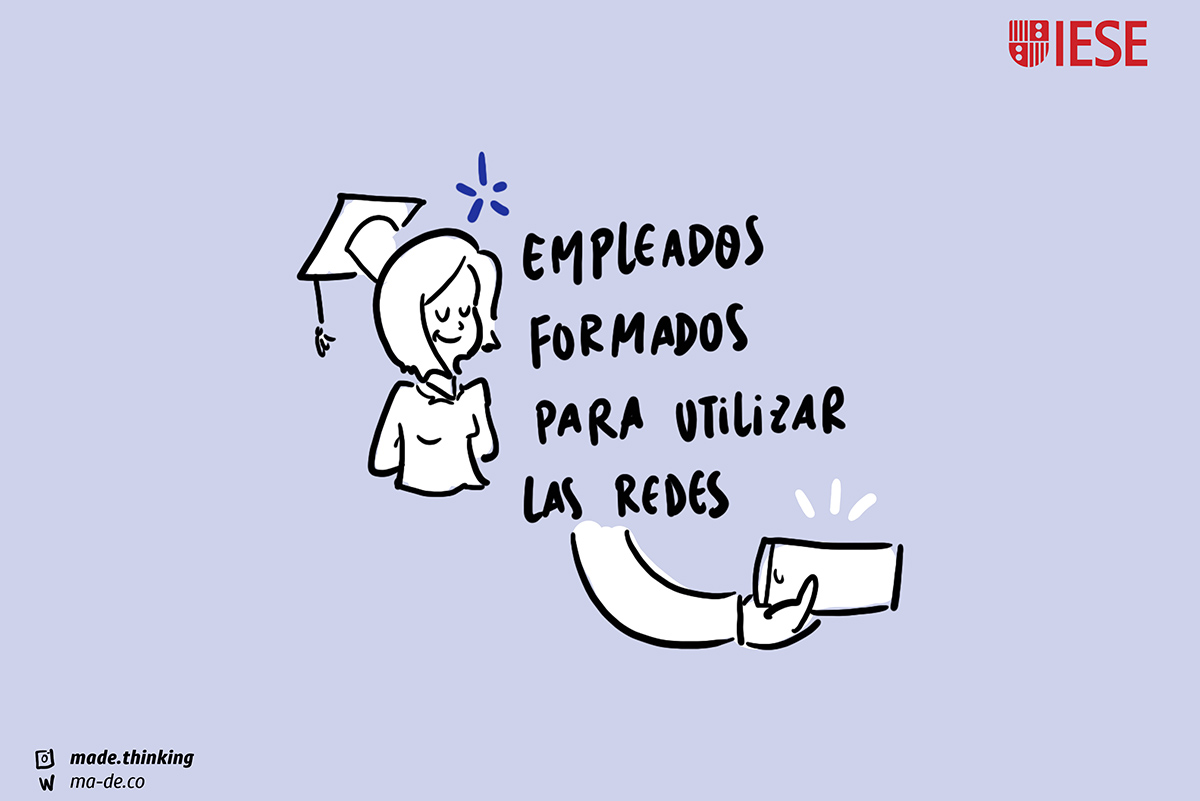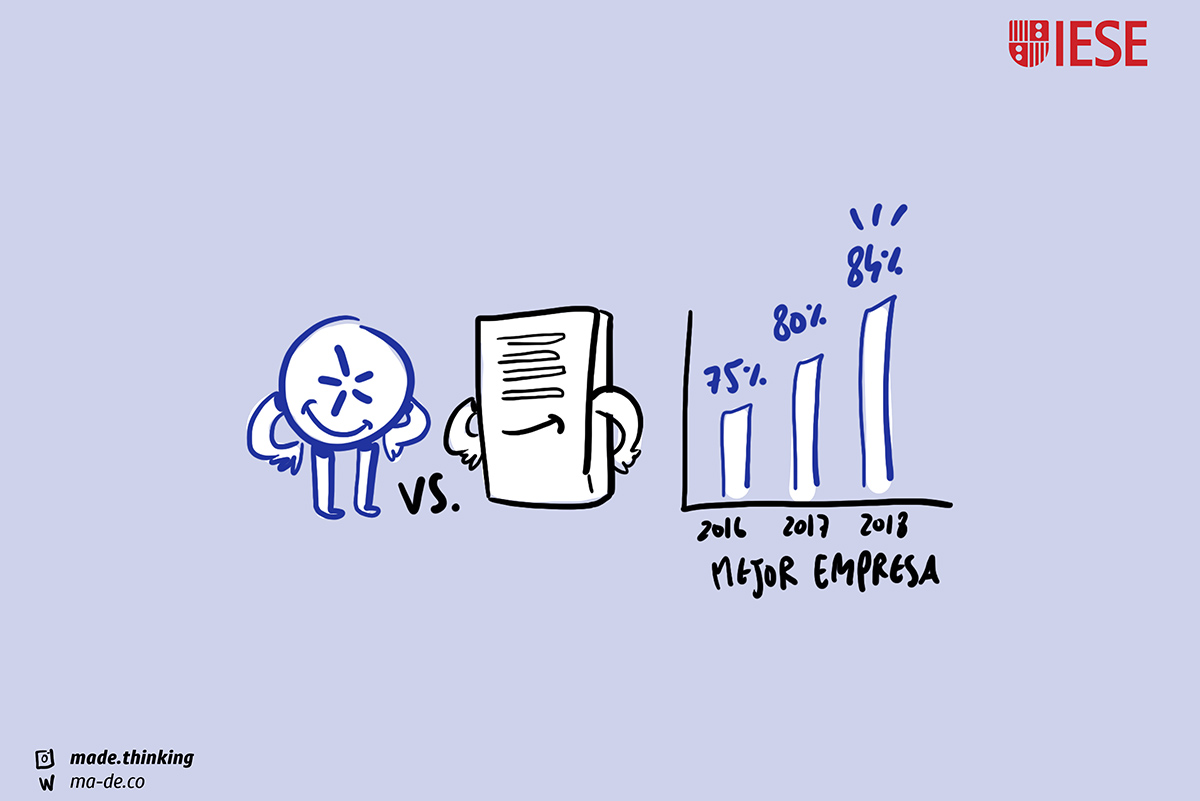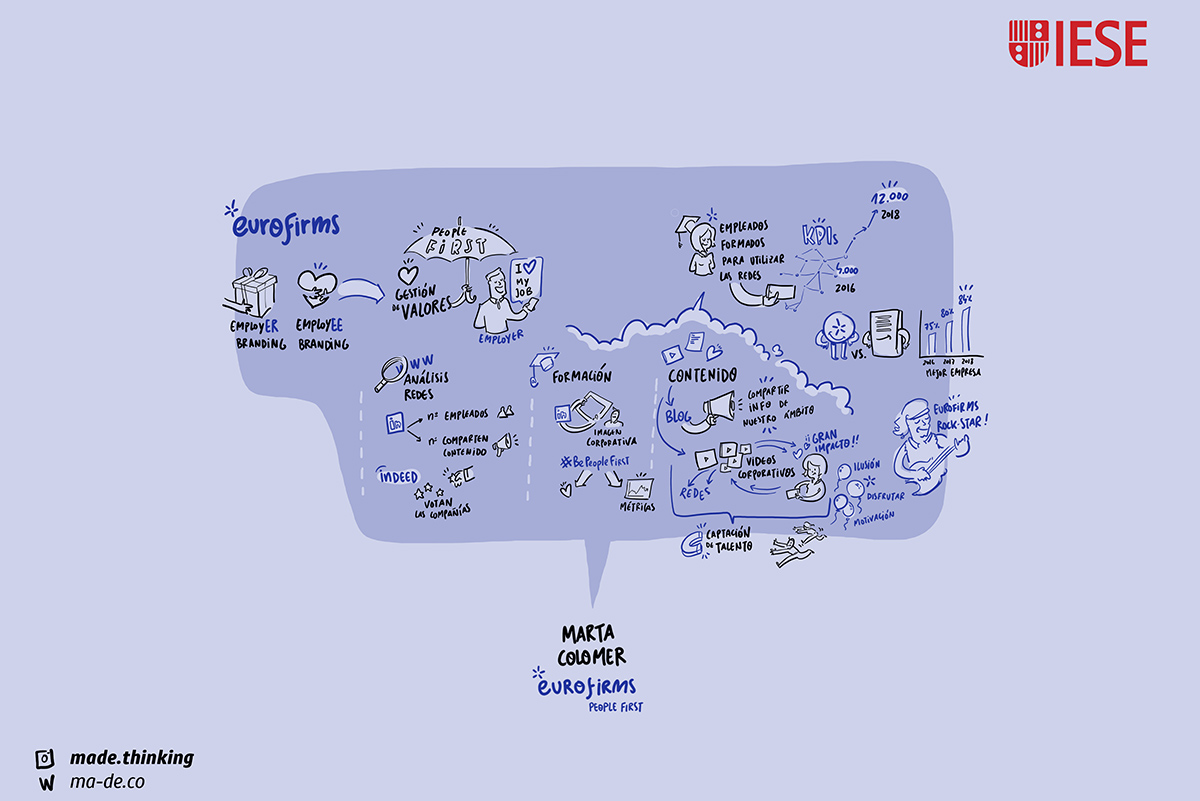Lectures
In a complex, fast paced, volatile World, leaders have to constantly be in the lookout for knowledge.
Barcelona:
26 de Julio 2022
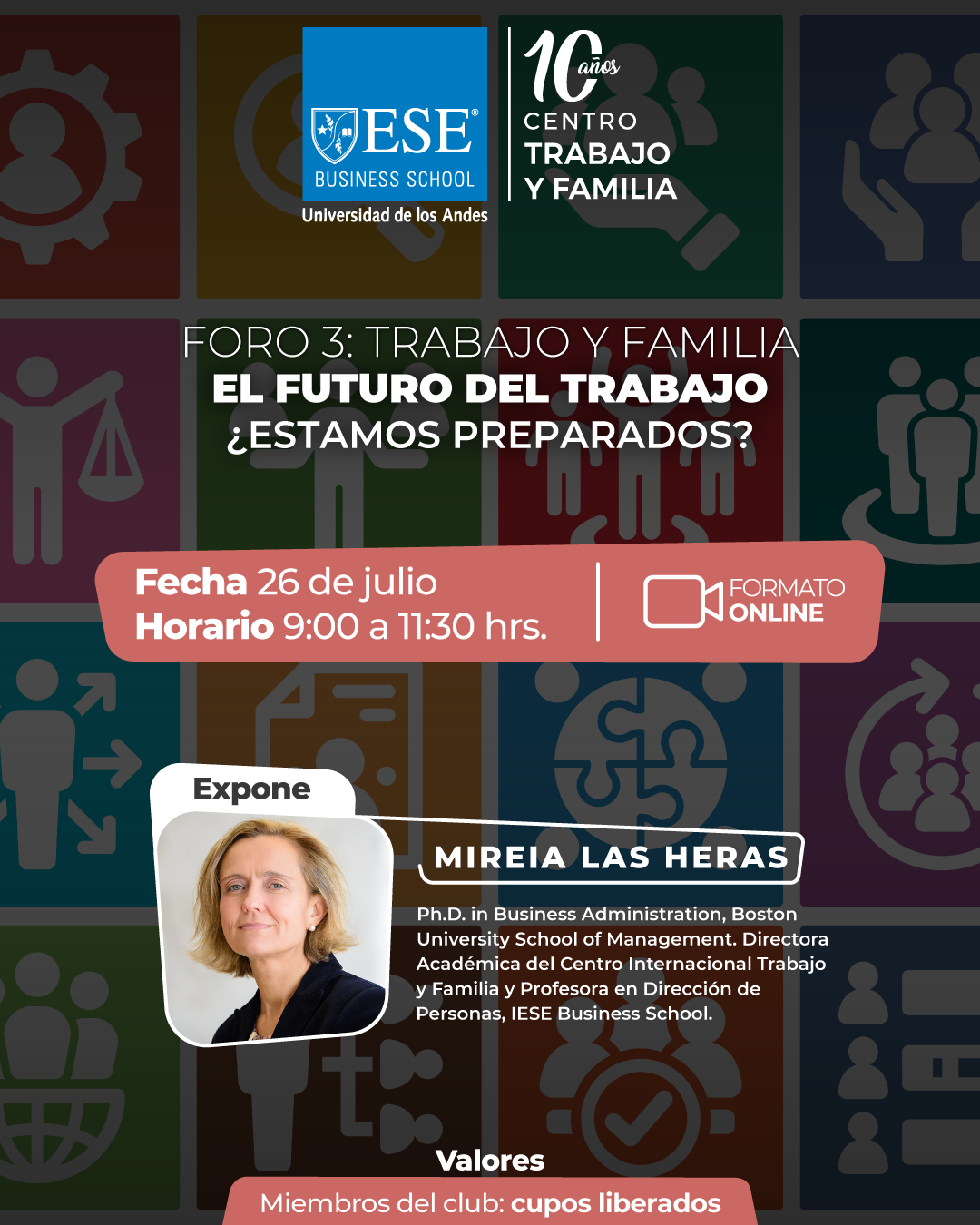
Chile:
24 de Agosto 2021
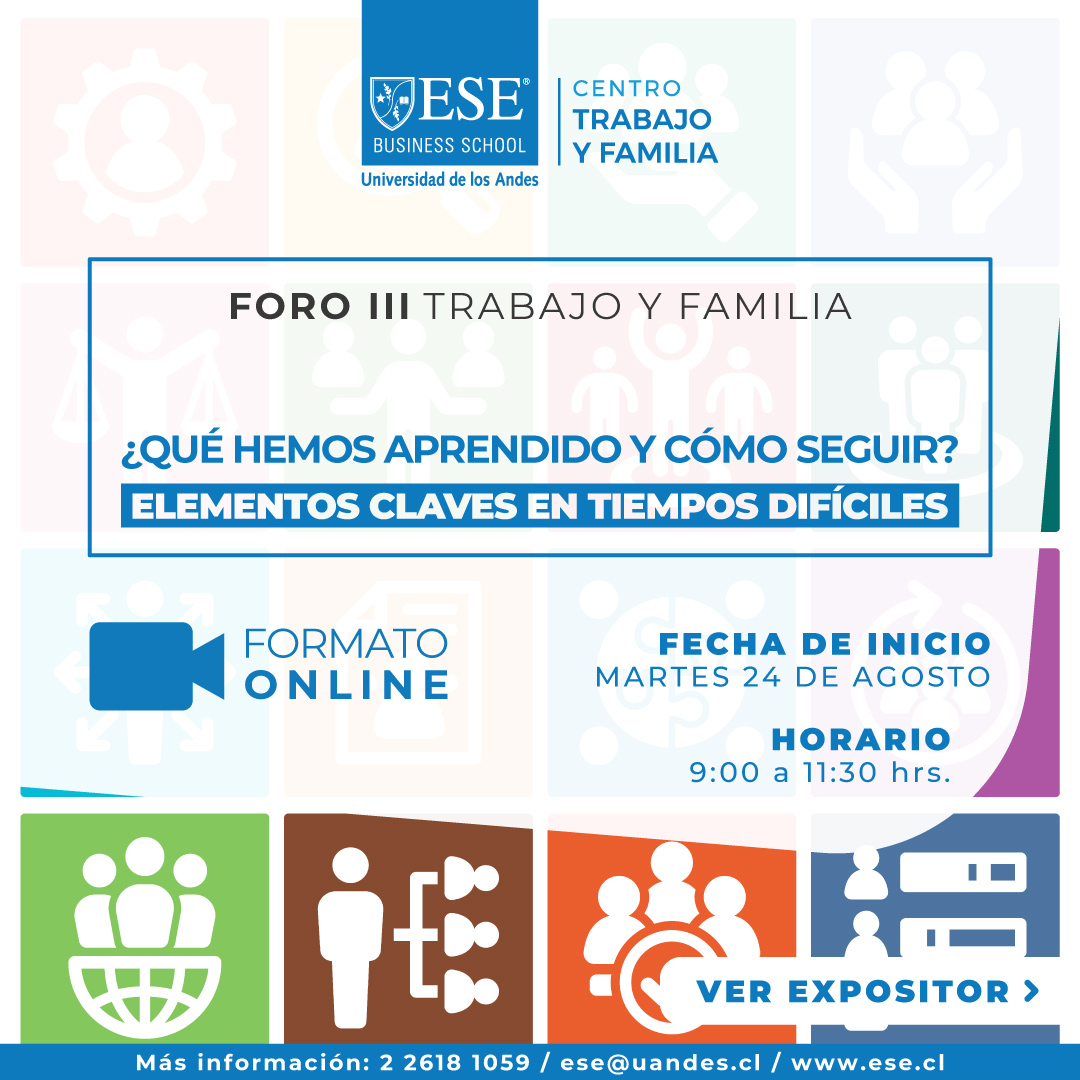
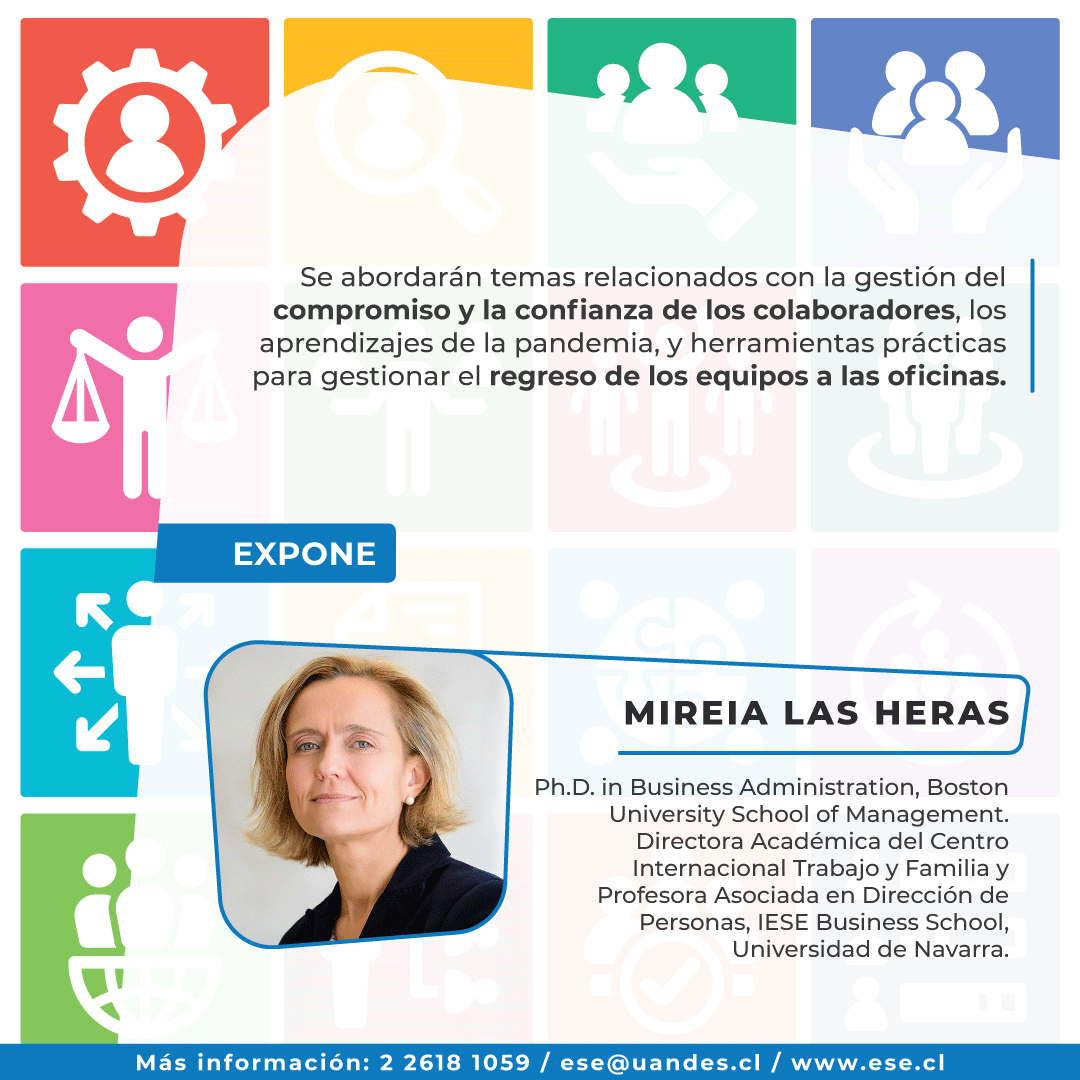
Mexico:
2 de Junio 2021
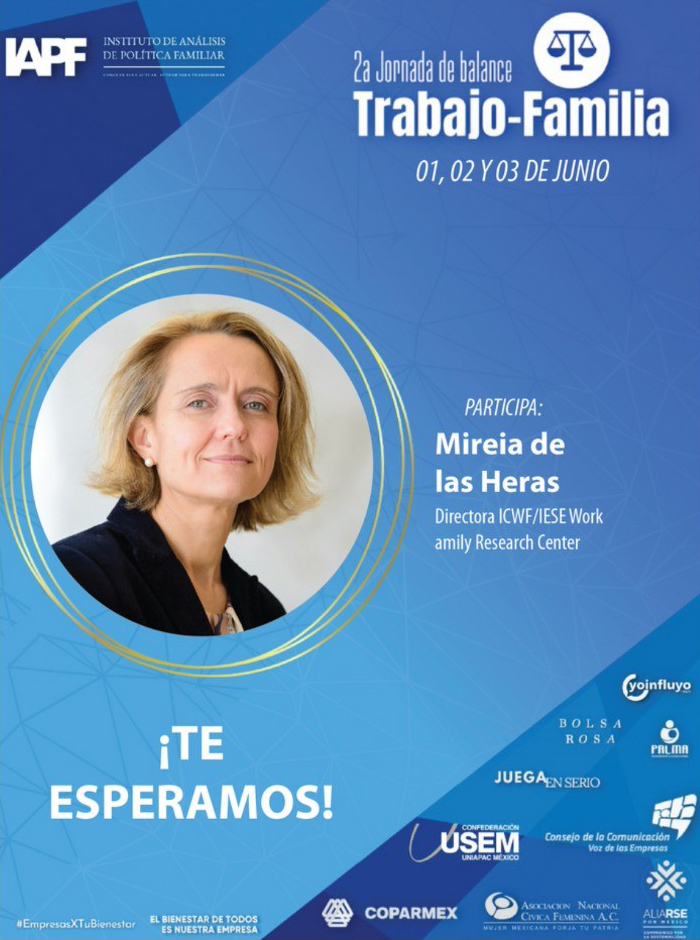
Mujeres y Trabajo en la era COVID
Palau Macaya – Barcelona
Miércoles 9 de Junio de 2021
La pandemia no solo ha revolucionado nuestras vidas, también ha provocado una crisis económica que ha golpeado en mayor medida a la población más vulnerable: las mujeres. Aumentos de la tasa de paro, dificultad de recuperación económica... ¿Puede este confinamiento llegar a suponer una regresión en el empleo femenino sin precedentes? ¿Qué medidas debemos tomar al respecto? ¿Vuelven a ser la casa y la familia “obligación” de las mujeres?
A cargo de: Mireia Las Heras, Sònia Parella, doctora en Sociologia, experta en mujer y migraciones.
Moderadora: Gemma Martínez, directora de El Periódico de Catalunya
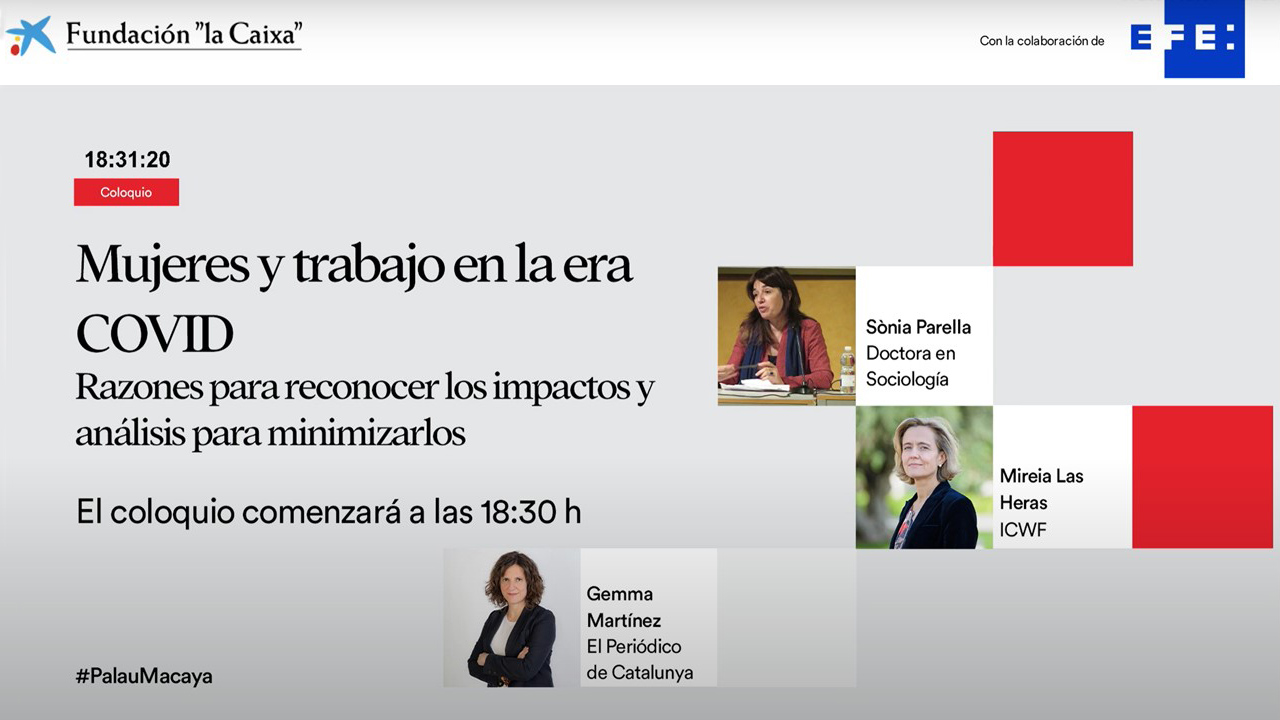
Women in management positions: how do we overcome the "glass ceiling"? organized by Goethe institute, Spain
May 6th 2021
What role do the government framework play in promoting the presence of women in management positions? What are the experiences with women quotas? How does the presence of women in management positions in Spain and Germany look like in an EU comparison? Which economic and employment sectors have a pioneering role in the presence of women at management level? How big is the gender pay gap between male and female executives in different industries?
What external invisible barriers - the famous "glass ceiling" - still exist in women's careers? Are there innovative models that also enable part-time management or the distribution of management tasks? How are industries and work areas changing in which the proportion of women is increasing?
Is there a female leadership style? If so, what is it? Do women deal differently with competition in the workplace, also among women? What models, best practices and channels are there to promote young women?
How would the existing corporate culture have to change so that more women get into management positions and this enables a better work-life balance overall and becomes more humane and socially more sustainable?
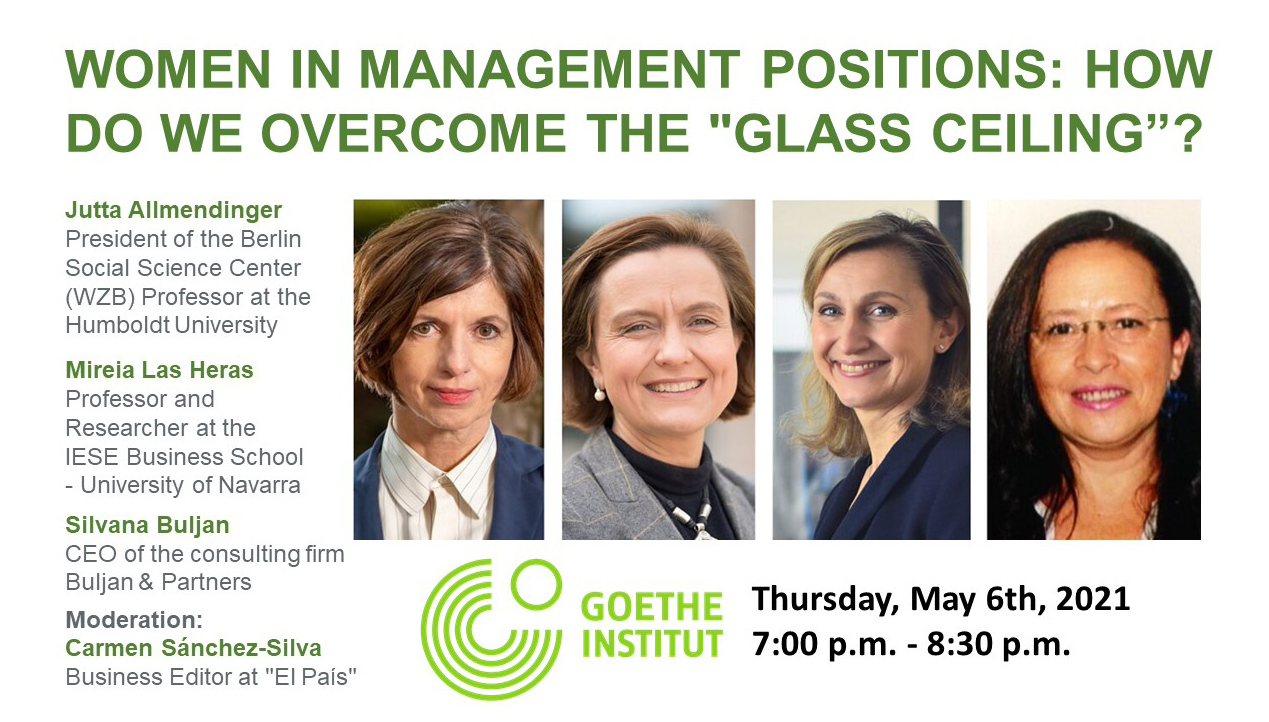
Círculo ecuestre: “El Rol de la Mujer tras la Pandemia”
March 8th 2021
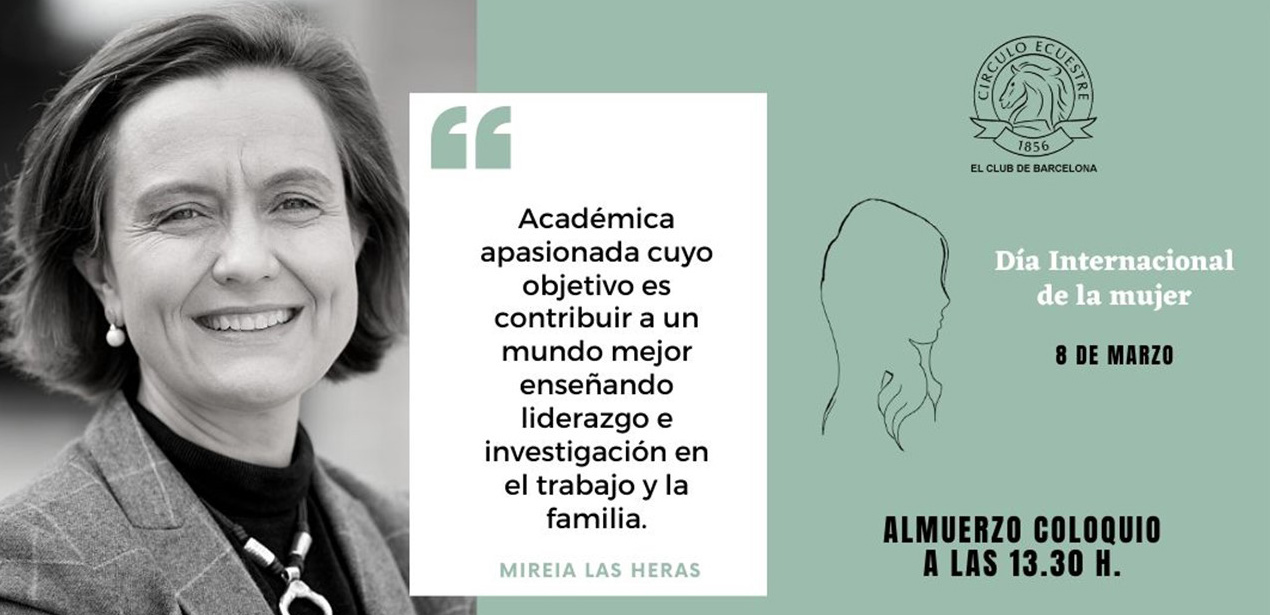
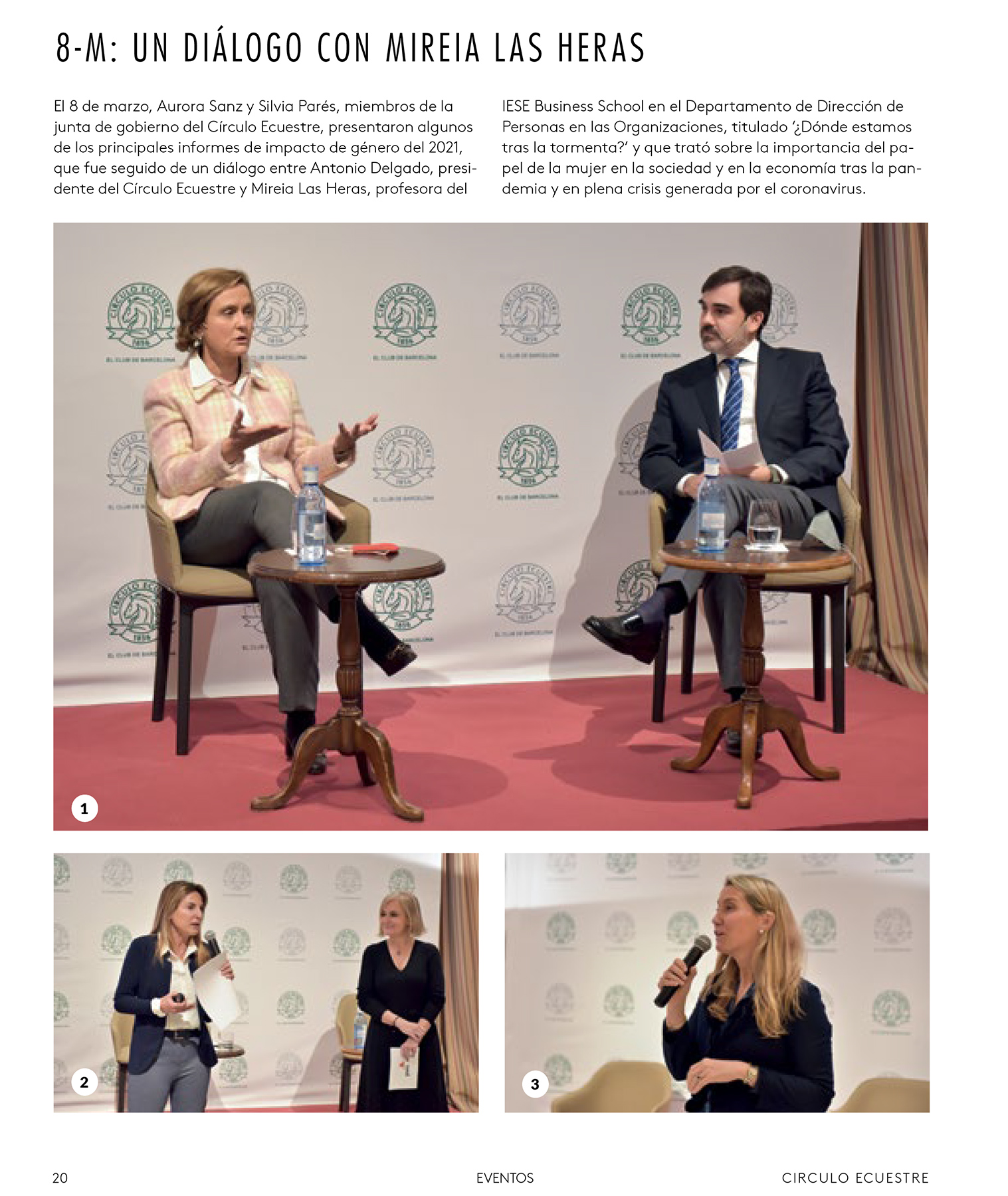
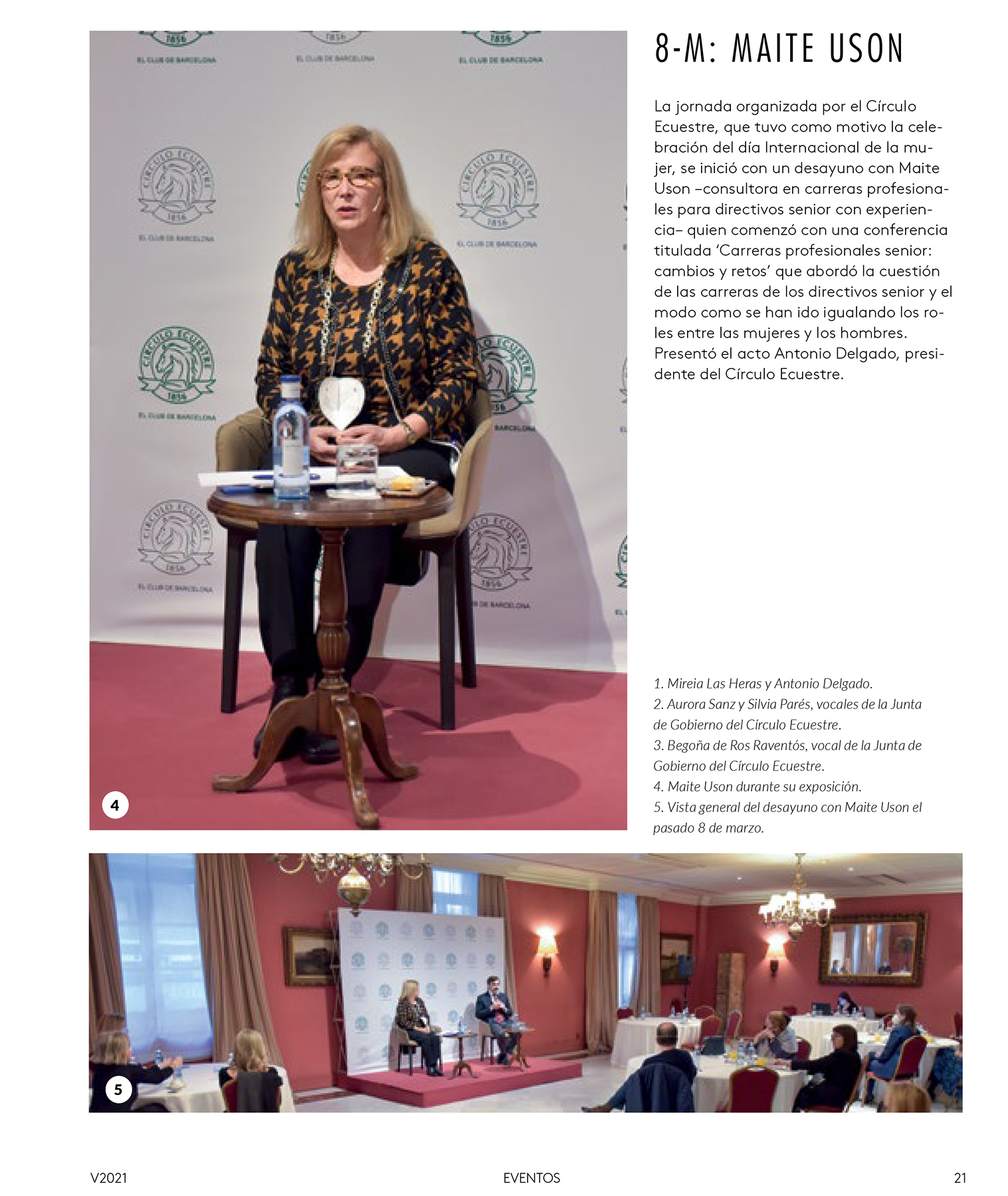
Universidad de Navarra, Empresa y Humanismo
March 4th 2021
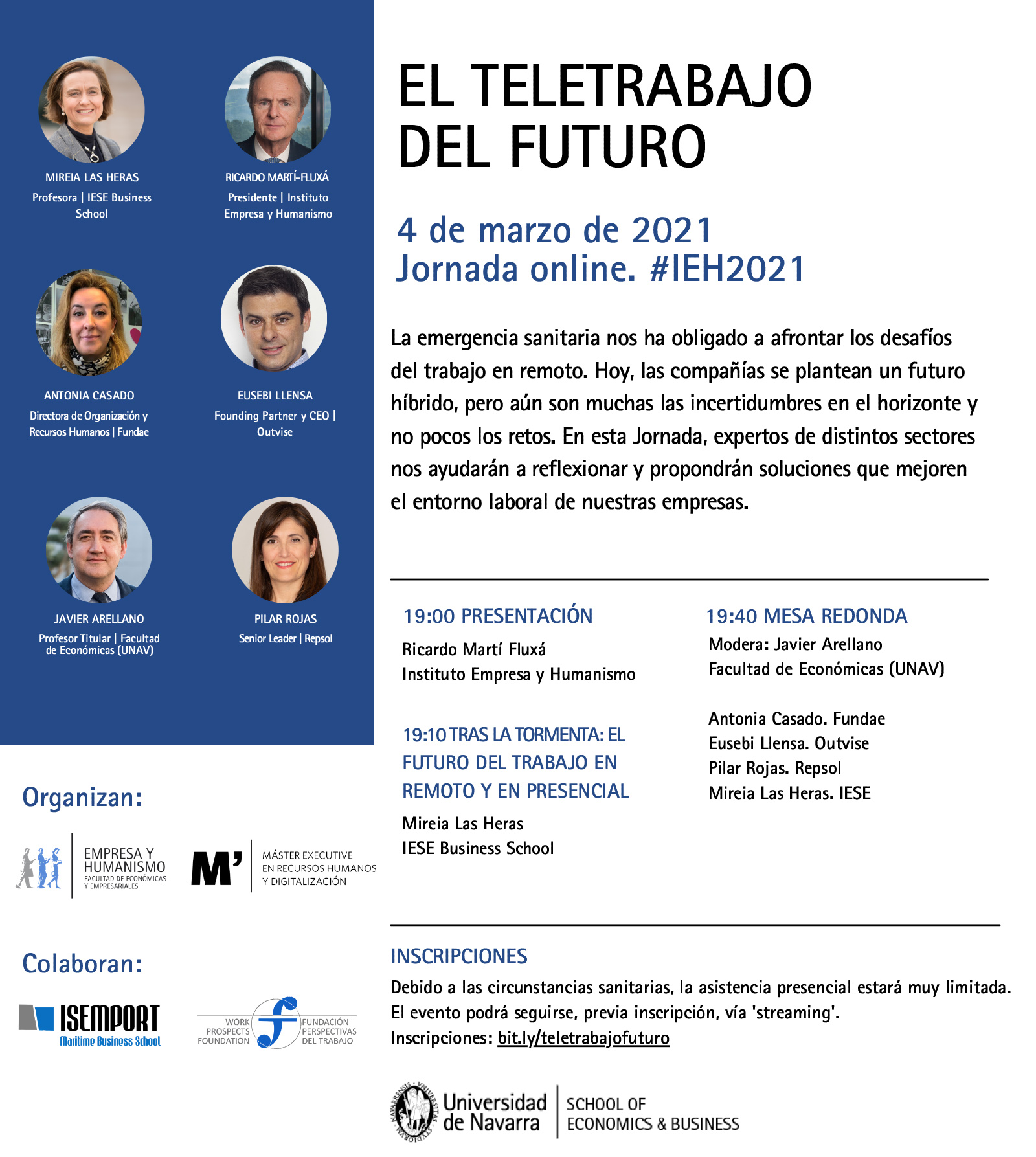
Balance for all
March 5th 2021
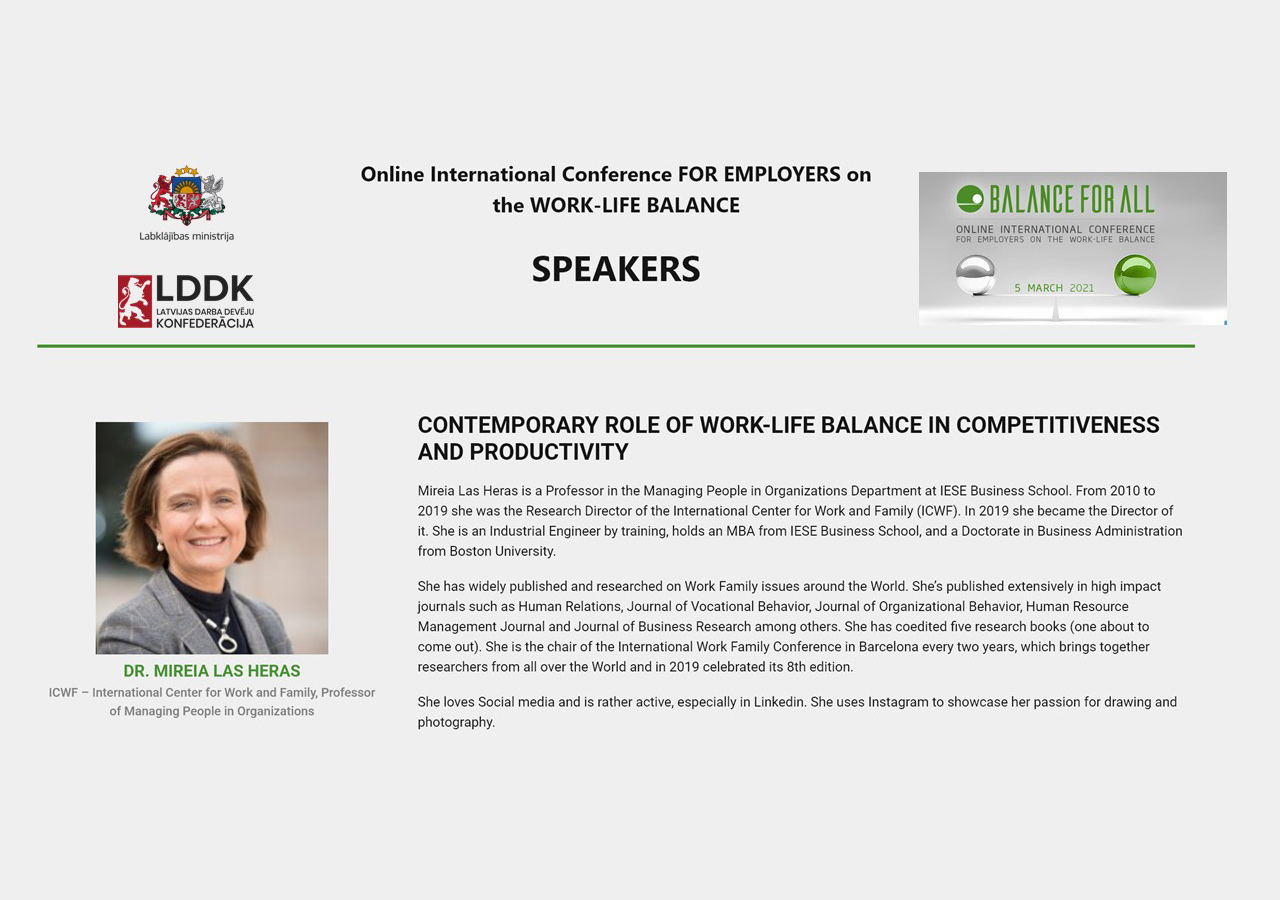
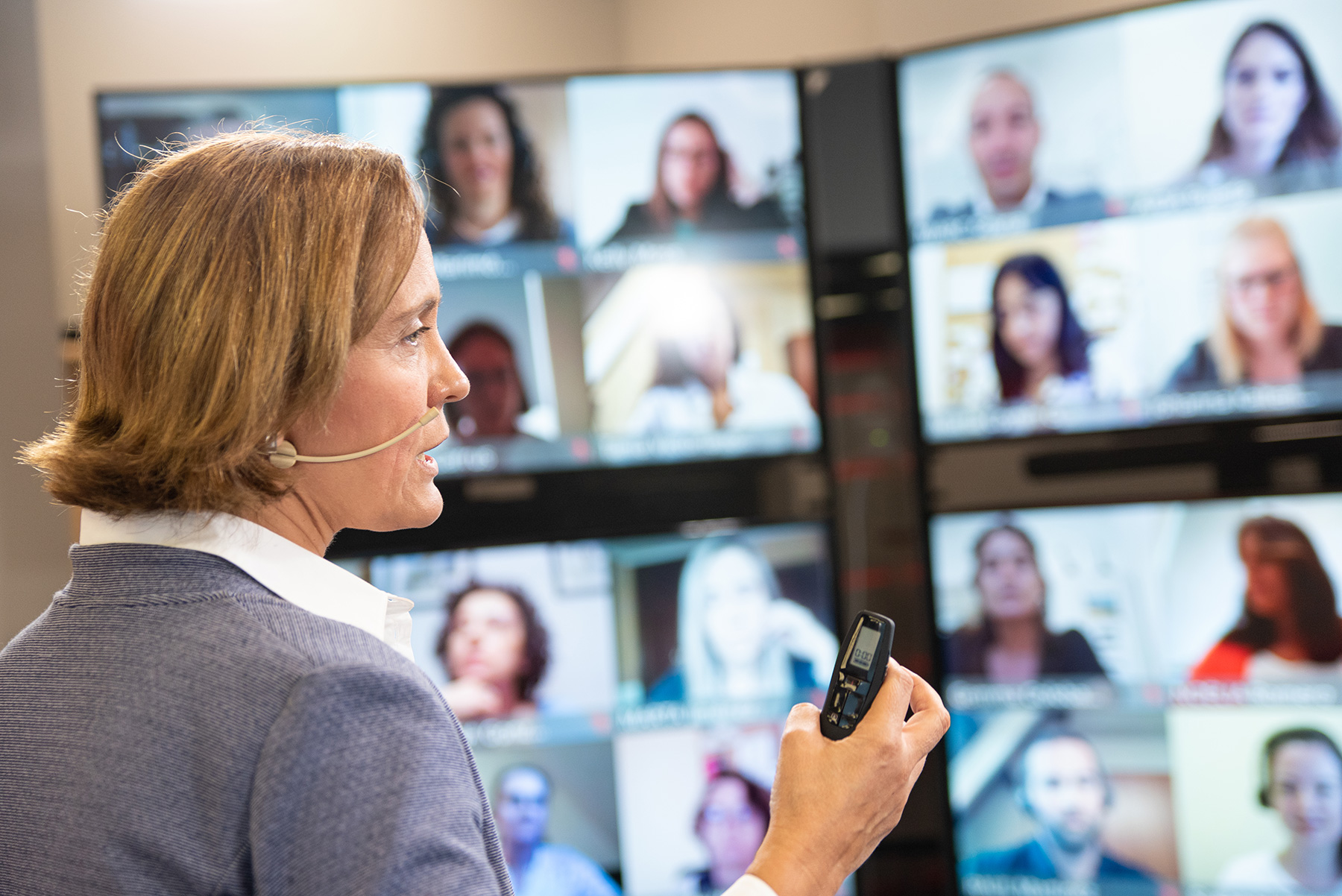
Keys to work remotely during the pandemics (COVID-19)
In this lecture, I shared my learning from research studies during the Pandemics in 2020. Four out of ten Spaniards find remote work very stressful amid this public health emergency, according to the preliminary results of a study led by Mireia Las Heras, research director of the International Center for Work and Family at IESE.
Initial findings from a survey of more than 2750 people working in Spain indicate that "feeling supported" by their boss positively affects employees' commitment levels and reduces their feelings of stress and anxiety. However, the reality on the ground is that only 15% of respondents feel highly supported by their supervisors, while 60% report moderate support and 25% complain of very little support.
In this survey, only 11% of telecommuters say they are at home alone. And taking care of dependents is the reality for 40% of women and 21% of men in the study. As such, teleworking is complicated by the daily needs of also managing a "restaurant," a "school" or even a "hospital" at home.
Best practices for managing yourself
Las Heras offers four keys to work better in these extraordinary circumstances:
- Set up physical and psychological boundaries. Set aside a space and working hours and communicate them to others to help protect them. Having these boundaries will also help you disconnect once the day's work is done.
- Create routines. Make a list of daily as well as longer-term goals, and try to save time by thinking creatively.
- Start working early. Try to find moments of silence to work without interruptions. For many that means getting to work early, but follow your own biorhythm: that may mean working later at night.
- Maintain fluid communication. Take time to connect with the people in your household, with your coworkers, as well as with your friends and family.






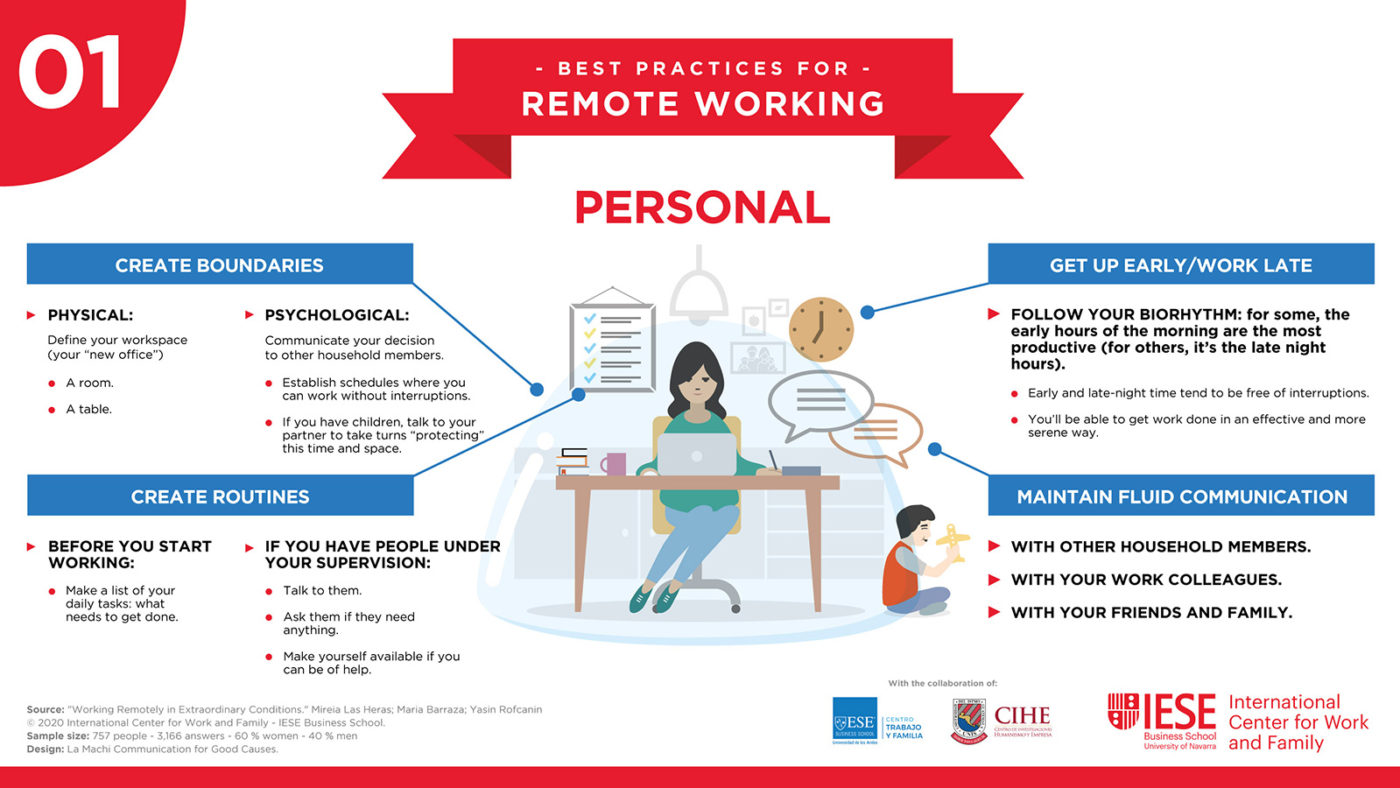
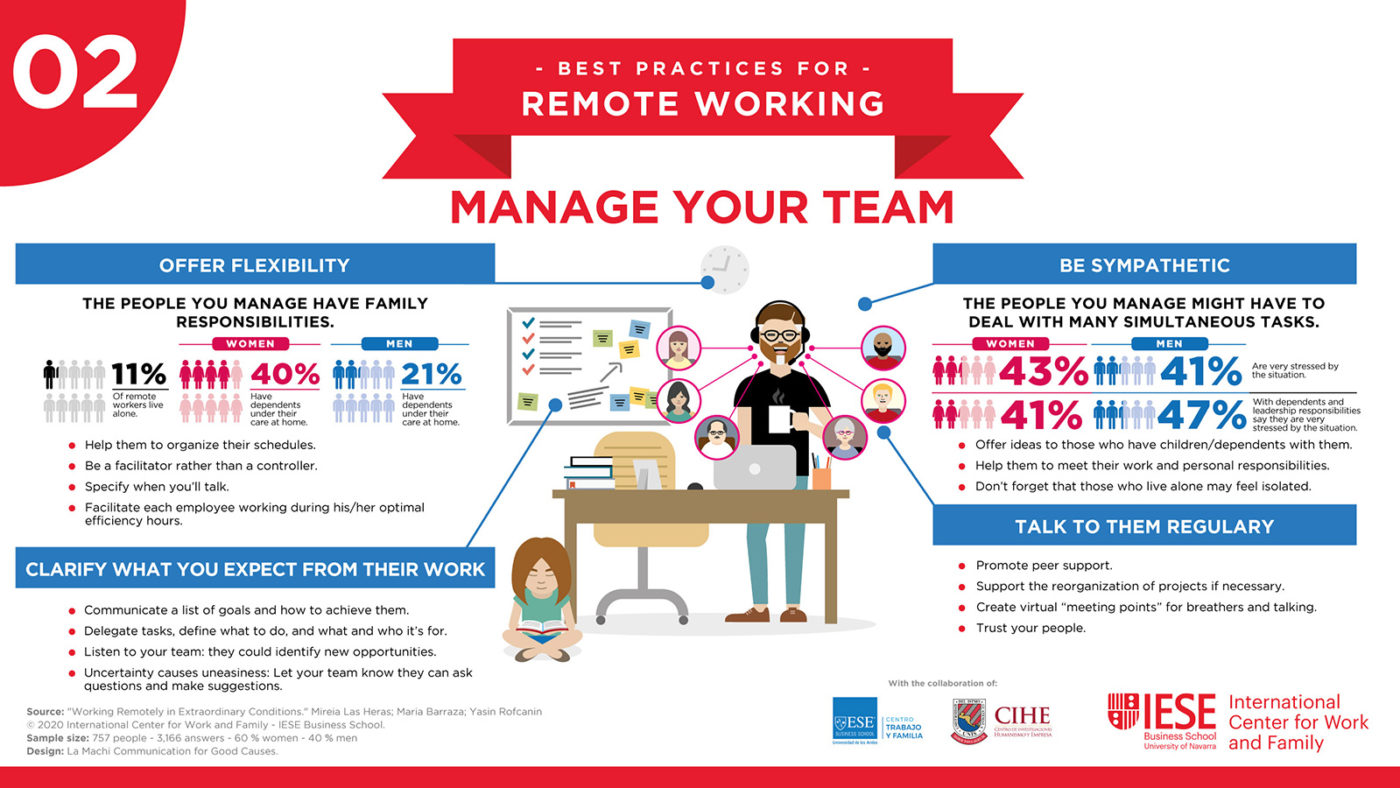
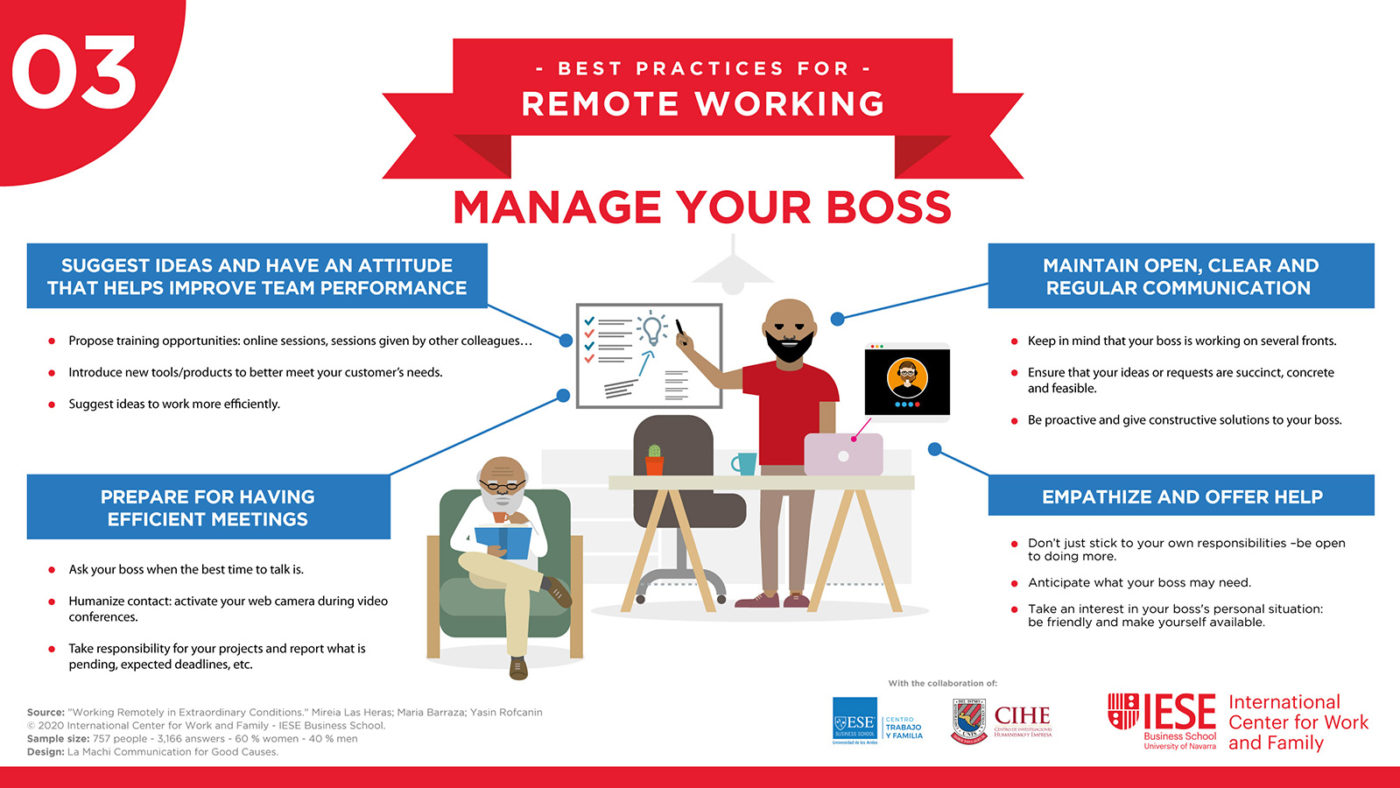
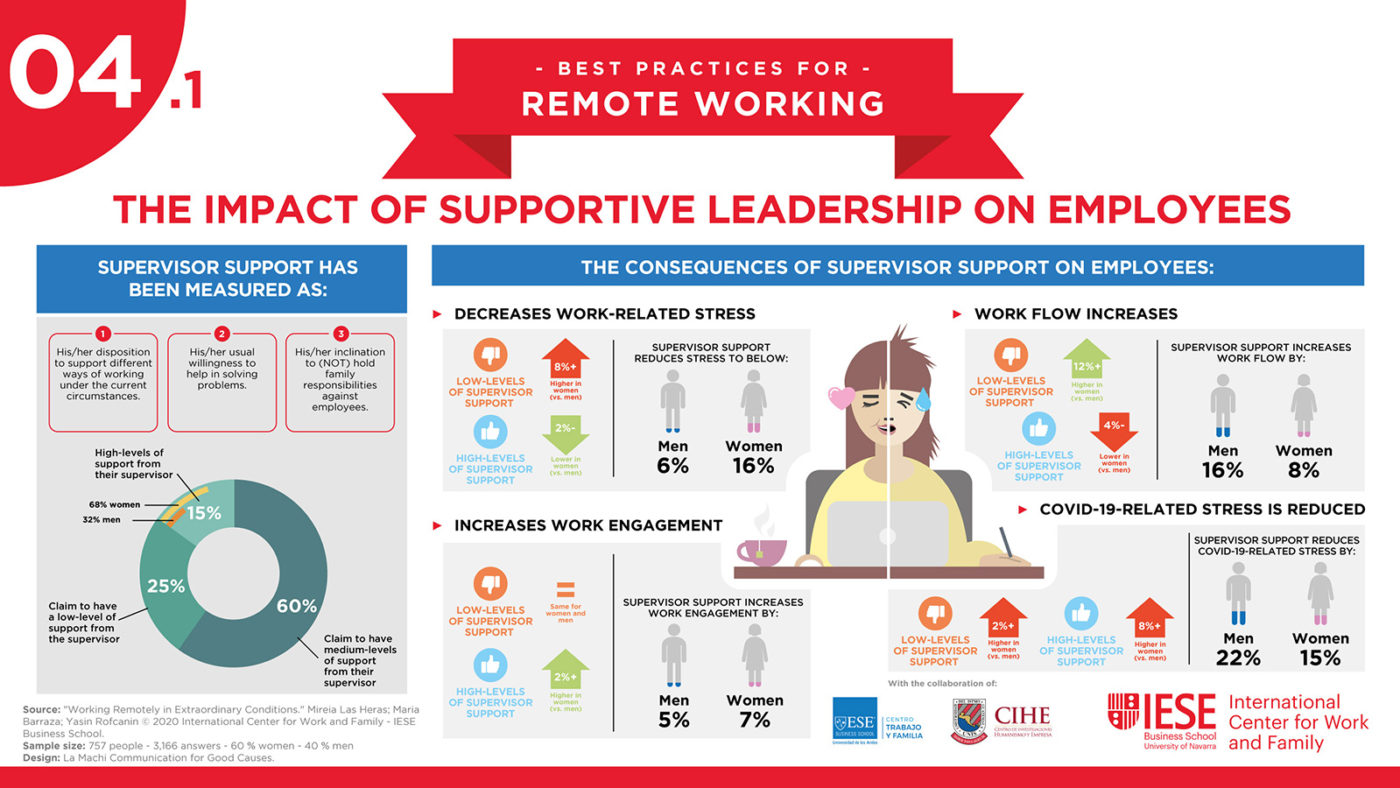
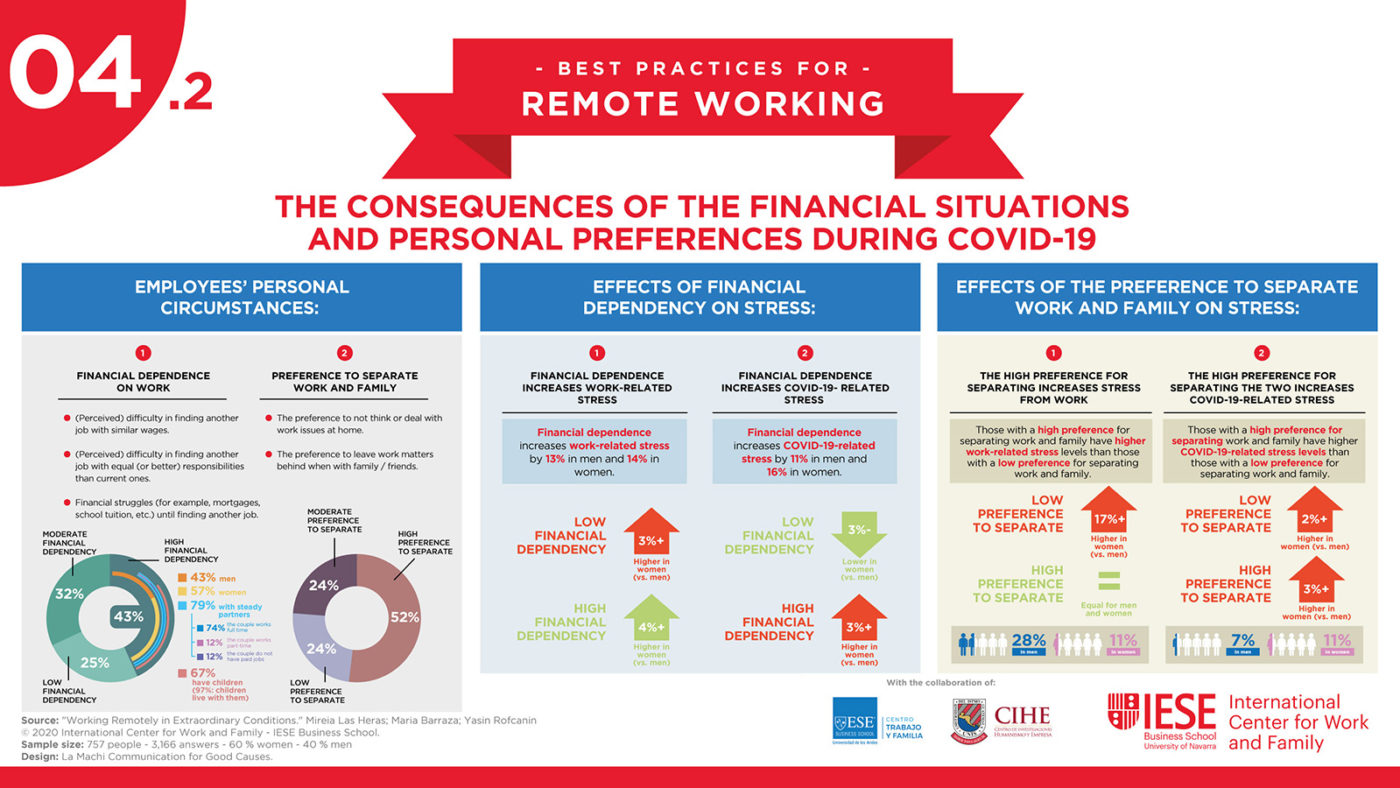
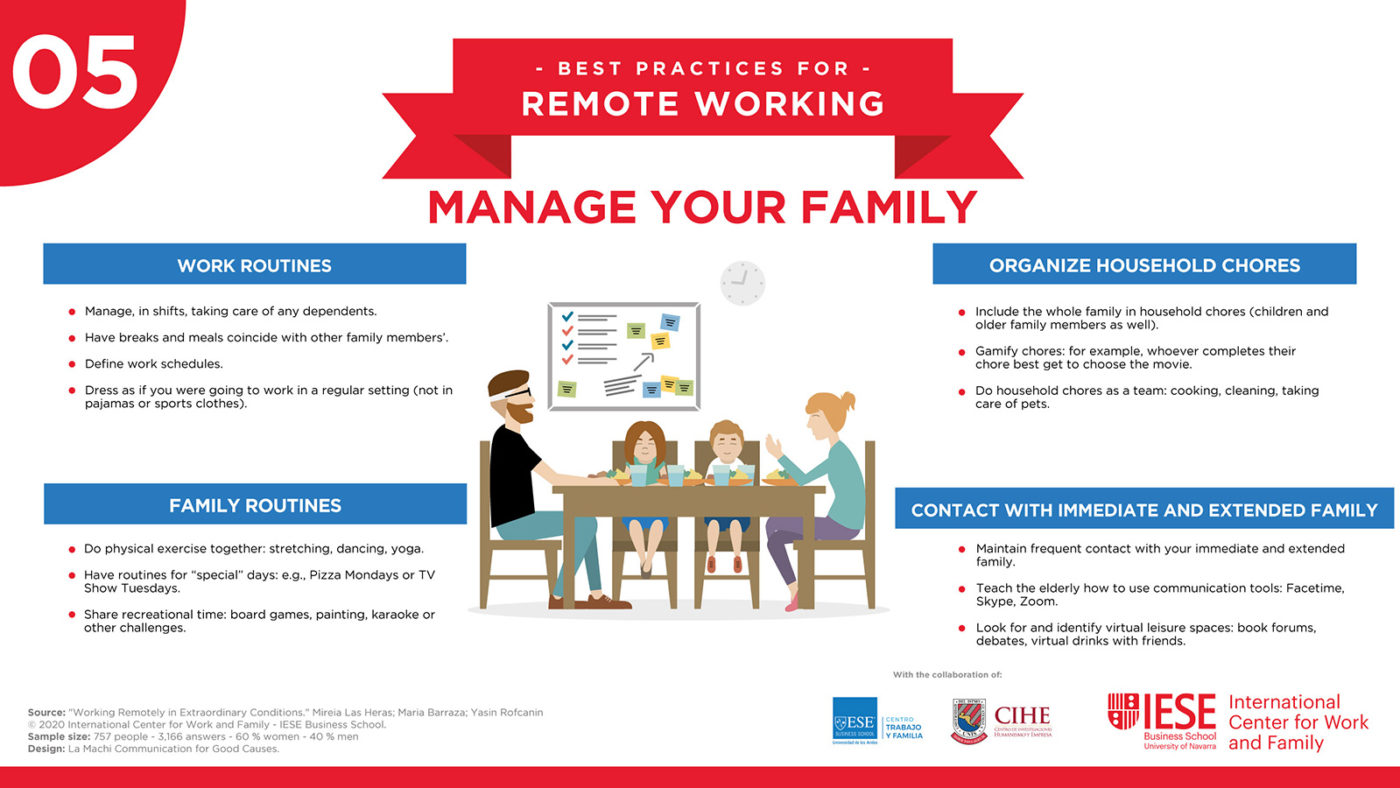
Lecture: Employer Branding through Social Media
Together with Alex Lopex and Miguel Angel Trabado
The future of work is here. Reality gets amplified through social media. Technology allows for transparency and openness. Changes are accelerated. New ecosystems appear. Old services and devices reappear. The workforce is more diverse. Women are more and more prepared and present in the workplace. And robotization is changing the playfield in which works develops.
All these trends are affecting our societies and the way we attract and retain talent. Organizations have to be ready and to use their employees to develop newcomers, to attract potential talent, and to be ambassadors. And it all requires a long term strategy.
Using Virtual Reality and Augmented Reality, this session helped participants to think upon these issues with the aim that they make plans related to their own career and development.
Lecture: Leaders’ identity in Social Media: keys to make a good use of LinkedIn in the digital era
Together with Alex Lopez
All leaders have to constantly learn, share, and develop knowledge, if they aim to achieved their professional goals. During the session, we presented tools to do so, and specially focused on Linkedin as a platform that enables executives to develop professionally. We also talked about personal branding as well as employer branding.
Lecture: Excellence and values in Organizations (“Excelencia y Valores. Claves para la sostenibilidad social y empresarial
Together with Miquel Jordà
An excellent organization is that which generates economic wealth for investors, wellbeing for employees, and positive externalities. It is only then that an organization is considered excellent, when its very existence is positive for all stakeholders. In this session we presented the elements that enable a company be excellent, that can be summarized as:
- Pay fairly. A salary indicates, among other things, to what extent a company values, respects and trusts its employees and the work they do. It is also a reflection of values.
- Motivate and provide learning opportunities. People do not just work for money, but to develop their skills and resources. It is important to generate a stimulating and participatory work environment and leadership styles that promote development.
- Reduce stressors and promote health. Excessive working hours, reduced sleep, a lack of downtime and constant connection all have a huge cost for society, workers and the company.
- Strengthen identification with the company's purpose and mission. Being in tune with company decisions, policies and values increases worker commitment and motivation.
- Contribute to society. A company's social value is of growing importance. Younger generations want to contribute to the greater good, and this is amplified by the easy access and spread of information.

We live in a fast paced world, in which companies and society are experiencing a deep digital transformation. This means that organizations need talent that embraces such transformation and contributes to adding value to services and products.
Concept such as Disruptive Innovation, Agility, Fluid Organizations, Customer Centricity, Design Thinking or Inbound Recruting are all over. Yet, the secret to attract and retain remains the same: people. That is: employees.
This session was eminently practical, yet guided by deep theoretical knowledge. It was based on cases in which our lecturers have been involved in making crucial decisions that have led to a successful end, yet not without mistakes and difficulties.

